- Virtual Experiences
- In-Person Experiences
- Hybrid Experiences
- Attend a Demo
- Experience FAQ
- Features & Benefits
- How Pricing Works
- Client Testimonials
- Happiness Guarantee
- Schedule Call
- View Experiences

12 Best Problem Solving Books to Read
By: Angela Robinson | Updated: June 30, 2023
You found our list of top problem solving books .
Problem solving books are guides that improve critical thinking capability and the ability to resolve issues in the workplace. These works cover topics like bias and logical fallacies, problem prevention, and prioritizing. The purpose of these books is to help workers remain calm under pressure and come up with solutions more quickly.
These guides are similar to decision making books , negotiation books , and conflict resolution books . To improve competency in this area, one can also play problem solving games .
This list includes:
- problem solving books for adults
- creative problem solving books
- business problem solving books
- problem solving books for programmers
Here we go!
List of problem solving books
Here is a list of books to improve problem solving skills in the workplace.
1. Fixed: How to Perfect the Fine Art of Problem Solving by Amy E Herman

Fixed is one of the most useful new books on problem solving. The book calls for problem solvers to look beyond instinctual and obvious answers and provides a framework for more creative thinking. While most folks think about problem solving in terms of logic, reason, and disciplines like math and science, this book shows the role that art and imagination play in the process. Amy Herman consulted on leadership training with Silicon Valley companies and military organizations and brings this expertise into the text to train readers on how to adopt a more innovative critical thinking approach.
Notable Quote: “Working through problems is critical for productivity, profit, and peace. Our problem-solving skills, however, have been short-circuited by our complicated, technology-reliant world.”
Read Fixed .
2. Cracked it!: How to solve big problems and sell solutions like top strategy consultants by Bernard Garrette, Corey Phelps, and Olivier Sibony

Cracked it! is one of the best creative problem solving books. Drawing inspiration from the tactics of consultants, this guide is a practical playbook for approaching business problems. The authors outline a “4S” method– State – Structure – Solve – Sell– to tackle obstacles and get support from stakeholders. While many problem solving books simply focus on how to think through issues, this guide also demonstrates how to gain approval for ideas and get others onboard with the solution. The book explains how to best use these techniques, and presents case studies that show the theories in action. Cracked it! is a handy reference for any professional that faces tough challenges on the regular.
Notable Quote: “If you want to know how a lion hunts, don’t go to a zoo. Go to the jungle.”
Read Cracked it!
Get our free team building toolbox
- icebreaker games
- bingo cards

3. Upstream: The Quest to Solve Problems Before They Happen by Dan Heath

Upstream takes a proactive approach to problem solving. The book urges readers to not only be responsive to issues, but also try to prevent obstacles from occurring. The guide opens with an exploration of “problem blindness,” and the psychological factors that cause folks to be oblivious to issues, along with a reminder that many problems are more controllable and avoidable than first assumed. The pages that follow outline a series of questions leaders can ask to fine-tune the system and steer clear of major headaches, for instance, “How Will You Unite the Right People?” and “How Will You Avoid Doing Harm?” Upstream is full of real world examples of how minor tweaks achieved major results and allowed organizations to sidestep serious holdups.
Notable Quote: “The postmortem for a problem can be the preamble to a solution.”
Read Upstream .
4. Problem Solving 101: A Simple Book for Smart People by Ken Watanabe

Problem Solving 101 is one of the most fun problem solving books for adults. Written by Ken Watanabe, the guide draws on Japanese philosophy as well as the author’s experience as a consultant at McKinsey to help readers understand and approach problems in productive ways. The pages provide blueprints for problem-solving methods such as logic trees and matrixes, and include scenarios and illustrations that help readers visualize the process more clearly. Problem Solving 101 breaks down the problem solving procedure into the most basic parts and lays out step-by-step instructions for choosing the best action in any situation.
Notable Quote: “When you do take action, every result is an opportunity to reflect and learn valuable lessons. Even if what you take away from your assessment seems to be of small consequence, all of these small improvements taken together make a huge difference in the long term.”
Read Problem Solving 101 .
5. What’s Your Problem?: To Solve Your Toughest Problems, Change the Problems You Solve by Thomas Wedell-Wedellsborg

What’s Your Problem? insists that the most important step in the problem solving process is to start by honing in on the correct problem. The root of much frustration and wasted efforts is that professionals often pick the wrong points to focus on. This book teaches readers how to reframe and approach issues from a different perspective. The guide outlines a repeatable three step process “Frame, Reframe, and Move Forward” to ensure that workers prioritize effectively and stay on track to achieve desired results. What’s Your Problem? teaches professionals of all levels how to be less rigid and more results-focused and adopt a more agile approach to fixing issues.
Notable Quote: “The problems we’re trained on in school are often quite different from the ones we encounter in real life.”
Read What’s Your Problem?
6. Sprint: How to Solve Big Problems and Test New Ideas in Just Five Days by Jake Knapp, John Zeratsky, et al

Sprint is one of the best problem solving books for programmers. The authors are the creators of the five-day-process at Google. This guide describes best practices for conducting sprints and solving problems in limited timeframes. The book provides a day-by-day breakdown of tasks for each day of the workweek, with the final steps being designing a prototype and a plan for implementation. Though this idea originated in the tech world and is most widely used in the software industry, this problem-solving and product design approach can be useful for any position that needs to find fixes in a time crunch.
Notable Quote: “We’ve found that magic happens when we use big whiteboards to solve problems. As humans, our short-term memory is not all that good, but our spatial memory is awesome. A sprint room, plastered with notes, diagrams, printouts, and more, takes advantage of that spatial memory. The room itself becomes a sort of shared brain for the team.”
Read Sprint , and check out this guide to virtual hackathons and this list of product design books .
7. Think Like a Rocket Scientist: Simple Strategies You Can Use to Make Giant Leaps in Work and Life by Ozan Varol

Think Like a Rocket Scientist lays out formulas and instructions for thinking more strategically. The guide reveals common problem solving approaches used by rocket scientists when exploring the unknown and testing new technology. The book is split into three sections– launch, accelerate, and achieve– with deep dives into concepts such as moonshot thinking and overcoming failure. The anecdotes revolve around space exploration and rocket science yet the methods can be applied to more commonplace and less complex problems as well. Think Like a Rocket Scientist proves that one does not need to be a genius to be a genius problem solver and lets readers learn tricks from one of the most complex professions on the planet.
Notable Quote: “Critical thinking and creativity don’t come naturally to us. We’re hesitant to think big, reluctant to dance with uncertainty, and afraid of failure. These were necessary during the Paleolithic Period, keeping us safe from poisonous foods and predators. But here in the information age, they’re bugs.”
Read Think Like a Rocket Scientist .
8. Bulletproof Problem Solving: The One Skill That Changes Everything by Charles Conn and Robert McLean

Bulletproof Problem Solving is one of the best business problem solving books. This workbook-style-guide breaks down a “bulletproof” method of problem solving favored by consultants at McKinsey. The authors distill the process into seven simple steps–define the problem, disaggregate, prioritize, workplan, analyze, synthesize, and communicate– and give numerous examples of how to follow this cycle with different dilemmas. The chapters explore each stage in depth and outline the importance and finer points of each phase. The book also provides practical tools for readers to build skills, including an appendix with exercise worksheets.
Notable Quote: “Problem solving doesn’t stop at the point of reaching conclusions from individual analyses. Findings have to be assembled into a logical structure to test validity and then synthesized in a way that convinces others that you have a good solution. Great team processes are also important at this stage.”
Read Bulletproof Problem Solving .
9. Think Like a Programmer: An Introduction to Creative Problem Solving by by V. Anton Spraul

Think Like a Programmer is one of the top problem solving books for programmers. The guide lays out methods for finding and fixing bugs and creating clean, workable code. The text emphasizes that programming is not merely a matter of being competent in the language, but also knowing how to troubleshoot and respond to unexpected occurrences. The chapters present examples of problems and puzzles and work through the answers to help strengthen professional competencies. The book provides an introductory crash course and practical toolkit for beginning coders, with a focus on C++. Yet since the text outlines general theory and approach, the book is also helpful for dealing with other programming languages, or for solving problems in non-tech industries as well. The point of the text is to provide a proper mindset and attitude for reacting to these developments, and the book can be a benefit for folks in any field.
Notable Quote: “Don’t Get Frustrated The final technique isn’t so much a technique, but a maxim: Don’t get frustrated. When you are frustrated, you won’t think as clearly, you won’t work as efficiently, and everything will take longer and seem harder. Even worse, frustration tends to feed on itself, so that what begins as mild irritation ends as outright anger.”
Read Think Like a Programmer .
10. The Founder’s Dilemmas: Anticipating and Avoiding the Pitfalls That Can Sink a Startup by by Noam Wasserman

The Founder’s Dilemmas lays out the most common problems entrepreneurs face and gives advice on how to avoid or solve these issues. The book tackles topics such as managing relationships, hiring, and rewarding or correcting employees. The chapters outline the mistakes inexperienced leaders often make and offer strategies for handling these tough situations with more smarts and skill. By reading this book, founders can learn from predecessors and avoid making obvious and avoidable errors in judgment. The Founder’s Dilemmas is a problem-solving resource for startup leaders and team members who lack more traditional guidance.
Notable Quote: “Ideas are cheap; execution is dear.”
Read The Founder’s Dilemmas , and check out more entrepreneurial books .
11. The Scout Mindset: Why Some People See Things Clearly and Others Don’t by Julia Galef

The Scout Mindset challenges readers to move beyond gut reactions and preconceptions and rethink problems. The book offers instructions for overcoming bias and central beliefs to gather more objective data. Julia Galef encourages readers to act more like scouts than soldiers and gather information without judging to make more informed decisions. The text outlines the common reasons folks jump to conclusions and offers advice on how to avoid incorrect assumptions and conduct level-headed analyses. The Scout Mindset is a call to action for objectivity and an instruction manual for breaking away from unhelpful mental patterns that can lead to poor choices.
Notable Quote: “Discovering you were wrong is an update, not a failure, and your worldview is a living document meant to be revised.”
Read The Scout Mindset .
12. Super Thinking: The Big Book of Mental Models by Gabriel Weinberg and Lauren McCann

Super Thinking is a comprehensive resource that explains various mental models for problem solving. The book identifies logical fallacies and shows readers how to avoid these pitfalls. The pages also lay out appropriate strategies, tools, techniques to use in different situations, such as matrices, pointed questions, and philosophies. The point of the guide is to teach readers how to evaluate information and make quick yet accurate judgements. The guide helps readers decide the best approach to use for each circumstance. Though packed with information, the pages also contain images and humor that prevent the material from getting too dry. Super Thinking is the ultimate cheat sheet for thinking rationally and acting with intention.
Notable Quote: “Unfortunately, people often make the mistake of doing way too much work before testing assumptions in the real world.”
Read Super Thinking .
Final Thoughts
Problem solving is one of the most essential skills for modern industry. With the breakneck pace at which the current business world changes, there is no shortage of new developments that professionals must contend with on a daily basis. Operating the same way for years at a time is impossible, and it is almost guaranteed that workers at every level will have issues to unravel at some point in their careers.
Books about problem solving help professionals predict, prevent, and overcome issues and find more viable and sustainable solutions. These guides not only provide skills, but also methods for survival in a highly competitive business landscape. These texts show workers that they are more capable than may first appear and that sometimes, seemingly insurmountable obstacles are beatable with a combination of creativity, teamwork, and proper process.
For more ways to beat the odds, check out this list of books on innovation and this list of books on business strategy .
We also have a list of the best communication books .
Book wildly fun team building events with expert hosts

FAQ: Problem solving books
Here are answers to common questions about problem solving books.
What are problem solving books?
Problem solving books are guides that teach critical thinking skills and strategies for resolving issues. The purpose of these works is to help professionals be more creative and strategic in problem solving approaches.
What are some good problem solving books for work?
Some good problem solving books for work include Sprint by Jake Knapp, John Zeratsky, et al, Upstream by Dan Heath, and Think Like a Rocket Scientist by Ozan Varol.

Author: Angela Robinson
Marketing Coordinator at teambuilding.com. Angela has a Master of Fine Arts in Creative Writing and worked as a community manager with Yelp to plan events for businesses.
Leave a Reply Cancel
Your email address will not be published.

Marketing Coordinator at teambuilding.com.
Angela has a Master of Fine Arts in Creative Writing and worked as a community manager with Yelp to plan events for businesses.
- 45,000+ clients including Apple, Amazon, Google and NASA
- 50,225+ five star reviews on Google
- #15 on Inc 5000's List of Fastest Growing Private Companies in America for 2022
- 80+ happy remote employees
We lead wildly fun experiences for teams with 1,000,000+ players to date.

4.96 / 5.0 rating on
50,225 Google Reviews
Get our free team building tool box
$49 value at no cost..
- May as well check it out?
- 100+ tested icebreaker questions
- 24+ themed Bingo generators
- 5+ PDFs (including the 8% Rule)
- 2024 team building calendar and more...

Enter your email for instant access

The 10 Best Problem Solving Books for Leaders

Are you in search of the best problem solving books ?
Solving problems, especially in the workplace, can be a daunting task. If you are a leader, you might be faced with new challenges every day that demand innovative solutions. So, it is important to develop your critical thinking skills to effectively tackle these challenges.
In this article, let’s see the top 10 problem solving books that will help you become a more effective and efficient leader. These books offer valuable insights, strategies, and perspectives to help you tackle any challenge head-on.
Here are some of the helpful books that we recommend for leaders looking to improve their problem solving abilities. These books are available on Amazon. If you want to get them, their respective links are given below each description. Alright?
So, let’s go!
(Note: I earn a small commission when you make a purchase using these links at no extra cost to you.)
#1. “Thinking, Fast and Slow”
By: Daniel Kahneman
Who’s it for: Leaders and decision-makers seeking to understand the intricacies of human behavior.
Daniel Kahneman, a Nobel laureate in Economic Sciences, explores the dual process of thinking that shapes our judgments and decisions. This book dissects the contrast between intuitive, rapid-fire decisions and deliberate, calculated reasoning. It offers profound insights into how we make choices, both in our personal and professional lives. Also, it provides strategies for guarding against the mental glitches that can lead to poor decision-making.
Get it on Amazon
#2. “The 5 Elements of Effective Thinking”
By: Edward B. Burger and Michael Starbird
Who’s it for: Individuals looking to enhance their critical thinking and problem-solving skills.
This book provides a straightforward yet powerful framework for improving your thought process and problem-solving abilities. Through engaging examples and practical advice, the authors outline five fundamental principles that can be applied to any challenge. “The 5 Elements of Effective Thinking” encourages readers to adopt a growth mindset, fostering continuous improvement and innovation.
#3. “Creative Confidence: Unleashing the Creative Potential Within Us All”
By: Tom Kelley and David Kelley
Who’s it for: Anyone looking to unlock and expand their creative abilities.
Authored by the founders of IDEO, this book is a clarion call to dispel the myths surrounding creativity – that it’s only for the “creatively inclined”. Here the Kelley brothers illustrate how creativity is a skill that can be cultivated and not an innate talent reserved for the few. This book guides readers towards realizing their full potential for innovation in their professional and personal endeavors.
#4. “Crucial Conversations: Tools for Talking When Stakes Are High”
By: Kerry Patterson, Joseph Grenny, Ron McMillan, and Al Switzler
Who’s it for: Those seeking to improve their communication skills in high-stakes situations.
“Crucial Conversations” offers readers invaluable tools for navigating high-pressure discussions with grace and persuasiveness. The authors share insights on how to approach disagreements constructively and transform confrontations into opportunities for problem-solving. This book is a must-read for anyone looking to enhance their interpersonal effectiveness and maintain poise in challenging conversations.
#5. “Lean In: Women, Work, and the Will to Lead”
By: Sheryl Sandberg
Who’s it for: Women aspiring to leadership roles and those interested in gender equality in the workplace.
In “Lean In,” Sheryl Sandberg, former COO of Facebook, shares her personal experiences and insights on the challenges women face in achieving leadership positions. She provides actionable advice on how women can achieve their full potential in their careers. Also, she encourages them to “lean in” to opportunities despite societal or self-doubt barriers. This book empowers readers to strive for equity and fulfillment in their professional lives.
#6. “The Art of Problem Solving 101: Improve Your Critical Thinking and Decision Making Skills and Learn How to Solve Problems Creatively”
By: Michael Sloan
Who’s it for: Individuals eager to enhance their critical thinking, problem-solving abilities, and creativity.
This book equips readers with strategic methodologies to tackle problems efficiently and creatively. Michael Sloan emphasizes the importance of a structured approach to decision making that fosters critical thinking and innovative solutions. This guide is invaluable for anyone looking to sharpen their cognitive skills and approach challenges with confidence.
#7. “Problem Solving 101: A Simple Book for Smart People”
By: Ken Watanabe
Who’s it for: Anyone seeking to improve their problem-solving skills from students to business leaders.
Originally written for Japanese schoolchildren, this book has gained international acclaim for its simplicity and effectiveness in teaching problem-solving skills. With engaging stories and clear visuals, Watanabe breaks down the complex processes of problem-solving into manageable steps. This book is a must-read for those who wish to tackle everyday challenges with ease and build a solid foundation in strategic planning.
#8. “The Decision Book: Fifty Models for Strategic Thinking”
By: Mikael Krogerus and Roman Tschäppeler
Who’s it for: Anyone looking to enhance their decision-making and strategic thinking.
This book presents fifty models for strategic thinking in an engaging and accessible format. Here the authors have compiled a comprehensive guide that addresses various aspects of personal and professional decision-making. Whether it’s managing time effectively, assessing risks, or setting goals, this book offers valuable insights to think more clearly and make better decisions.
#9. “Bulletproof Problem Solving: The One Skill That Changes Everything”
By: Charles Conn and Robert McLean
Who’s it for: Anyone looking to develop or refine their problem-solving skills in both personal and professional contexts.
This book demystifies the complexities of problem-solving, making it approachable for everyone. The authors Charles Conn and Robert McLean draw from their vast experience to outline a concise, seven-step approach to solving any problem efficiently. This book is an invaluable resource for those aiming to cultivate a structured and effective problem-solving mindset.
#10. “Mindset: The New Psychology of Success”
By: Carol S. Dweck
Who’s it for: Perfect for anyone interested in understanding how mindset affects learning, teaching, and personal growth.
This book explores the profound impact our mindset has on our lives. It asserts the power of beliefs to shape our abilities and achieve our goals. Dweck introduces the concept of “fixed” versus “growth” mindsets, detailing how adopting a growth mindset can lead to personal and professional development. This groundbreaking book offers not just insights but practical strategies for fostering a growth mindset in ourselves and others.
Want Some Unique Leadership Development Activities?
If you want some unique activities to equip your employees with leadership skills, qualities, and mindset, you can get my new e-book:
The Empowering Guide of Unique Leadership Development Activities: 100 Fully Customizable Exercises That You Can Conduct with Any Group of Employees, Anywhere
Or Want Some Unique Team Building Activities?
If you want some unique activities for your employees (both in-person and virtual), you can get my new e-book:
The Busy Leader’s Guide of Unique Team Building Activities: 30 Fully Customizable Exercises That You Can Conduct with Any Group of Employees, Anywhere
Final Words
Each of these books provides unique perspectives and tools to enhance your problem-solving capabilities. Whether you’re facing leadership challenges, team conflicts, or strategic dilemmas, these reads offer the guidance you need. Remember, problem-solving is a skill that can be developed and refined with practice. So, keep an open mind, embrace challenges, and use these resources to become a bulletproof problem solver in all aspects of your life.
FAQ: Problem Solving Books
You might have these questions in mind.
Q: Can these books really help me become a better problem solver?
A: Absolutely! Each book offers a unique perspective on problem-solving, equipped with practical advice and strategies. By understanding and applying the concepts discussed, you can significantly enhance your ability to tackle problems efficiently. However, it’s important to practice these strategies in real-life situations to fully harness their potential.
Q: Are these books suitable for team settings?
A: Yes, many of the principles and techniques covered can be applied in team settings. Books like “Bulletproof Problem Solving” particularly emphasize team collaboration and leadership in problem-solving scenarios. Applying these insights can foster a more innovative and cooperative team environment.
Q: How often should I practice these problem-solving strategies?
A: Regular practice is key to mastering problem-solving skills. Aim to apply these strategies in both everyday challenges and more complex scenarios you encounter. This will not only help you become more comfortable with the techniques but also improve your adaptability and creativity over time. Remember, problem-solving is a dynamic skill that grows more refined with experience.
Like this article on “The 10 Best Problem Solving Books for Leaders”? Feel free to share your thoughts.
russia has launched a full-scale war in Ukraine! Headway asks you to donate to the charity fund to protect Ukraine and the world’s peace.
Support Ukraine
Headway App
FREE - on the App Store
- For Business
- Book Summaries
- Gift Headway
Problem Solving
72 Best Books for Effective Problem Solving
Problem-solving is a crucial skill that is essential for success in both personal and professional life. It involves the ability to identify, analyze, and solve complex problems efficiently. Our curated list of the top problem-solving books offers valuable insights, strategies, and techniques to enhance your problem-solving abilities. Explore this list to uncover innovative approaches, practical tips, and real-life case studies that will enhance your problem-solving skills. Boost your expertise, make a difference, and unlock your creative potential by diving into the diverse range of problem-solving books in our collection. Start your journey towards mastering problem-solving today.
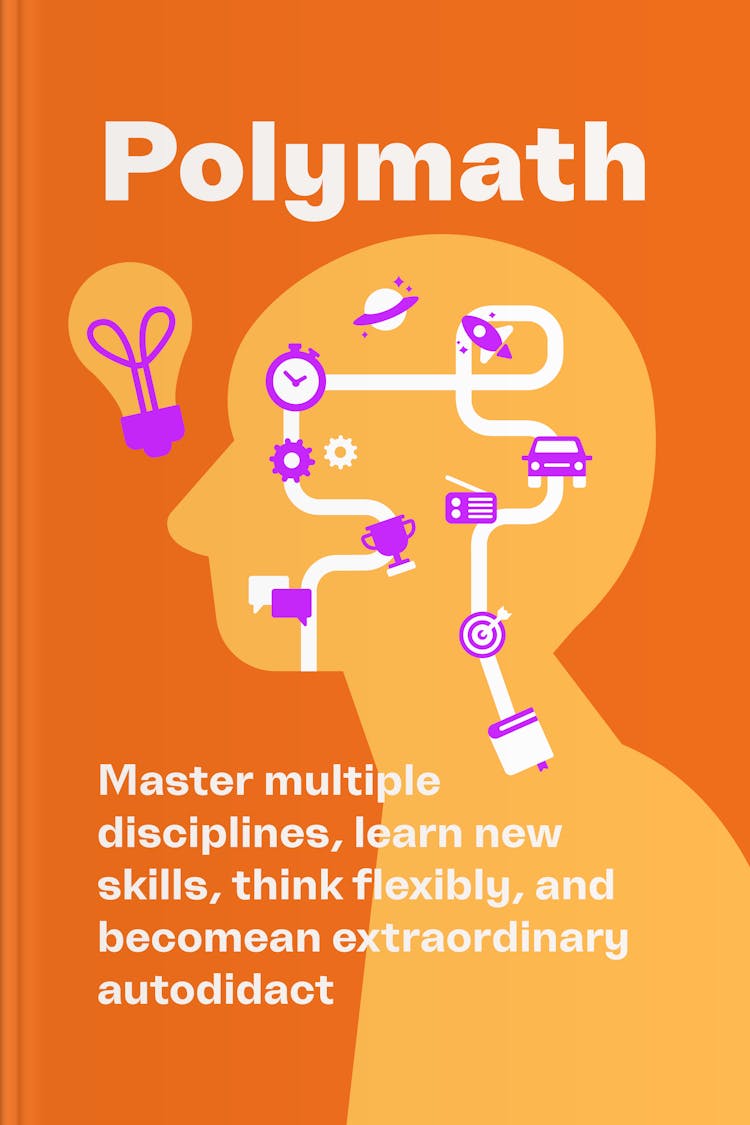
by Peter Hollins
What is Polymath about?
"Polymath" by Peter Hollins is a comprehensive guide that empowers readers to become extraordinary self-learners. Through practical strategies and insightful advice, the book explores the art of mastering multiple disciplines, acquiring new skills, and developing flexible thinking. Hollins provides a roadmap for becoming an autodidact, offering valuable tools and techniques to enhance learning, expand knowledge, and unlock one's full potential in any field.
Who should read Polymath
Students seeking to excel academically and develop a versatile skillset.
Professionals looking to enhance their career prospects and adapt to changing industries.
Individuals interested in personal growth and expanding their intellectual horizons.
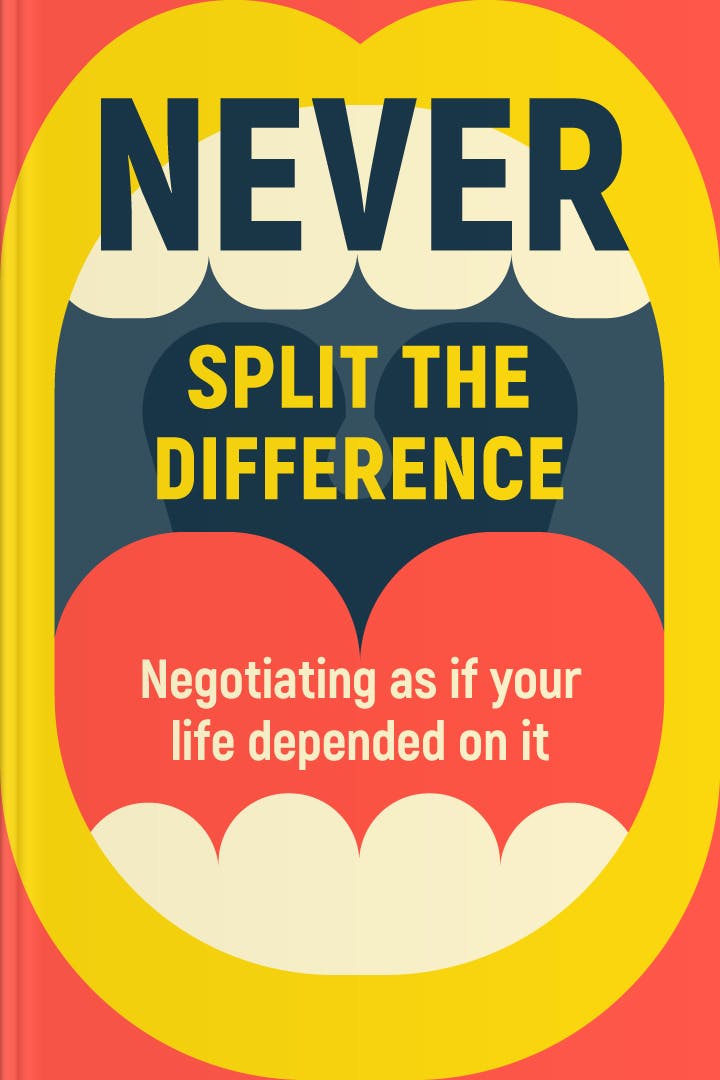
Never Split the Difference
by Chris Voss, Tahl Raz
What is Never Split the Difference about?
In this gripping and insightful book, a former FBI hostage negotiator shares his expertise on negotiation strategies that can be applied to everyday life. Drawing from his intense experiences, the author reveals powerful techniques to effectively communicate, build trust, and influence others. Packed with real-life examples and practical advice, this book is a must-read for anyone looking to master the art of negotiation and achieve better outcomes in both personal and professional situations.
Who should read Never Split the Difference
Business professionals seeking to enhance their negotiation skills.
Law enforcement personnel looking to improve their crisis negotiation tactics.
Individuals interested in mastering effective communication and persuasion techniques.
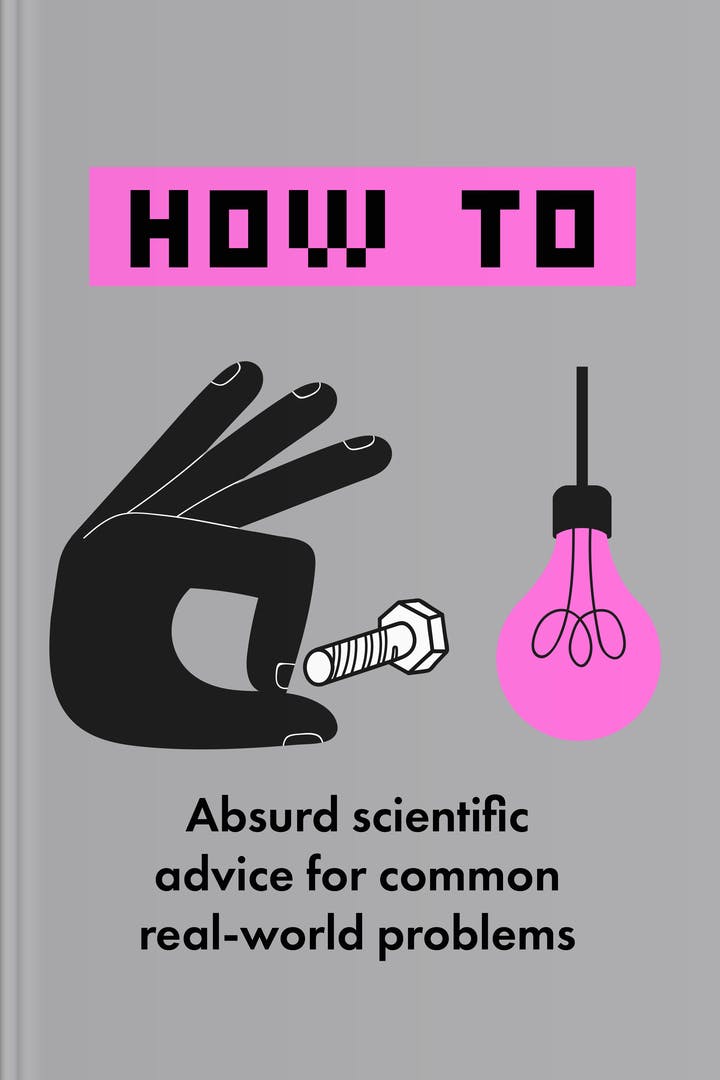
by Randall Munroe
What is How To about?
In this witty and informative book, the author, known for his popular webcomic, offers hilariously unconventional solutions to everyday problems using absurd scientific advice. From how to throw a pool party on the moon to how to build a lava moat around your house, Munroe's unique blend of humor and scientific knowledge will entertain and educate readers, proving that sometimes the most outlandish ideas can lead to surprisingly practical solutions.
Who should read How To
Science enthusiasts seeking unconventional solutions to everyday challenges.
Problem solvers looking for humorous and out-of-the-box scientific advice.
Fans of Randall Munroe's witty and informative writing style.
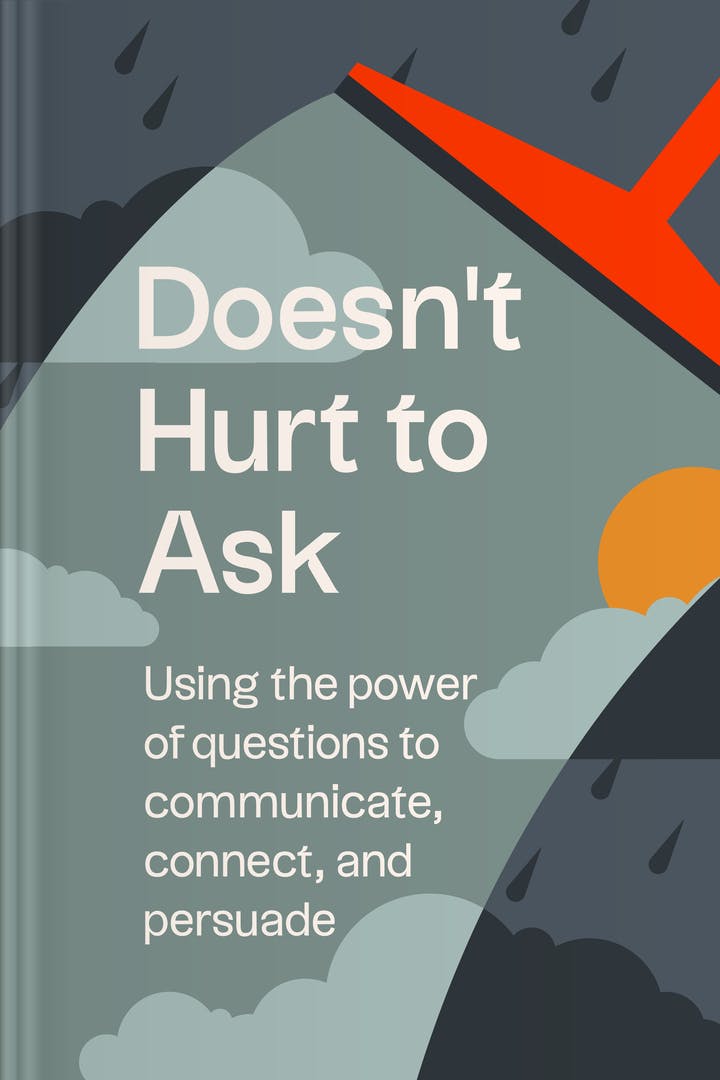
Doesn’t Hurt to Ask
by Trey Gowdy
What is Doesn’t Hurt to Ask about?
In this insightful book, the author explores the art of effective communication through the power of asking questions. Drawing from his experience as a former prosecutor and congressman, Gowdy shares practical strategies and real-life examples to demonstrate how asking the right questions can foster meaningful connections, influence others, and navigate complex situations. Whether in personal relationships or professional settings, this book offers valuable insights on the transformative impact of asking the right questions.
Who should read Doesn’t Hurt to Ask
Professionals seeking to enhance their communication and persuasion skills.
Individuals interested in improving their ability to connect with others.
Anyone looking to master the art of asking effective questions.
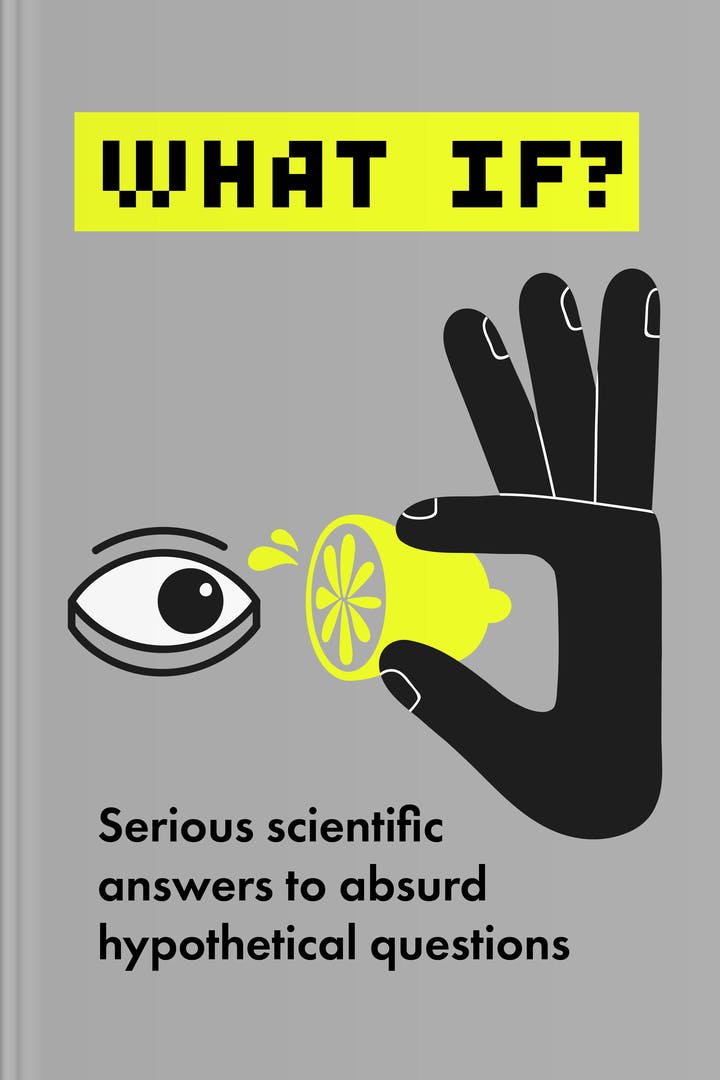
What If? Serious Scientific Answers to Absurd Hypothetical Questions
What is what if serious scientific answers to absurd hypothetical questions about.
In this thought-provoking and entertaining book, the author, known for his webcomic, xkcd, tackles absurd hypothetical questions with serious scientific answers. From exploring the consequences of throwing a baseball at near-light speed to pondering the effects of a robot uprising, Munroe's witty and informative explanations delve into the realms of physics, biology, and engineering. With a blend of humor and scientific rigor, this book offers fascinating insights into the bizarre and imaginative world of hypothetical scenarios.
Who should read What If? Serious Scientific Answers to Absurd Hypothetical Questions
Science enthusiasts seeking entertaining and thought-provoking hypothetical scenarios.
Curious minds eager to explore the intersection of science and imagination.
Fans of Randall Munroe's witty and informative webcomic
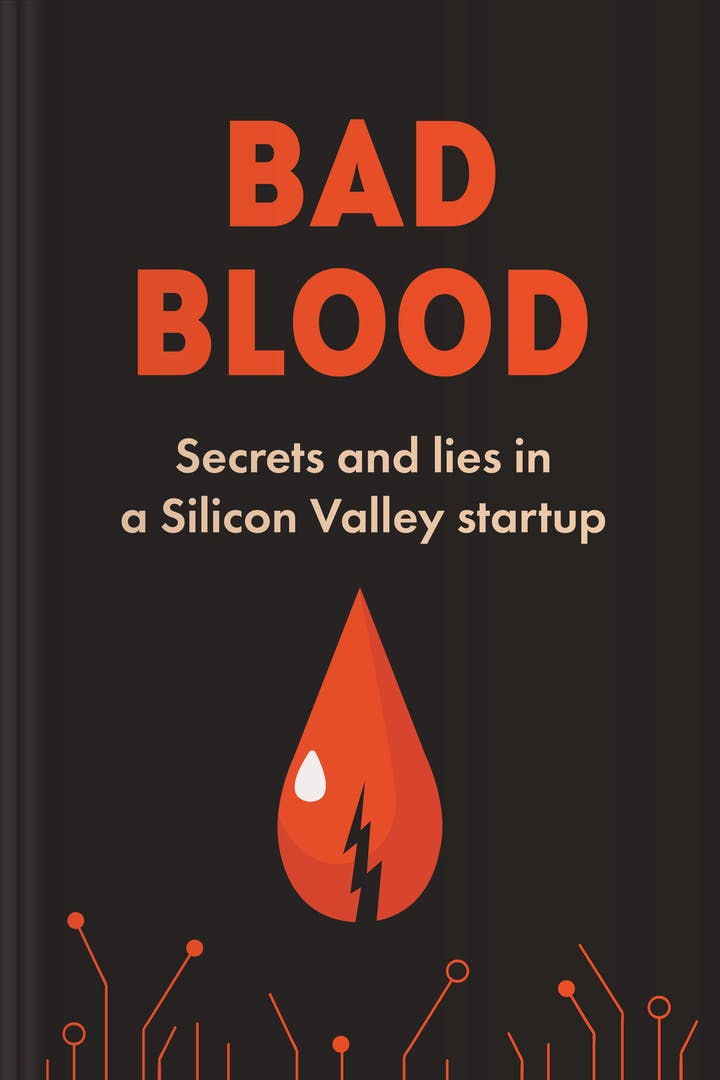
by John Carreyrou
What is Bad Blood about?
This gripping non-fiction book delves into the shocking rise and fall of a Silicon Valley startup. Fueled by charismatic leadership and promises of groundbreaking medical technology, the company quickly became a billion-dollar empire. However, behind the scenes, deception, fraud, and a web of lies were unraveling. Investigative journalist John Carreyrou uncovers the truth, exposing the dark secrets and unethical practices that ultimately led to the company's downfall.
Who should read Bad Blood
Entrepreneurs and aspiring startup founders seeking cautionary tales and lessons.
Investors and venture capitalists interested in the dark side of Silicon Valley.
Anyone fascinated by corporate scandals and the pursuit of truth.
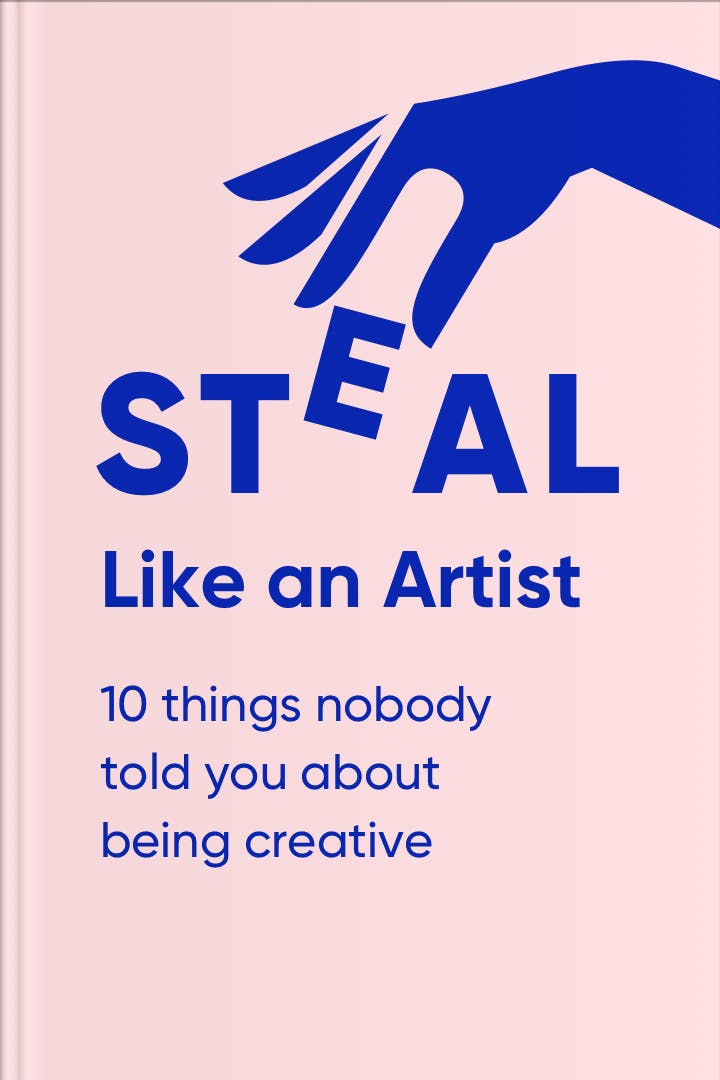
Steal Like an Artist
by Austin Kleon
What is Steal Like an Artist about?
In this insightful and inspiring book, the author shares ten unconventional principles to unleash your creativity. Drawing from his own experiences and the wisdom of renowned artists, Kleon encourages readers to embrace their influences, find their own voice, and create meaningful work. With practical advice and engaging illustrations, this book is a must-read for anyone seeking to tap into their creative potential and navigate the challenges of the artistic journey.
Who should read Steal Like an Artist
Aspiring artists seeking inspiration and guidance on unleashing creativity.
Established creatives looking for fresh perspectives and innovative ideas.
Anyone interested in exploring their creative potential and embracing originality.
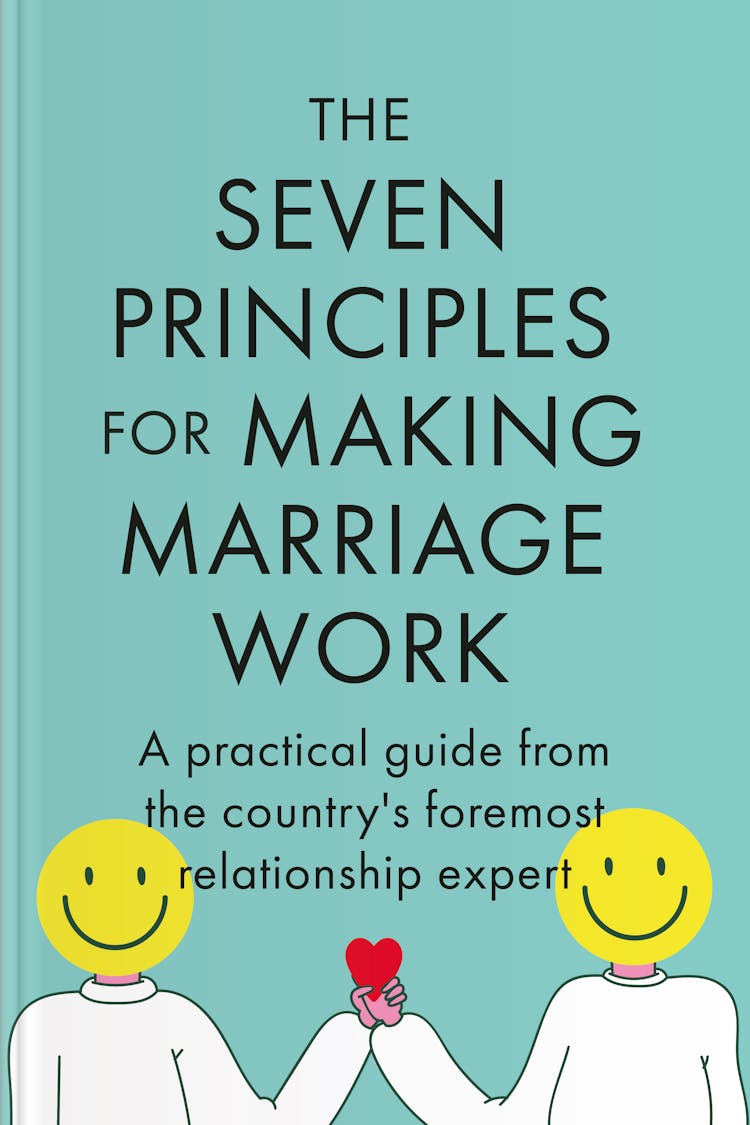
The Seven Principles for Making Marriage Work
by John M. Gottman, Ph.D, Nan Silver
What is The Seven Principles for Making Marriage Work about?
In this insightful guide, a renowned relationship expert shares seven essential principles for building and maintaining a successful marriage. Drawing from years of research and clinical experience, the author offers practical advice and strategies to help couples strengthen their bond, improve communication, and navigate through challenges. Packed with valuable insights and real-life examples, this book is a must-read for anyone seeking to create a fulfilling and lasting partnership.
Who should read The Seven Principles for Making Marriage Work
Couples seeking practical advice to strengthen their marriage.
Relationship therapists looking for evidence-based strategies for clients.
Individuals interested in understanding the science behind successful marriages.
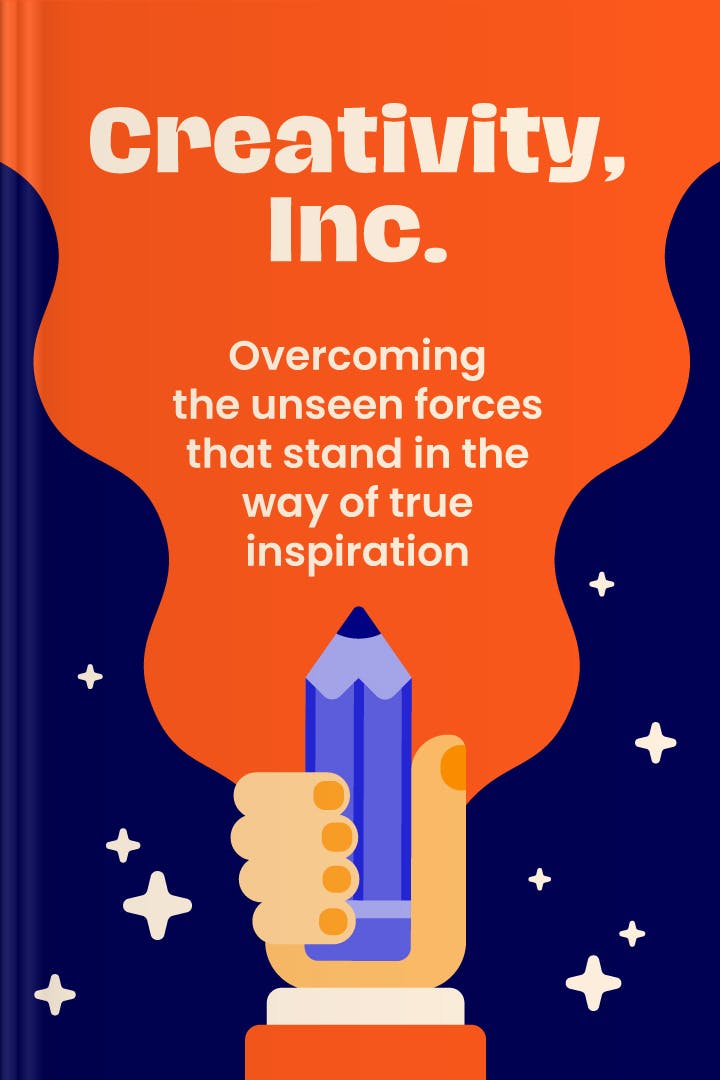
Creativity, Inc.
by Ed Catmull, Amy Wallace
What is Creativity, Inc. about?
In this insightful book, the author, a co-founder of Pixar Animation Studios, shares his experiences and strategies for fostering creativity and innovation within organizations. He explores the unseen obstacles that hinder true inspiration and offers practical advice on how to overcome them. Drawing from his own journey and the success of Pixar, Catmull provides valuable insights into building a creative culture, managing teams, and nurturing the creative process. A must-read for anyone seeking to unleash their own creative potential.
Who should read Creativity, Inc.
Aspiring artists and creative professionals seeking to unlock their potential.
Business leaders and managers looking to foster a culture of innovation.
Pixar enthusiasts curious about the behind-the-scenes workings of the studio.
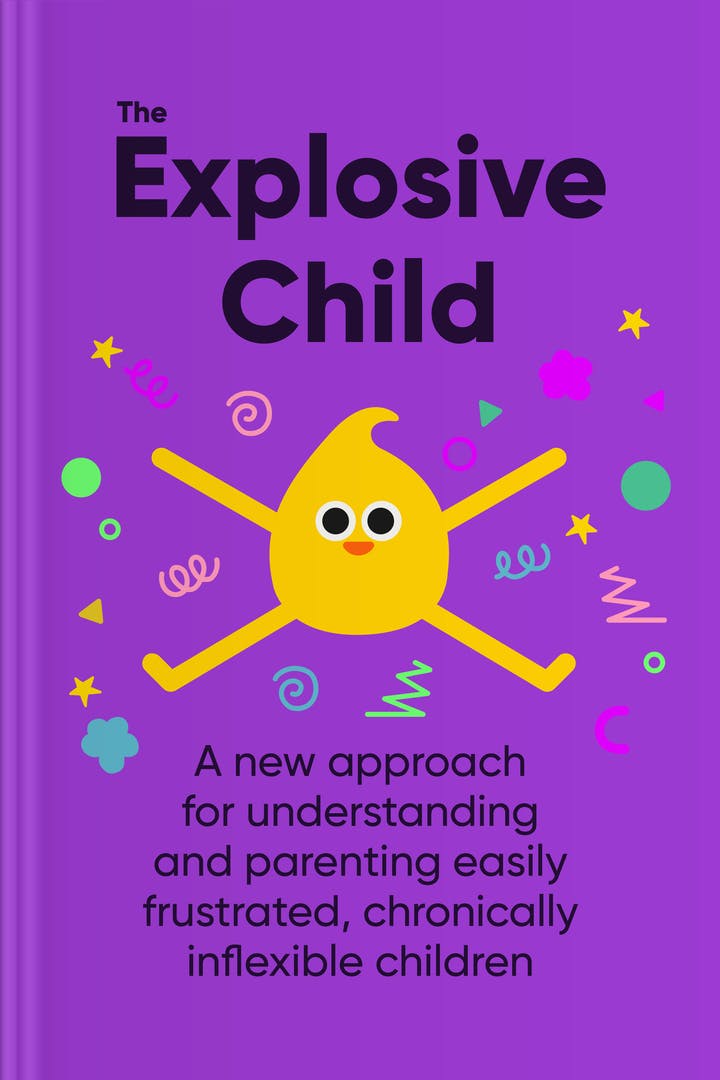
The Explosive Child
by Ross W. Greene, Ph.D.
What is The Explosive Child about?
"The Explosive Child" offers a fresh perspective on parenting children who are easily frustrated and inflexible. Written by a renowned psychologist, this book presents a new approach to understanding and addressing the challenges faced by these children. With practical strategies and real-life examples, it empowers parents to foster better communication, problem-solving, and collaboration, ultimately creating a more harmonious and supportive environment for their child's emotional growth and development.
Who should read The Explosive Child
Parents struggling to understand and manage their easily frustrated children.
Educators seeking effective strategies for working with inflexible students.
Mental health professionals looking for a fresh approach to help their clients.
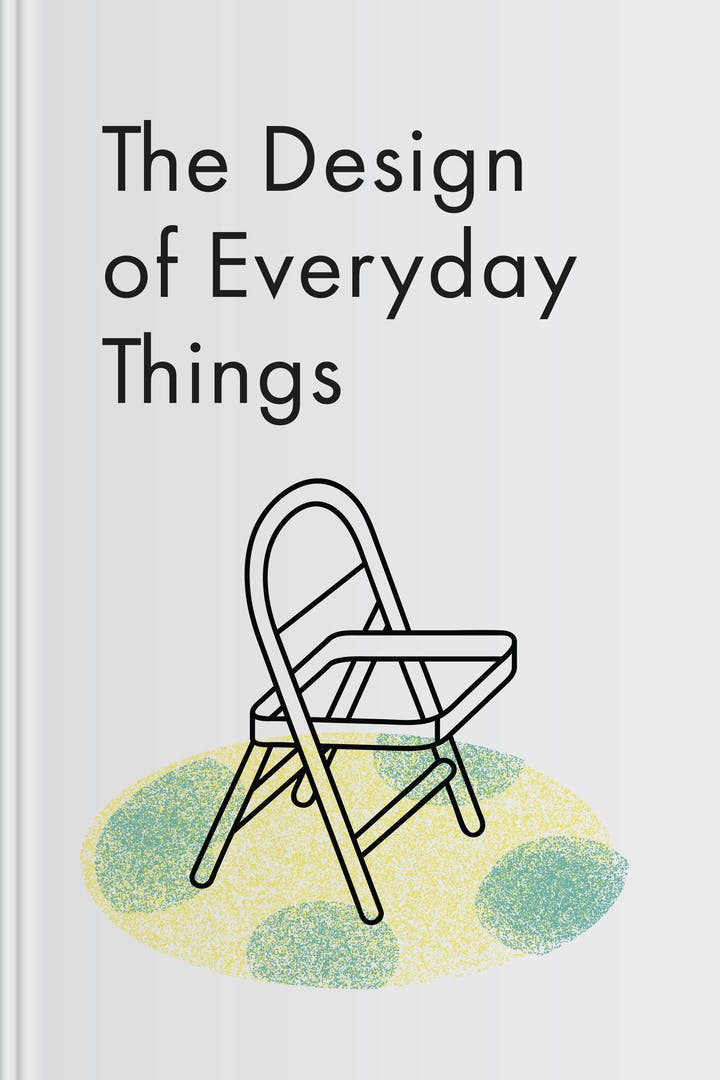
The Design of Everyday Things
by Don Norman
What is The Design of Everyday Things about?
"The Design of Everyday Things" explores the fundamental principles of good design and how they can be applied to everyday objects and systems. The book delves into the psychology behind human interaction with technology and provides insights on how to create user-friendly experiences. With real-world examples and thought-provoking anecdotes, the author challenges conventional design practices and offers practical solutions to improve the usability and functionality of the objects we encounter in our daily lives.
Who should read The Design of Everyday Things
Designers and engineers seeking to improve user experience and usability.
Consumers interested in understanding the psychology behind everyday objects.
Students studying human-computer interaction and product design principles.
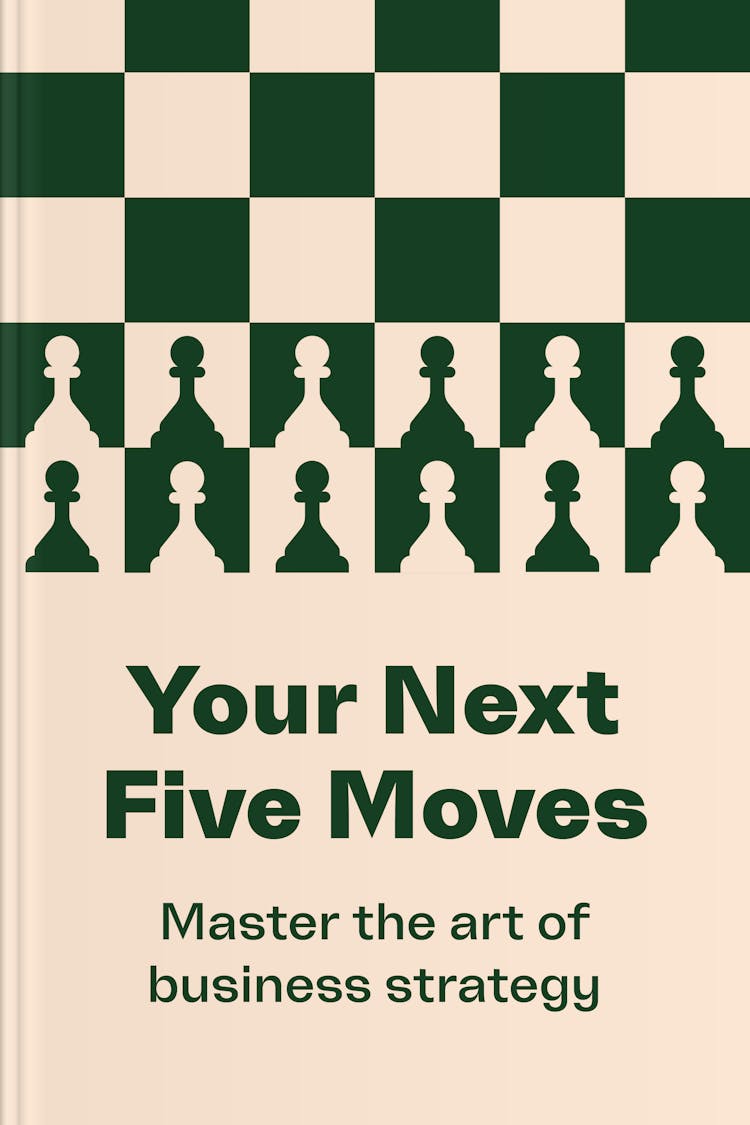
Your Next Five Moves
by Patrick Bet-David
What is Your Next Five Moves about?
In this insightful and practical guide, the author, a successful entrepreneur, shares his expertise on mastering the art of business strategy. Through a series of strategic moves, he teaches readers how to anticipate and outmaneuver their competition, make calculated decisions, and ultimately achieve success in the business world. Packed with real-life examples and actionable advice, this book is a must-read for anyone looking to elevate their strategic thinking and take their business to the next level.
Who should read Your Next Five Moves
Aspiring entrepreneurs seeking to develop effective business strategies.
Business professionals looking to enhance their strategic thinking skills.
Executives and leaders aiming to stay ahead in competitive markets.
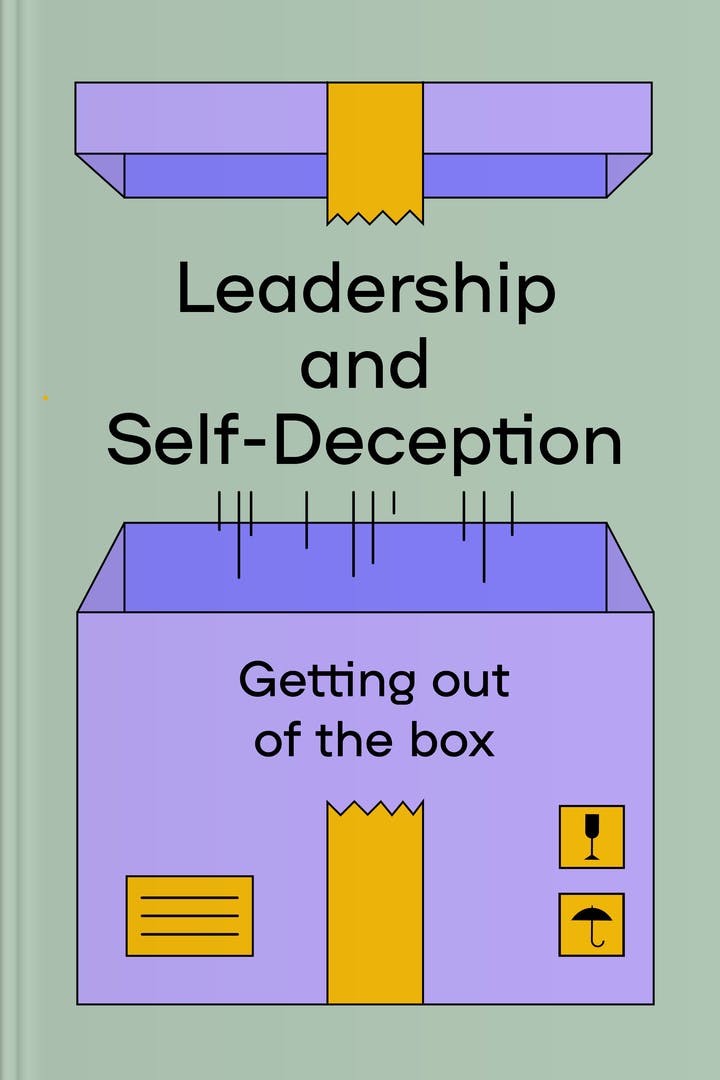
Leadership and Self-Deception
by The Arbinger Institute
What is Leadership and Self-Deception about?
"Leadership and Self-Deception: Getting Out of the Box" explores the concept of self-deception and its impact on leadership. The book delves into the idea that when individuals are trapped in a state of self-deception, they are unable to effectively lead and build meaningful relationships. Through relatable stories and practical insights, the book offers a transformative approach to leadership, encouraging readers to break free from self-deception and embrace a more authentic and compassionate leadership style.
Who should read Leadership and Self-Deception
Managers and leaders seeking to improve their leadership skills.
Individuals looking to enhance their self-awareness and personal growth.
Team members aiming to foster better communication and collaboration.
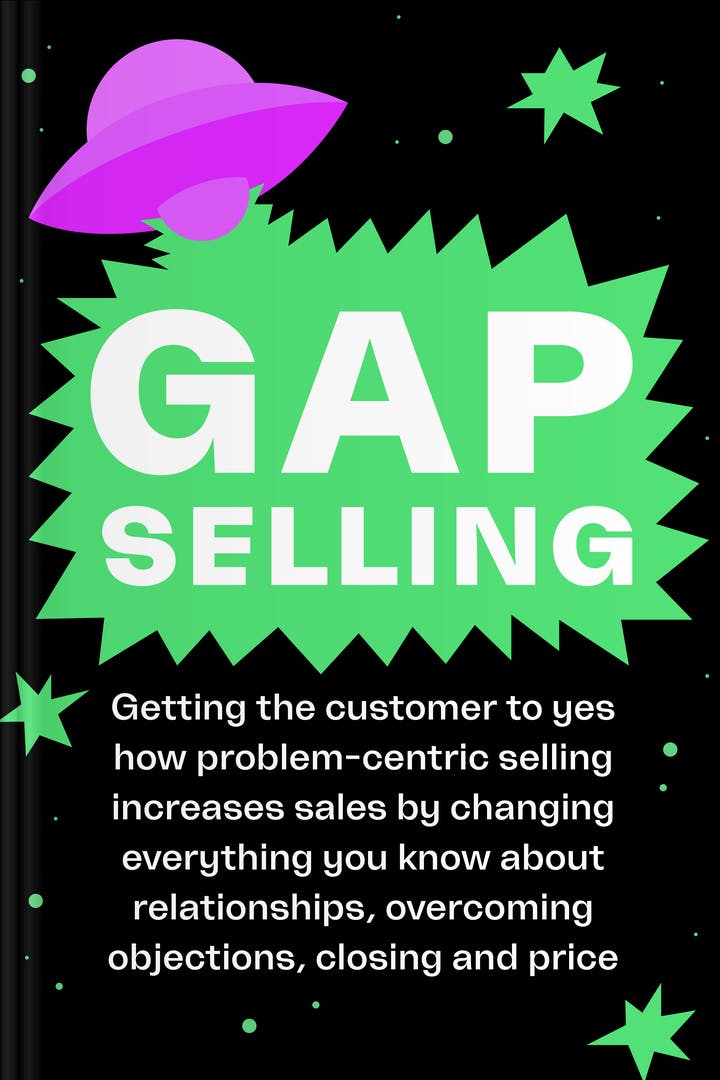
Gap Selling
by Jim Keenan
What is Gap Selling about?
In this insightful book, Jim Keenan explores a revolutionary approach to sales called "Gap Selling." Keenan emphasizes the importance of understanding and addressing the customer's problems and challenges, rather than focusing solely on product features and benefits. By adopting a problem-centric selling approach, sales professionals can build stronger relationships, overcome objections, close deals, and ultimately increase sales. Keenan's strategies challenge traditional sales methods and offer a fresh perspective on achieving success in the competitive world of sales.
Who should read Gap Selling
Sales professionals looking to enhance their selling techniques and increase sales.
Business owners seeking to improve their sales strategies and overcome objections.
Individuals interested in understanding the psychology behind successful selling.
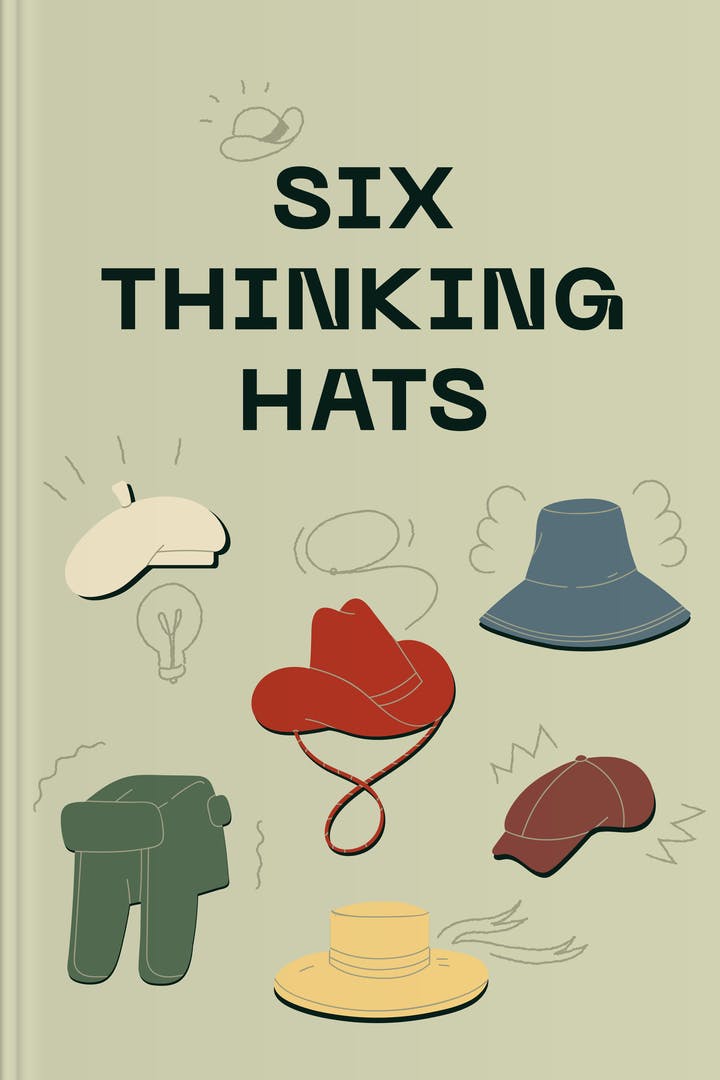
Six Thinking Hats
by Edward de Bono
What is Six Thinking Hats about?
In this insightful book, the author introduces a powerful thinking tool called the "Six Thinking Hats." Edward de Bono explores how this method can enhance decision-making and problem-solving by encouraging individuals to approach situations from different perspectives. Each "hat" represents a different thinking style, allowing readers to effectively analyze, generate ideas, evaluate, and make informed choices. With practical examples and exercises, this book offers a valuable framework for improving critical thinking skills and fostering collaboration in various aspects of life.
Who should read Six Thinking Hats
Business professionals seeking to improve decision-making and problem-solving skills.
Educators looking to enhance critical thinking and creativity in the classroom.
Individuals interested in personal development and effective communication strategies.
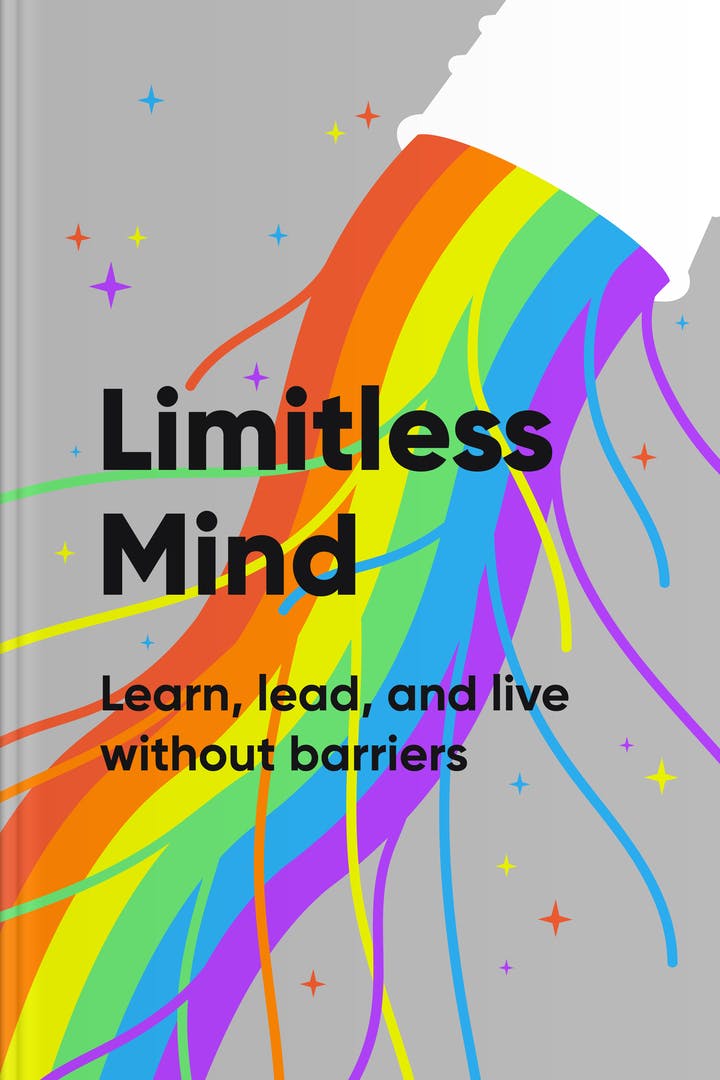
Limitless Mind
by Jo Boaler
What is Limitless Mind about?
In this empowering book, the author explores the concept of a limitless mind and how it can transform our lives. Jo Boaler, a renowned educator, challenges the traditional beliefs about intelligence and offers practical strategies to help individuals learn, lead, and live without barriers. Through inspiring stories and scientific research, she reveals the power of a growth mindset and provides valuable insights on how to unlock our full potential and embrace a life of limitless possibilities.
Who should read Limitless Mind
Educators seeking innovative strategies to foster limitless learning environments.
Individuals looking to overcome mental barriers and unlock their potential.
Leaders aiming to create inclusive and empowering work environments.
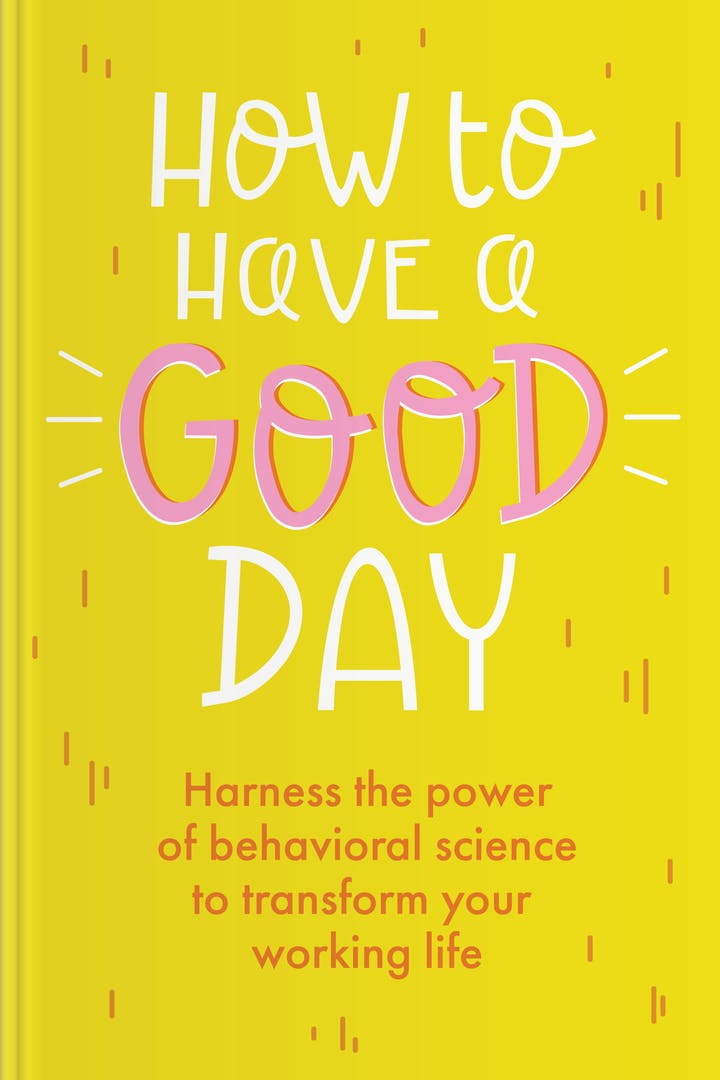
How to Have a Good Day
by Caroline Webb
What is How to Have a Good Day about?
In this insightful guide, Caroline Webb shares practical strategies to transform your workdays into fulfilling and productive experiences. Drawing from behavioral science, psychology, and neuroscience, she offers valuable techniques to enhance decision-making, manage time effectively, and improve communication skills. With Webb's expert advice, readers will learn how to optimize their work environment, reduce stress, and ultimately lead happier and more successful lives.
Who should read How to Have a Good Day
Professionals seeking to improve their work-life balance and productivity.
Individuals looking to enhance their overall well-being and happiness.
Anyone interested in practical strategies for a more fulfilling life.
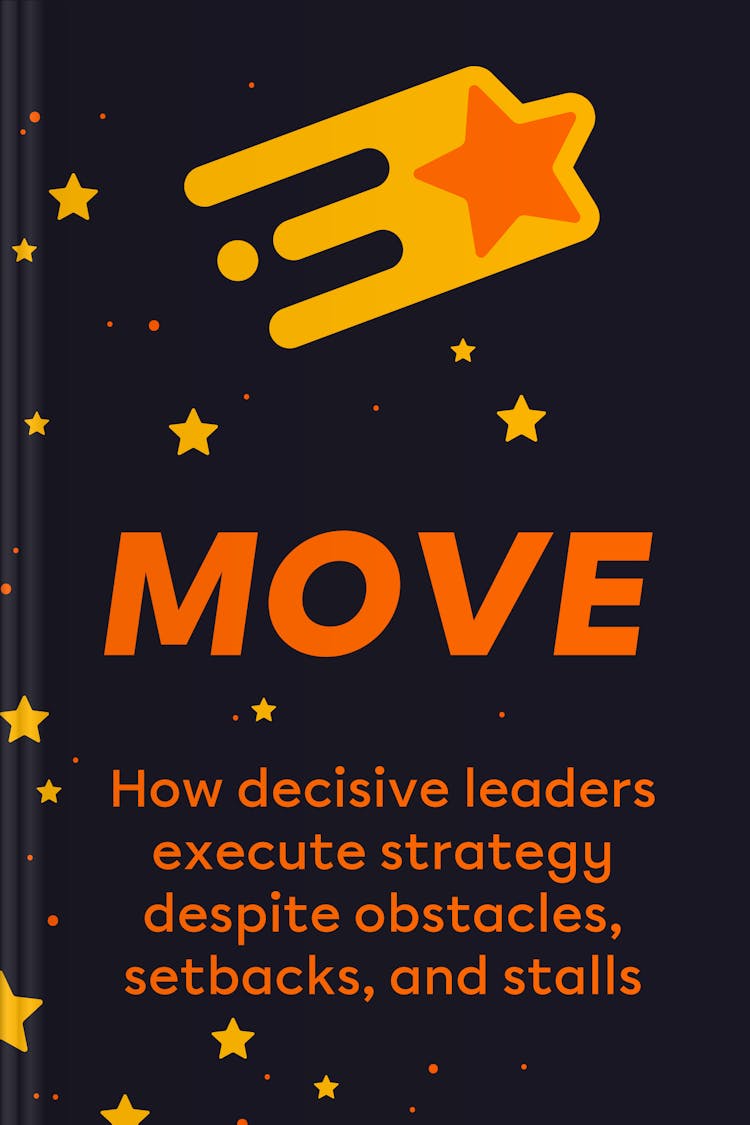
by Patty Azzarello
What is Move about?
In this insightful book, Patty Azzarello explores the art of effective leadership and strategy execution. Drawing from her own experiences as a successful executive, she provides practical advice and strategies for overcoming obstacles, setbacks, and stalls that often hinder progress. With a focus on decisiveness and action, Azzarello empowers leaders to navigate challenges and drive their organizations towards success.
Who should read Move
Business executives seeking guidance on overcoming obstacles and executing strategies.
Managers looking to enhance their leadership skills and navigate setbacks.
Individuals interested in learning about effective decision-making and strategy execution.
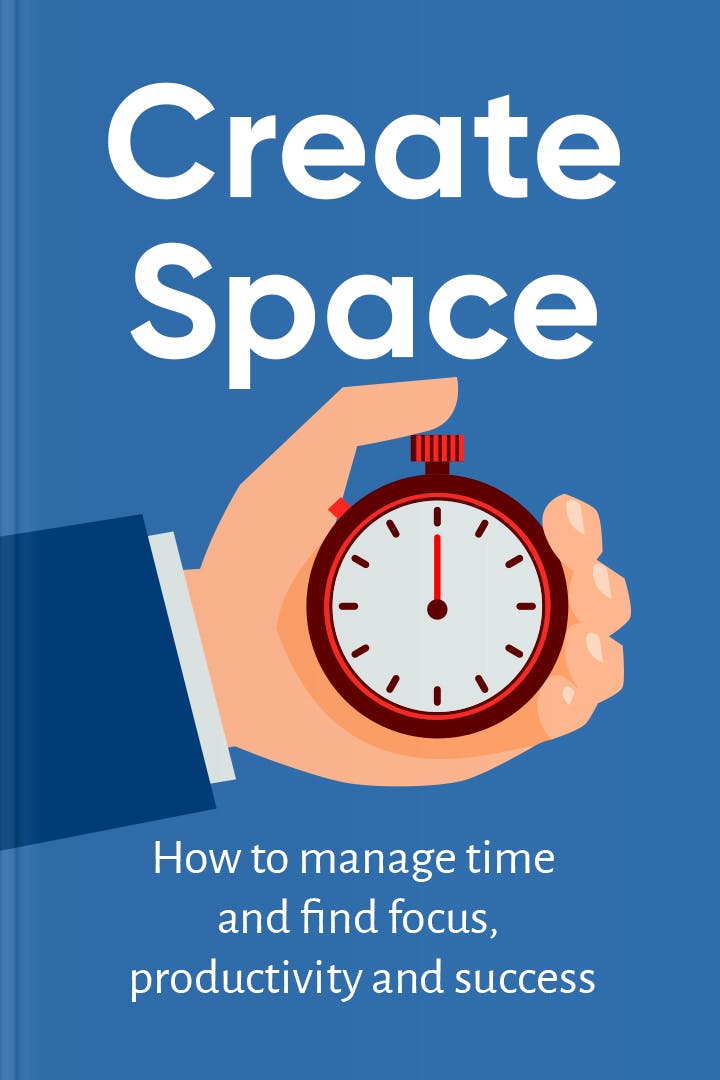
Create Space
by Derek Draper
What is Create Space about?
In this insightful guide, Derek Draper offers practical strategies to help readers effectively manage their time, find focus, and achieve success. Drawing from his own experiences and research, Draper provides valuable tips and techniques to overcome distractions, prioritize tasks, and create a productive work environment. With a clear and concise writing style, this book is a must-read for anyone seeking to enhance their time management skills and unlock their full potential.
Who should read Create Space
Busy professionals seeking effective time management strategies and increased productivity.
Students struggling with time management and seeking better focus.
Entrepreneurs looking to optimize their time and achieve success.
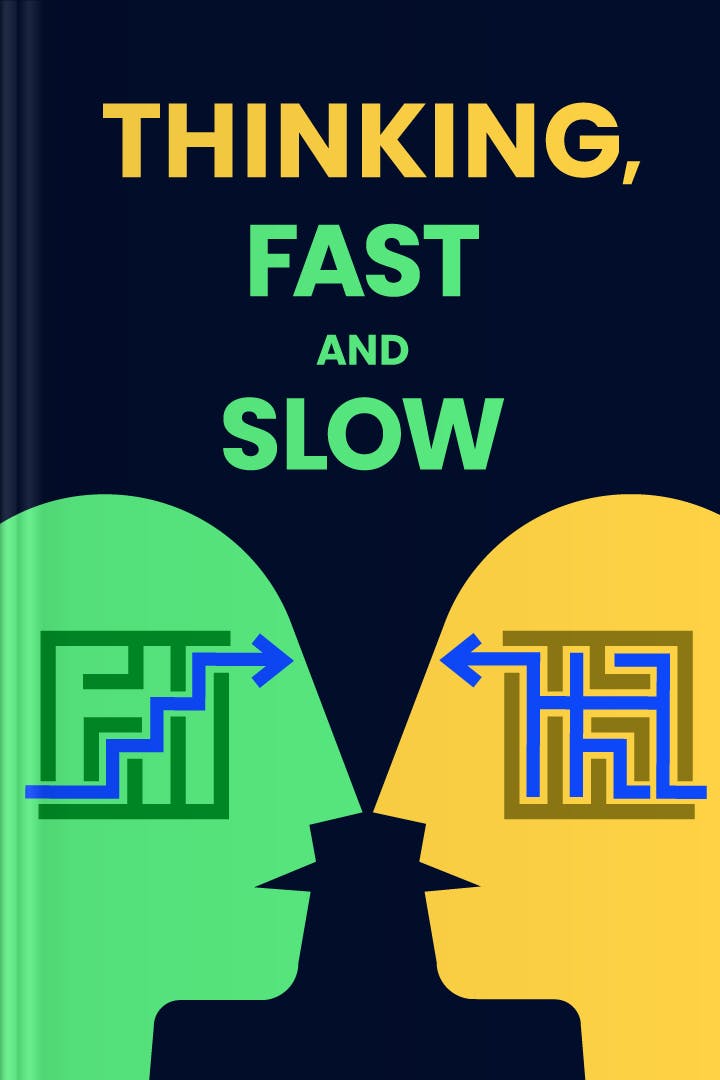
Thinking, Fast and Slow
by Daniel Kahneman
What is Thinking, Fast and Slow about?
In this thought-provoking book, the author explores the two systems that drive our thinking: the fast, intuitive system and the slow, deliberate system. Drawing on decades of research, he reveals the biases and errors that often cloud our judgment, and offers insights into how we can make better decisions. With engaging anecdotes and compelling examples, this book challenges our understanding of decision-making and provides valuable tools for improving our thinking processes.
Who should read Thinking, Fast and Slow
Individuals interested in understanding the complexities of human decision-making.
Psychologists and behavioral economists seeking insights into cognitive processes.
Business professionals looking to improve their decision-making skills.
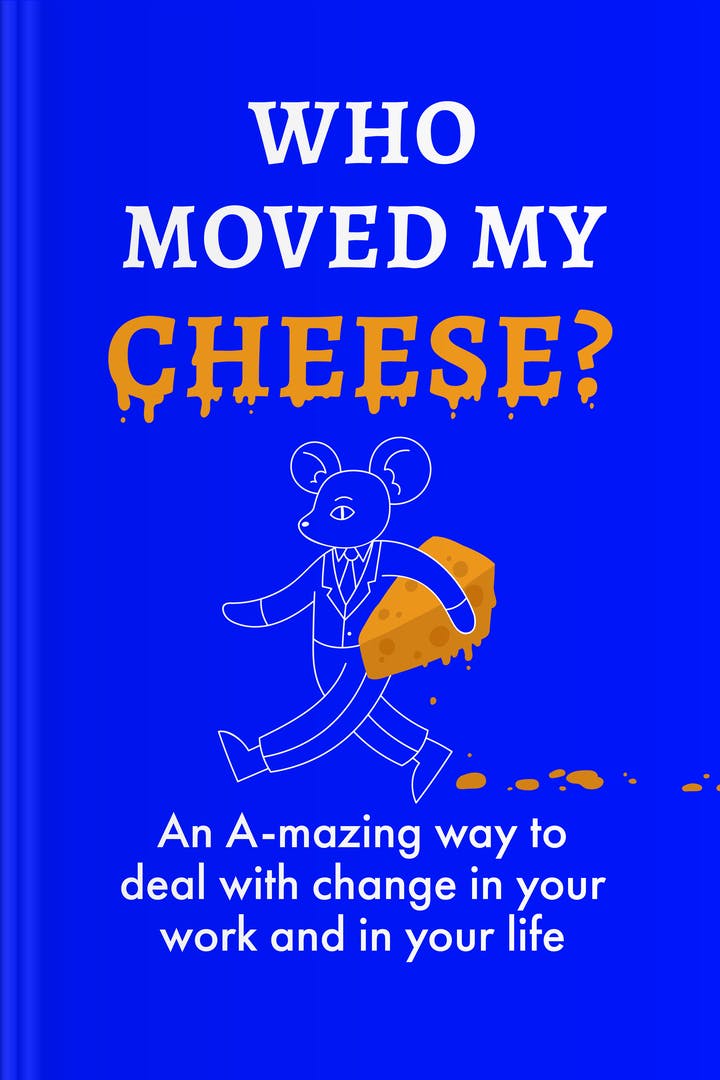
Who Moved My Cheese? An Amazing Way to Deal with Change in Your Work and in Your Life
by Dr. Spencer Johnson
What is Who Moved My Cheese? An Amazing Way to Deal with Change in Your Work and in Your Life about?
In this insightful book, Dr. Spencer Johnson presents a powerful parable that explores the inevitable changes we face in both our personal and professional lives. Through the story of two mice and two little people, readers are encouraged to embrace change, adapt to new circumstances, and find success and happiness by letting go of fear and embracing the unknown. With its simple yet profound message, this book offers practical strategies for navigating change and achieving personal growth.
Who should read Who Moved My Cheese? An Amazing Way to Deal with Change in Your Work and in Your Life
Professionals seeking guidance on adapting to workplace changes effectively.
Individuals looking for strategies to navigate personal life transitions.
Anyone interested in learning a practical approach to embracing change.
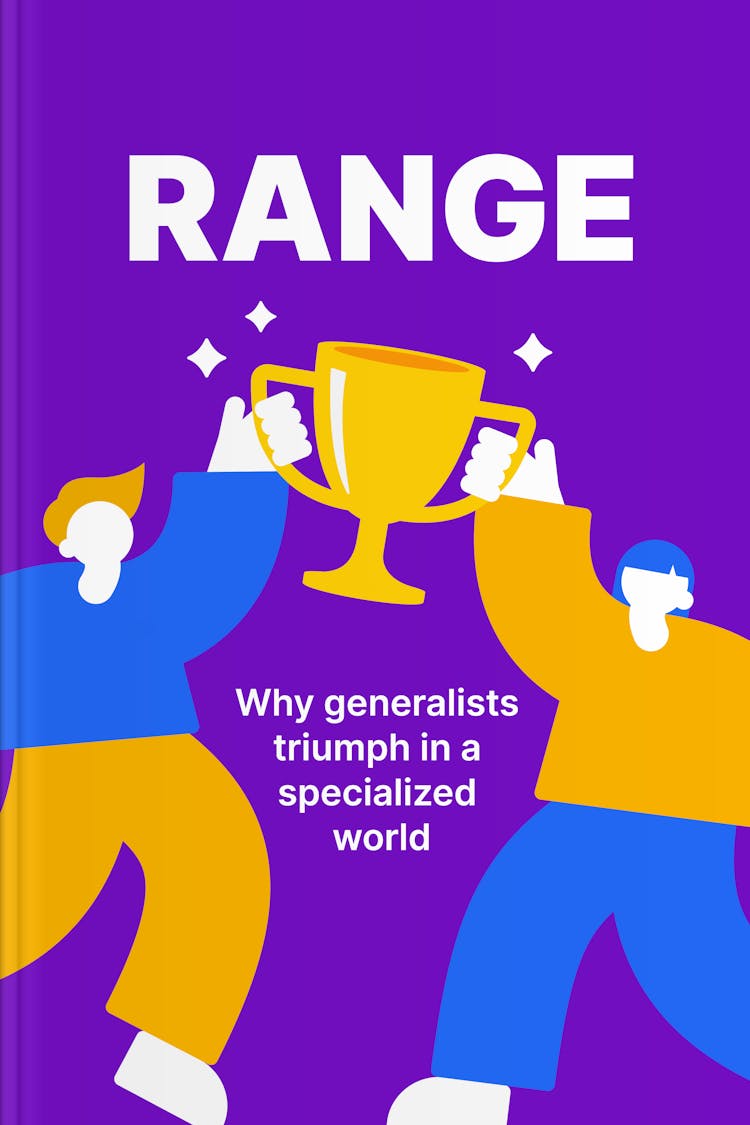
by David Epstein
What is Range about?
In this thought-provoking book, the author challenges the prevailing notion that specialization is the key to success. Drawing on a wide range of examples from sports, science, and the arts, Epstein argues that individuals with diverse experiences and a broad skill set, known as generalists, often outperform specialists in today's complex world. With compelling evidence and engaging storytelling, he explores the benefits of embracing a more flexible and exploratory approach to life and work.
Who should read Range
Professionals seeking to excel in a rapidly changing job market.
Students and educators looking to navigate career choices effectively.
Individuals interested in understanding the benefits of a broad skillset.
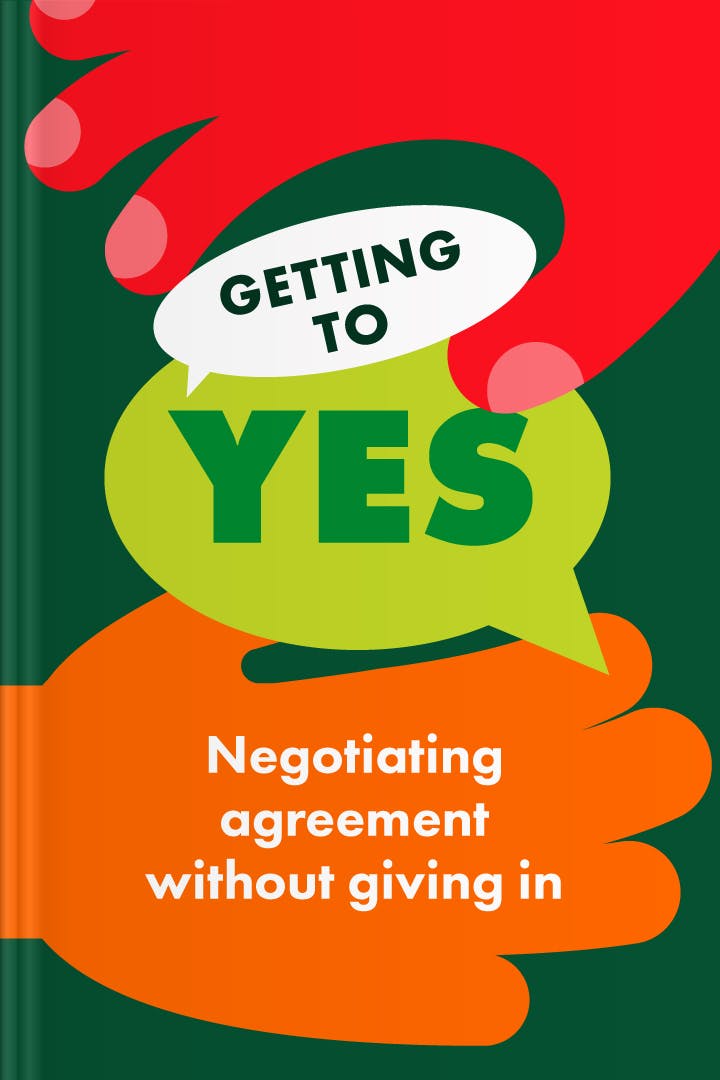
Getting to Yes
by Roger Fisher, William Ury, and Bruce Patton
What is Getting to Yes about?
This book offers a practical guide to effective negotiation techniques, emphasizing the importance of collaboration and mutual understanding. It provides strategies for reaching mutually beneficial agreements without compromising one's interests or resorting to adversarial tactics. Drawing on real-life examples and research, the authors present a step-by-step approach to negotiation that can be applied in various personal and professional contexts. With its focus on principled negotiation, this book aims to empower individuals to achieve successful outcomes while maintaining positive relationships.
Who should read Getting to Yes
Business professionals seeking to improve their negotiation skills.
Lawyers and legal professionals looking for effective negotiation strategies.
Individuals interested in resolving conflicts and reaching mutually beneficial agreements.
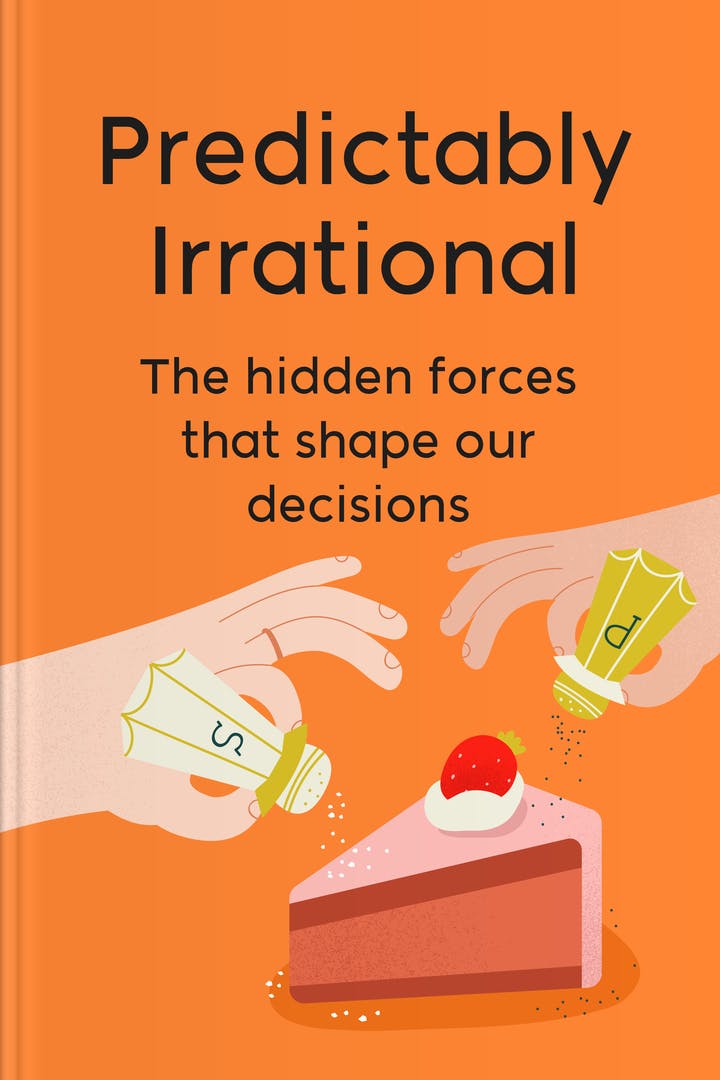
Predictably Irrational
by Dan Ariely
What is Predictably Irrational about?
In this thought-provoking book, a renowned behavioral economist delves into the fascinating world of human decision-making. Through a series of engaging experiments and real-life examples, the author uncovers the hidden forces that often lead us to make irrational choices. From the influence of social norms to the power of emotions, this book offers valuable insights into understanding and navigating the complexities of our decision-making processes.
Who should read Predictably Irrational
Individuals interested in understanding the psychological factors influencing decision-making.
Business professionals seeking insights into consumer behavior and marketing strategies.
Psychology enthusiasts looking for a captivating exploration of human irrationality.
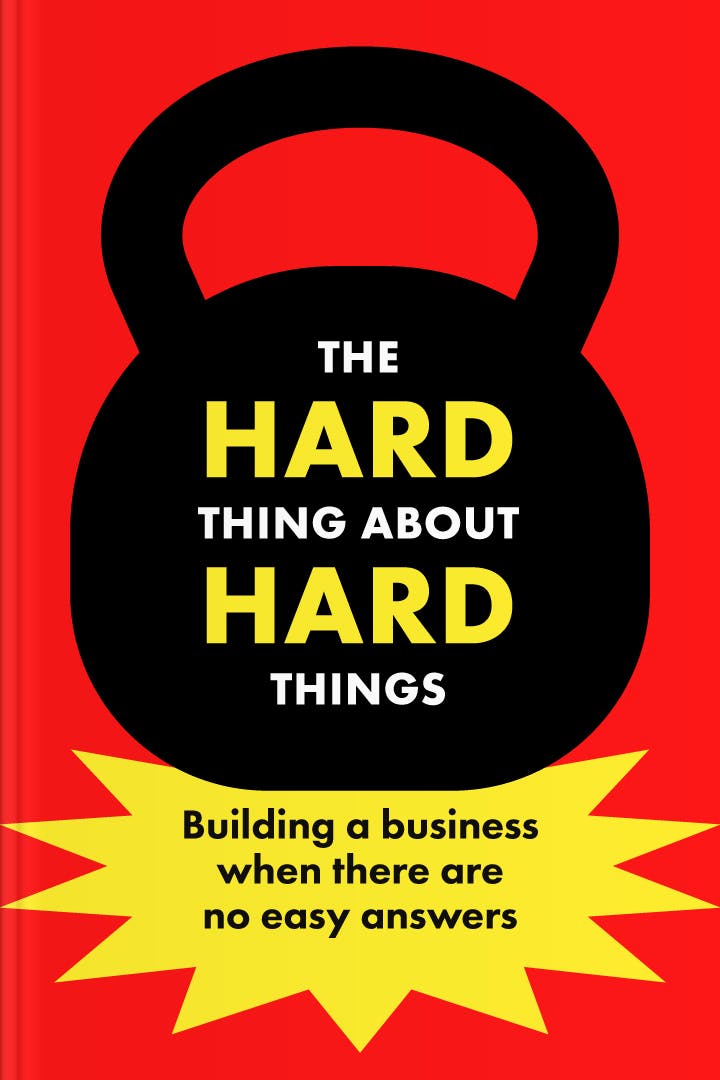
The Hard Thing About Hard Things
by Ben Horowitz
What is The Hard Thing About Hard Things about?
In this insightful and practical book, the author shares his experiences and lessons learned while building a business from scratch. Filled with candid advice and real-world examples, the book explores the challenges and tough decisions entrepreneurs face, offering valuable insights on managing teams, making difficult choices, and navigating through the uncertainties of building a successful business. A must-read for anyone looking to thrive in the world of entrepreneurship.
Who should read The Hard Thing About Hard Things
Aspiring entrepreneurs seeking guidance on navigating the challenges of building a business.
Established business owners looking for practical advice on overcoming obstacles.
Managers and leaders seeking insights into making tough decisions.
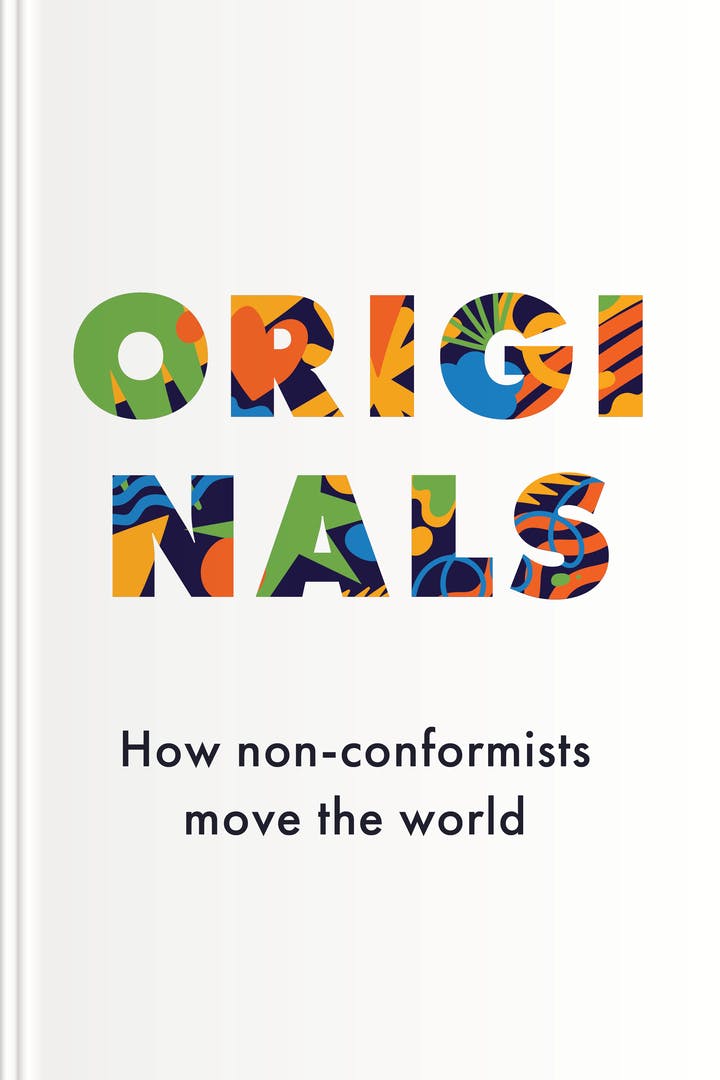
by Adam Grant
What is Originals about?
In this thought-provoking book, the author explores the power of non-conformity and challenges conventional wisdom. Through captivating stories and compelling research, he reveals how individuals who dare to think differently can shape the world. From entrepreneurs to artists, Grant uncovers the secrets of originality and offers practical advice on how to champion new ideas, navigate risks, and inspire others to embrace their own uniqueness. A must-read for those seeking to make a lasting impact and drive positive change.
Who should read Originals
Entrepreneurs and business leaders seeking innovative strategies for success.
Individuals looking to challenge the status quo and make a difference.
Anyone interested in understanding the psychology behind creativity and originality.
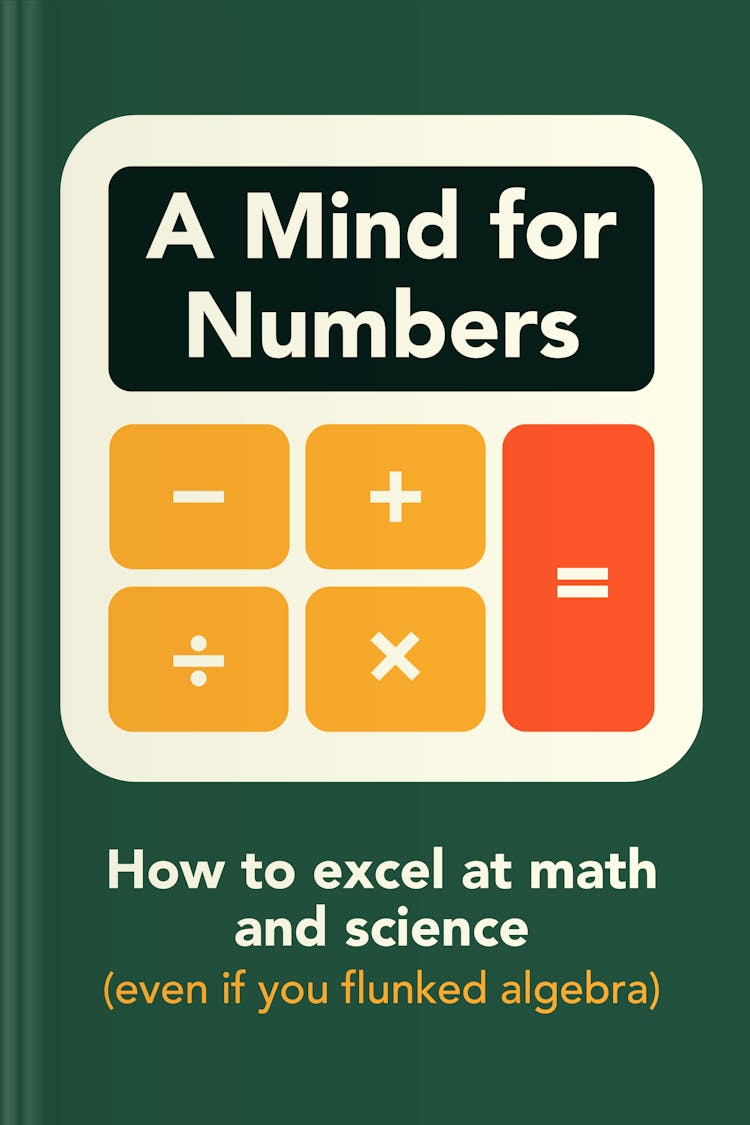
A Mind for Numbers
by Barbara Oakley, Ph.D.
What is A Mind for Numbers about?
In this insightful guide, a renowned expert in learning strategies shares her secrets to mastering math and science. Barbara Oakley, Ph.D., reveals effective techniques to overcome common obstacles and develop a "mind for numbers." With practical tips, real-life examples, and engaging exercises, this book equips readers with the tools to excel in these subjects, regardless of their previous experiences or perceived abilities.
Who should read A Mind for Numbers
Students struggling with math and science concepts.
Professionals seeking to enhance their analytical thinking skills.
Educators looking for effective teaching strategies in math and science.
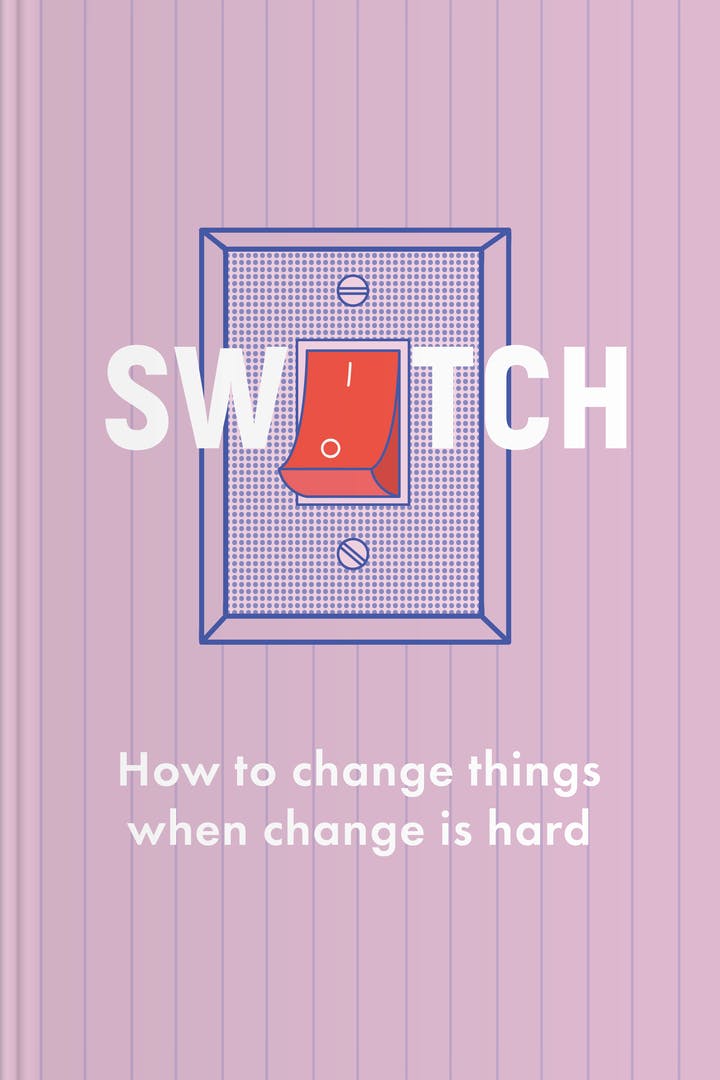
by Dan Heath, Chip Heath
What is Switch about?
"Switch: How to Change Things When Change is Hard" is a practical guide that explores the psychology behind successful change. Written by Dan Heath and Chip Heath, this book offers valuable insights and strategies to navigate through difficult transitions. Drawing from real-life examples and research, it provides a roadmap for individuals and organizations to overcome resistance and make lasting changes. With a focus on understanding human behavior, "Switch" offers a compelling framework to drive positive transformations in any aspect of life.
Who should read Switch
Individuals seeking practical strategies to navigate and embrace change.
Managers and leaders looking to drive successful organizational transformations.
Anyone interested in understanding the psychology behind change and decision-making.
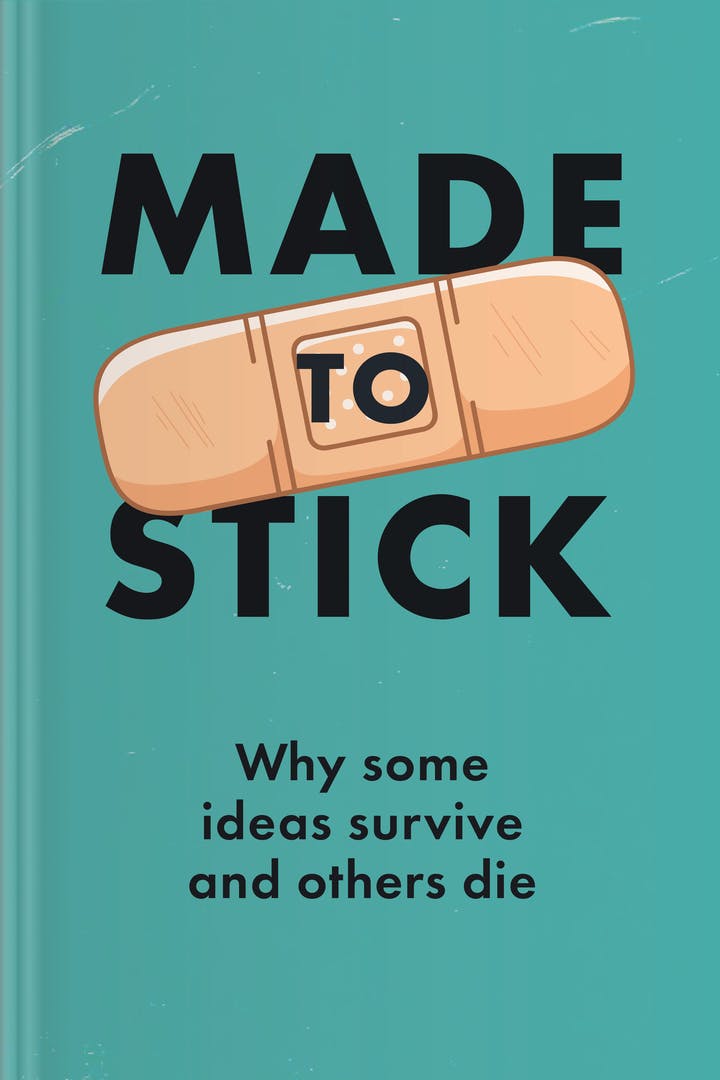
Made to Stick
by Chip Heath, Dan Heath
What is Made to Stick about?
"Made to Stick" explores the art of crafting ideas that are memorable and impactful. Chip Heath and Dan Heath delve into the psychology behind why certain ideas stick in our minds while others fade away. Through engaging stories and practical strategies, the authors reveal the key elements that make ideas stick, such as simplicity, unexpectedness, and emotional appeal. This book is a guide for anyone seeking to communicate their ideas effectively and leave a lasting impression.
Who should read Made to Stick
Business professionals seeking to create memorable and impactful ideas.
Educators looking to engage and inspire their students with lasting concepts.
Marketers and advertisers aiming to craft compelling and memorable campaigns.
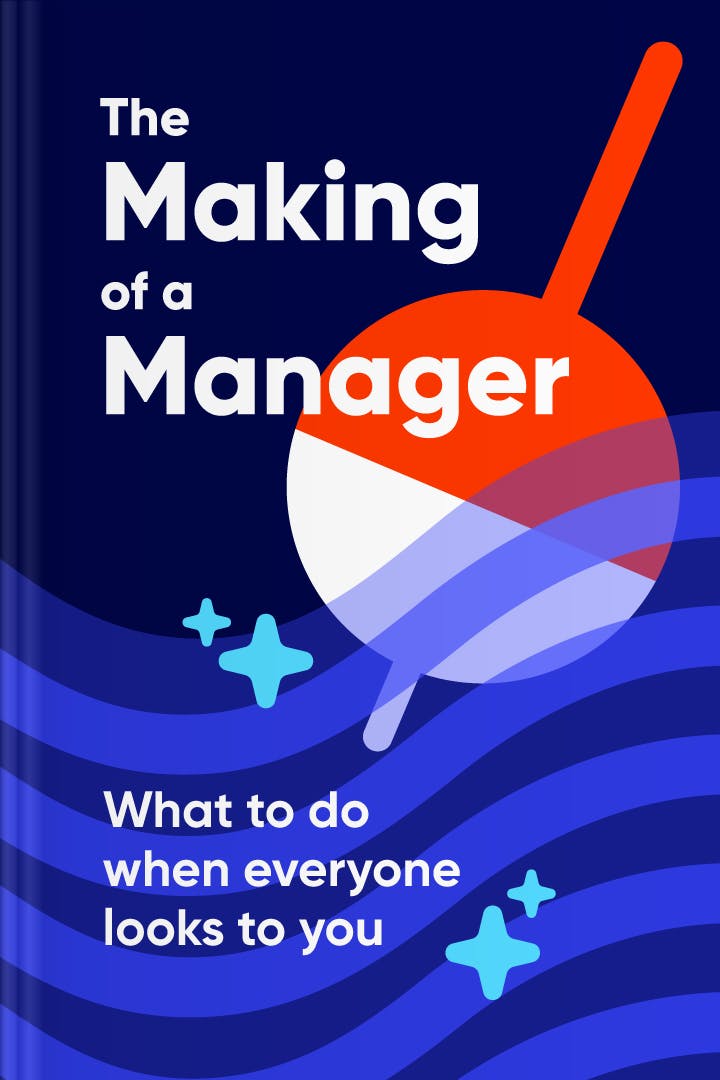
The Making of a Manager
by Julie Zhuo
What is The Making of a Manager about?
"The Making of a Manager" by Julie Zhuo is a practical guide for new managers, offering valuable insights and advice on how to navigate the challenges of leadership. Drawing from her own experiences as a young manager at Facebook, Zhuo shares actionable strategies for building effective teams, making tough decisions, and fostering a positive work culture. This book is an essential resource for anyone stepping into a managerial role and seeking to excel in their leadership journey.
Who should read The Making of a Manager
Aspiring managers seeking guidance on leading teams effectively.
New managers looking for practical advice on handling responsibilities.
Experienced managers seeking fresh insights and strategies for success.
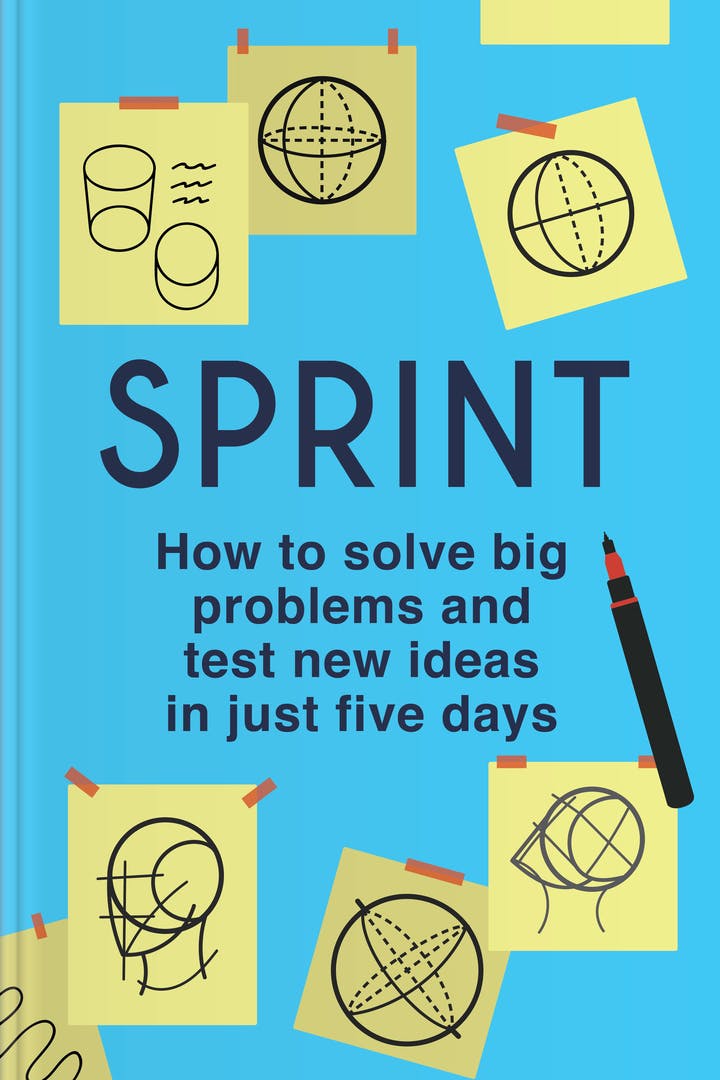
by Jake Knapp, John Zeratsky and Braden Kowitz
What is Sprint about?
"Sprint" is a practical guide that offers a step-by-step process for solving complex problems and testing innovative ideas in a short span of five days. Written by a team of experts, this book provides valuable insights and techniques to help individuals and teams streamline their decision-making process, foster collaboration, and achieve faster results. With real-world examples and actionable advice, "Sprint" is a must-read for anyone seeking to tackle big challenges and drive innovation.
Who should read Sprint
Entrepreneurs and business leaders seeking innovative problem-solving strategies.
Designers and product managers looking to streamline their creative process.
Individuals interested in learning effective methods for testing and validating ideas.
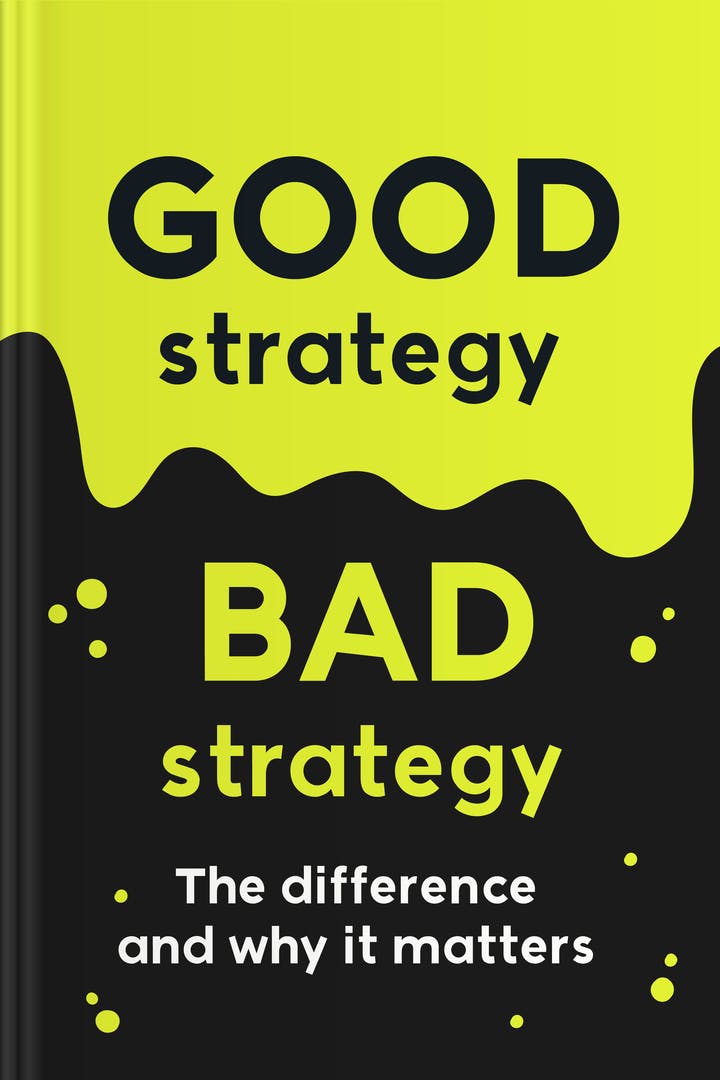
Good Strategy/Bad Strategy
by Richard Rumelt
What is Good Strategy/Bad Strategy about?
In this insightful book, the author delves into the world of strategy, dissecting the difference between good and bad strategies and emphasizing their impact. Richard Rumelt explores the common pitfalls of bad strategies and offers practical advice on how to develop effective ones. With real-world examples and engaging analysis, this book serves as a guide for individuals and organizations seeking to understand the importance of strategy and its role in achieving success.
Who should read Good Strategy/Bad Strategy
Business executives seeking to develop effective strategic thinking skills.
Students studying business management and strategy.
Entrepreneurs looking to enhance their strategic decision-making abilities.
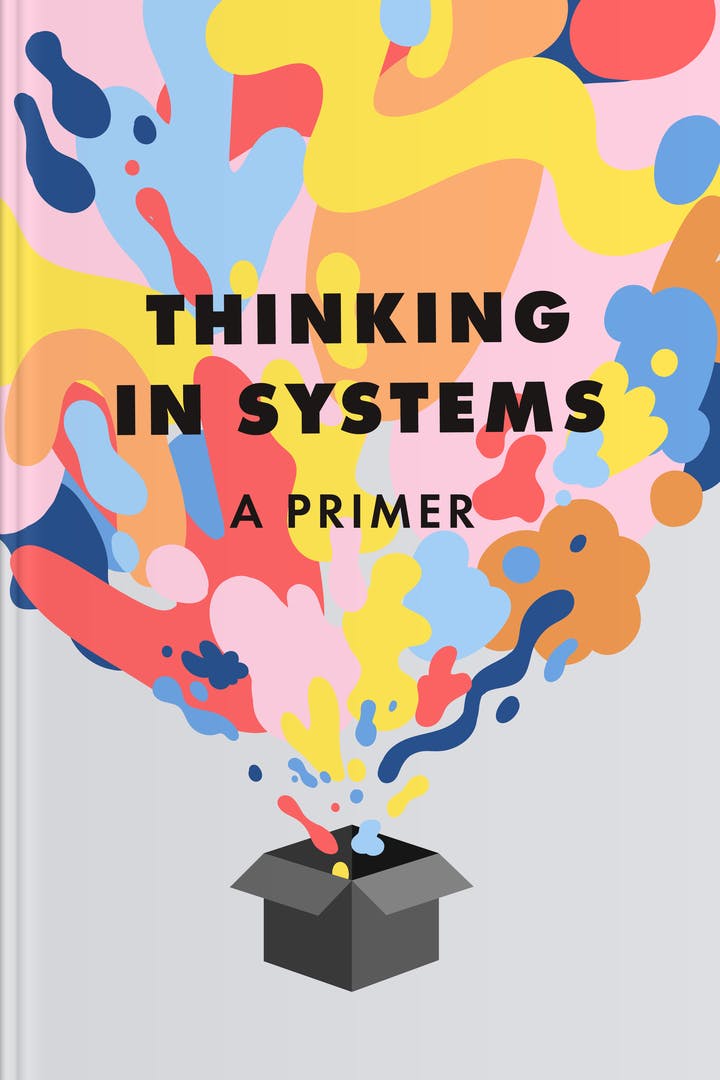
Thinking In Systems
by Donella Meadows, Diana Wright
What is Thinking In Systems about?
"Thinking in Systems: A Primer" offers a comprehensive guide to understanding and analyzing complex systems. Written by an acclaimed author, this book explores the interconnectedness of various systems, from ecosystems to organizations, and provides practical tools for problem-solving and decision-making. With real-world examples and thought-provoking insights, it equips readers with the necessary skills to navigate and influence the intricate systems that shape our world.
Who should read Thinking In Systems
Students and academics studying complex systems and sustainability.
Business leaders seeking to understand and improve organizational dynamics.
Individuals interested in gaining a holistic perspective on global issues.
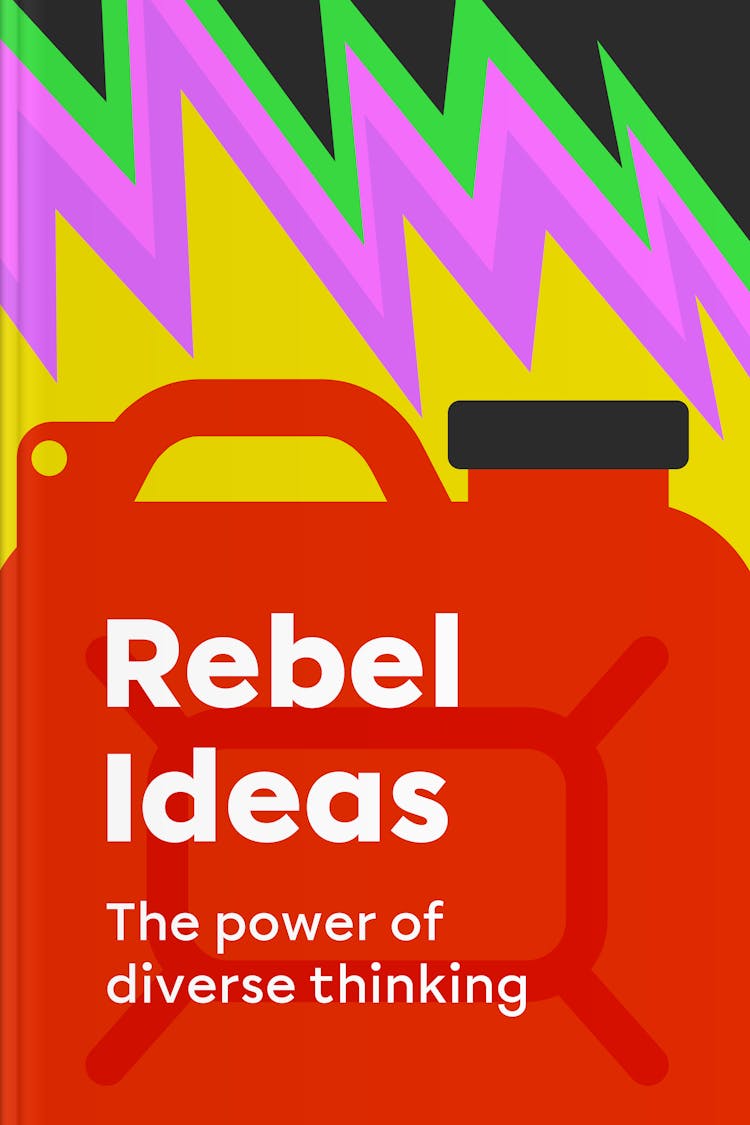
Rebel Ideas
by Matthew Syed
What is Rebel Ideas about?
In this thought-provoking book, the author explores the immense power of diverse thinking and its impact on innovation, decision-making, and problem-solving. Drawing from a wide range of captivating stories and scientific research, he reveals how embracing different perspectives and challenging conventional wisdom can lead to groundbreaking ideas and transformative change. With compelling insights, "Rebel Ideas" encourages readers to harness the collective intelligence of diverse teams and embrace the potential of inclusive thinking in all aspects of life.
Who should read Rebel Ideas
Business leaders seeking innovative strategies through diverse perspectives.
Educators interested in fostering creativity and critical thinking skills.
Individuals looking to challenge their own biases and expand perspectives.
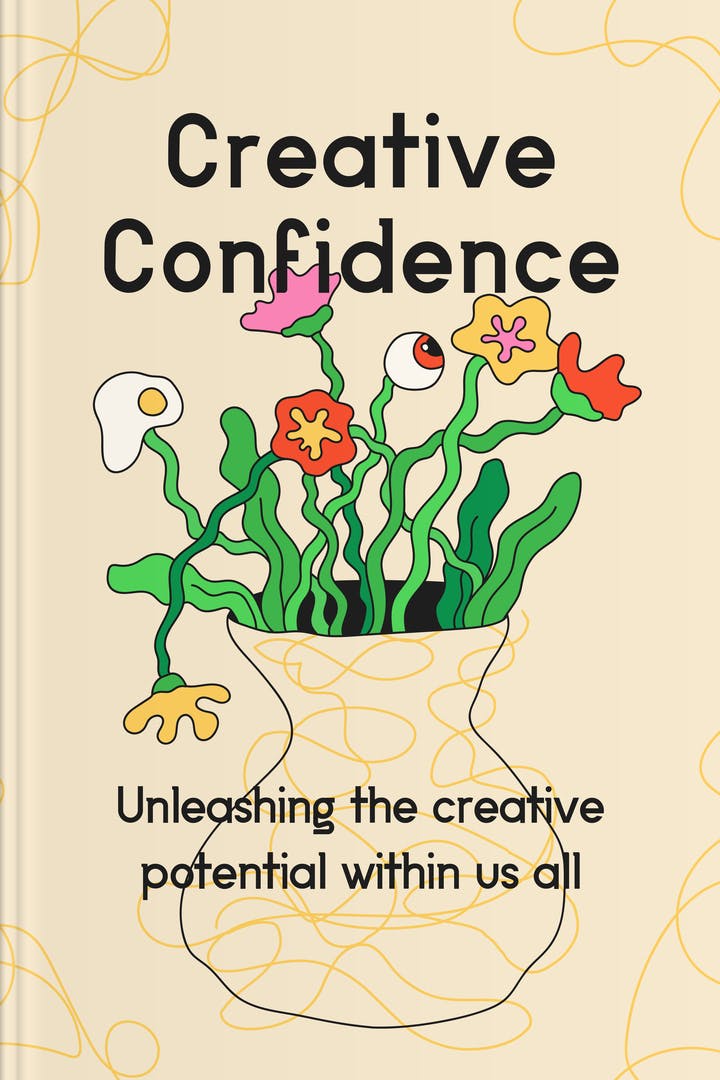
Creative Confidence
by Tom Kelley & David Kelley
What is Creative Confidence about?
"Creative Confidence" is a transformative guide that empowers individuals to tap into their innate creativity. Authored by two renowned innovators, this book explores practical strategies and inspiring stories to help readers overcome self-doubt and unleash their creative potential. With a focus on fostering creativity in all aspects of life, this book offers valuable insights and actionable steps to cultivate confidence and embrace the power of imagination.
Who should read Creative Confidence
Aspiring artists and designers seeking to unlock their creative potential.
Business professionals looking to foster innovation and creativity in their organizations.
Individuals lacking confidence in their creative abilities
seeking inspiration.
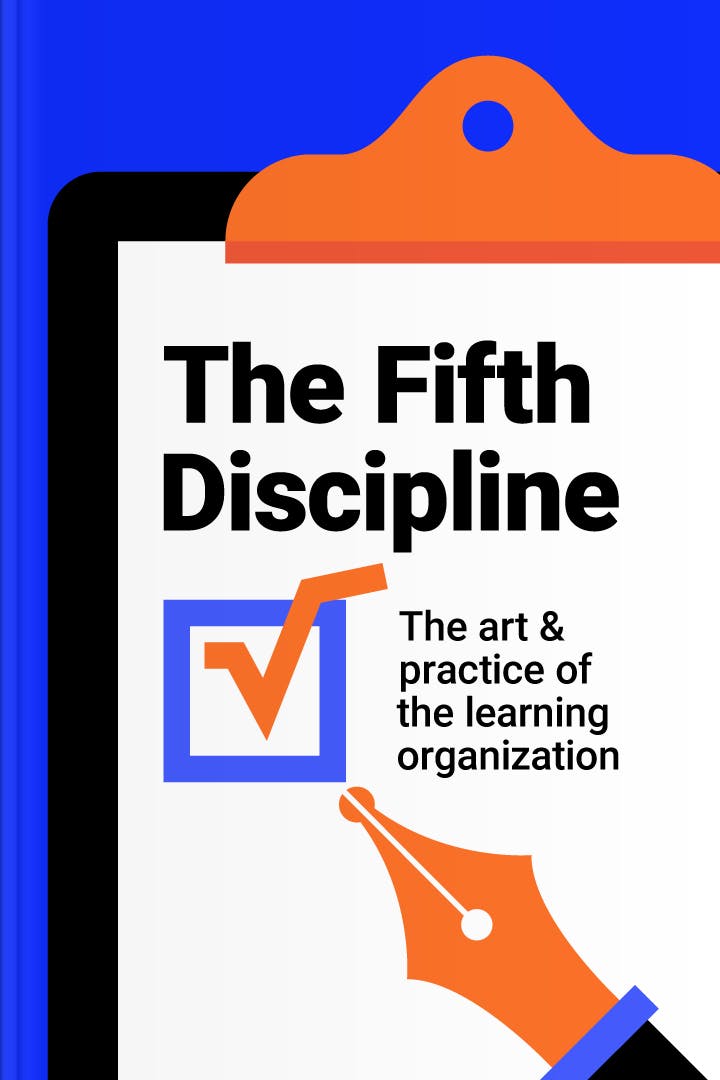
The Fifth Discipline
by Peter M. Senge
What is The Fifth Discipline about?
"The Fifth Discipline" explores the concept of a learning organization, where individuals and teams continuously enhance their capabilities to create a better future. Peter M. Senge delves into the five disciplines that are essential for building a learning organization: personal mastery, mental models, shared vision, team learning, and systems thinking. Through real-life examples and practical insights, Senge offers a roadmap for organizations to foster innovation, adaptability, and collective intelligence in an ever-changing world.
Who should read The Fifth Discipline
Business leaders seeking to transform their organizations into learning organizations.
Educators and trainers interested in fostering a culture of continuous learning.
Individuals looking to enhance their personal and professional growth.
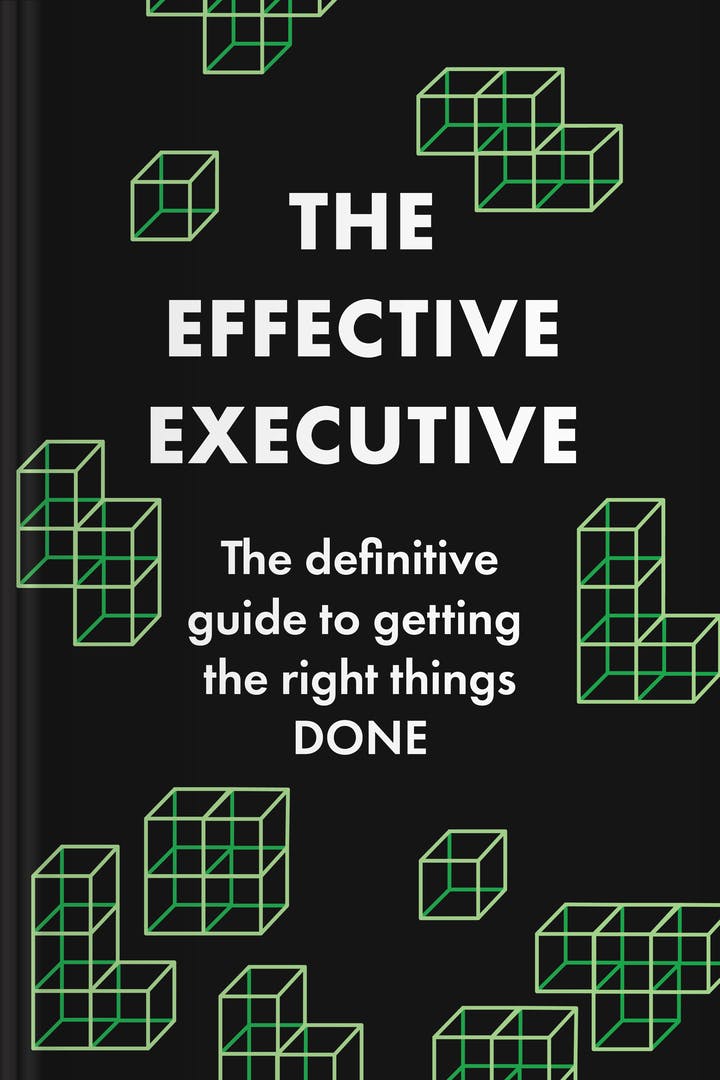
The Effective Executive
by Peter F. Drucker
What is The Effective Executive about?
"The Effective Executive" is a practical guide that offers valuable insights into how individuals can become more efficient and productive in their professional lives. Drawing from extensive research and real-life examples, the author provides actionable strategies and principles for effective decision-making, time management, and prioritization. This book serves as a comprehensive resource for anyone seeking to enhance their effectiveness and achieve greater success in their roles as executives or leaders.
Who should read The Effective Executive
Managers and executives seeking to enhance their leadership skills.
Business professionals aiming to improve their decision-making abilities.
Individuals interested in maximizing their personal and professional productivity.
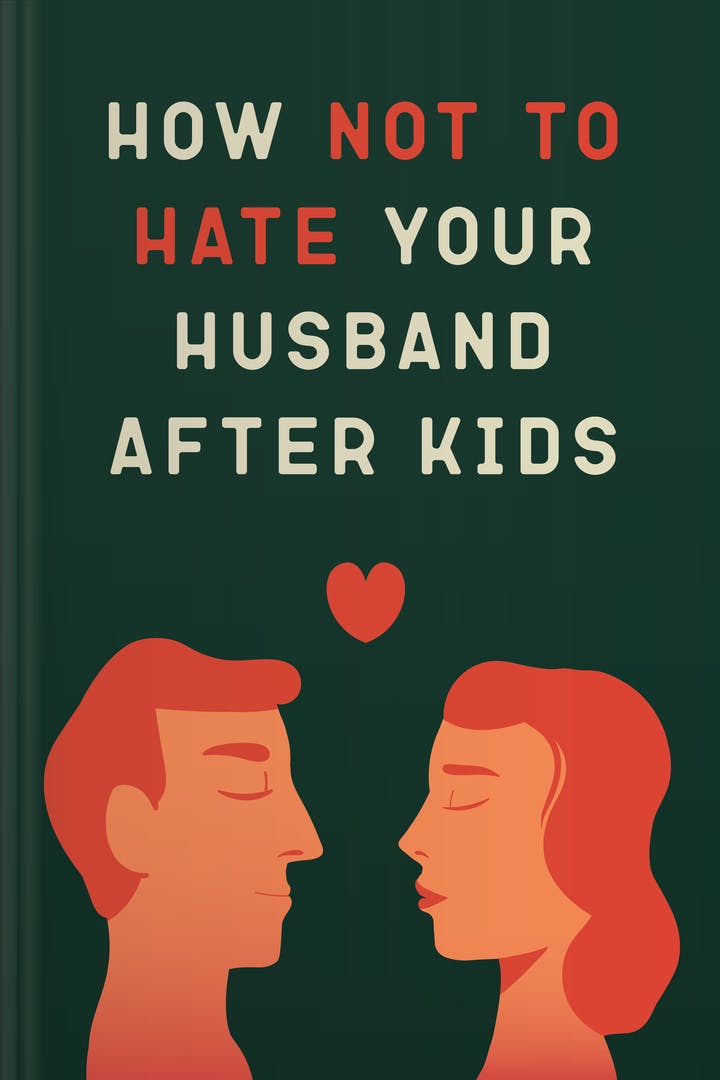
How Not to Hate Your Husband After Kids
by Jancee Dunn
What is How Not to Hate Your Husband After Kids about?
In this insightful and humorous book, Jancee Dunn shares her personal journey of navigating the challenges of marriage after having children. With a blend of research, expert advice, and relatable anecdotes, she offers practical strategies to help couples maintain a strong and loving relationship amidst the chaos of parenthood. From communication breakdowns to divvying up household chores, this book provides valuable insights and tips for any couple looking to strengthen their bond and find happiness in their post-kids life.
Who should read How Not to Hate Your Husband After Kids
New mothers struggling to maintain a healthy relationship with their husbands.
Couples seeking advice on navigating the challenges of parenthood.
Individuals interested in understanding the impact of children on marriages.
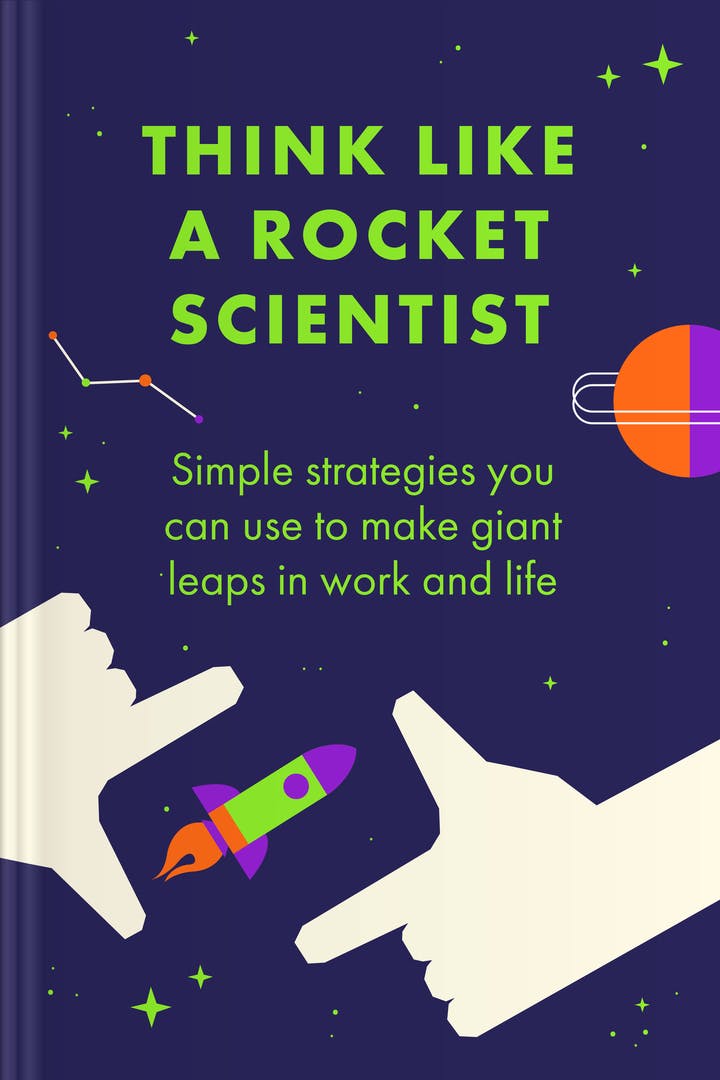
Think Like a Rocket Scientist
by Ozan Varol
What is Think Like a Rocket Scientist about?
In this insightful book, the author shares practical strategies to unleash your inner rocket scientist and achieve remarkable success in both your professional and personal life. Drawing from his experience as a former rocket scientist turned law professor, Varol offers a unique perspective on problem-solving, innovation, and decision-making. With engaging anecdotes and actionable advice, he empowers readers to think critically, embrace failure, and challenge conventional wisdom to make giant leaps forward in their work and life.
Who should read Think Like a Rocket Scientist
Professionals seeking innovative strategies to excel in their careers.
Individuals looking to enhance problem-solving skills and think creatively.
Science enthusiasts eager to explore the mindset of rocket scientists.
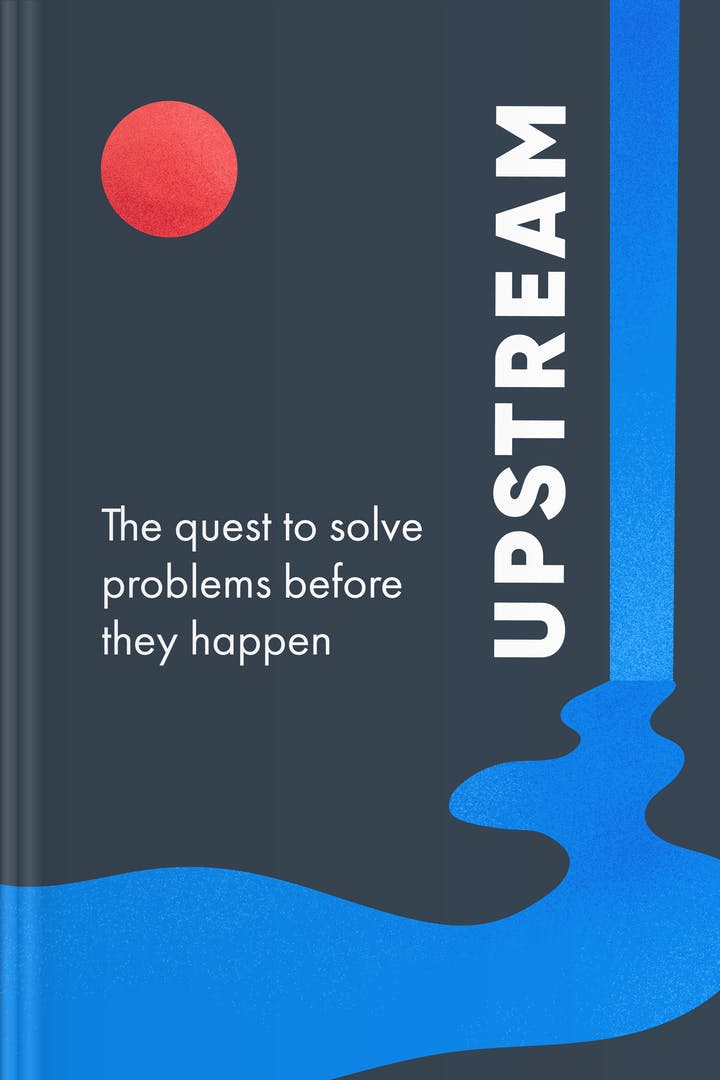
by Dan Heath
What is Upstream about?
In "Upstream," the author explores the power of prevention and proactive problem-solving. Drawing from various real-life examples, Dan Heath emphasizes the importance of addressing issues at their root causes rather than simply reacting to their consequences. With insightful anecdotes and practical strategies, he encourages readers to shift their mindset and take action to prevent problems before they arise, ultimately leading to more effective and sustainable solutions.
Who should read Upstream
Individuals seeking proactive strategies to prevent problems in their lives.
Business leaders aiming to anticipate and address potential challenges.
Policy makers interested in implementing preventive measures for societal issues.
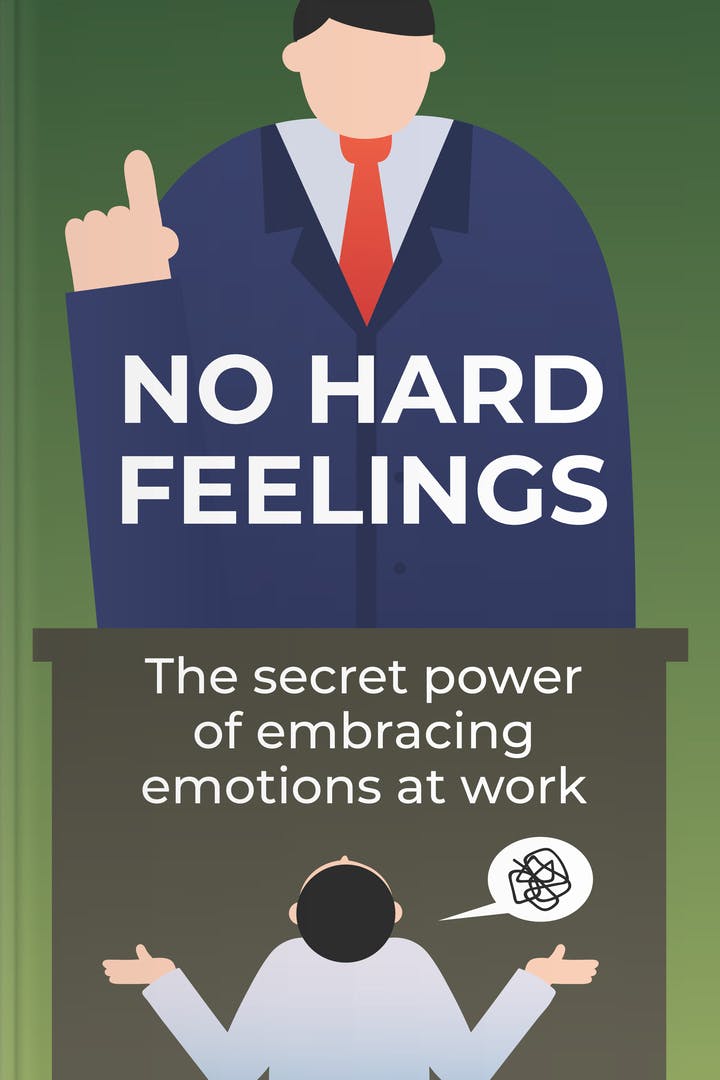
No Hard Feelings
by Liz Fosslien, Mollie West Duffy
What is No Hard Feelings about?
This insightful book explores the often overlooked role of emotions in the workplace. Drawing on research and personal experiences, the authors delve into how emotions impact our productivity, relationships, and overall well-being at work. With practical tips and relatable anecdotes, they provide guidance on how to navigate emotions effectively, fostering a more positive and empathetic work environment. Whether you're a manager or an employee, this book offers valuable insights for harnessing the power of emotions to thrive in the professional world.
Who should read No Hard Feelings
Professionals seeking to navigate and improve emotional intelligence in the workplace.
Managers and leaders looking to create a more emotionally intelligent work environment.
Individuals interested in understanding the impact of emotions on productivity.
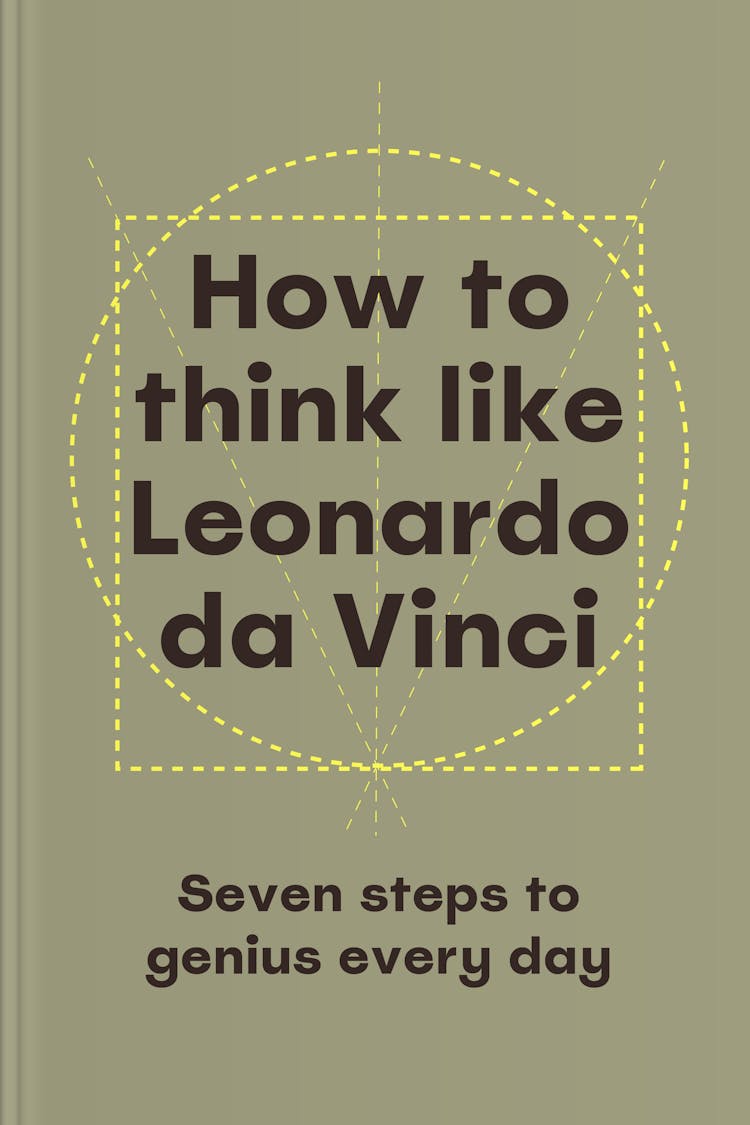
How to Think Like Leonardo da Vinci
by Michael J. Gelb
What is How to Think Like Leonardo da Vinci about?
In this insightful guide, the author explores the mind of the legendary artist and inventor, Leonardo da Vinci, revealing seven practical steps to cultivate genius in our daily lives. Drawing from da Vinci's notebooks, Gelb presents exercises and techniques to enhance creativity, sharpen thinking skills, and foster a holistic approach to problem-solving. This book offers a captivating journey into the mind of a genius, inspiring readers to unlock their own potential and think like da Vinci.
Who should read How to Think Like Leonardo da Vinci
Aspiring artists and creatives seeking to unlock their potential.
Professionals looking to enhance their problem-solving and critical thinking skills.
History enthusiasts interested in understanding the mind of Leonardo da Vinci.
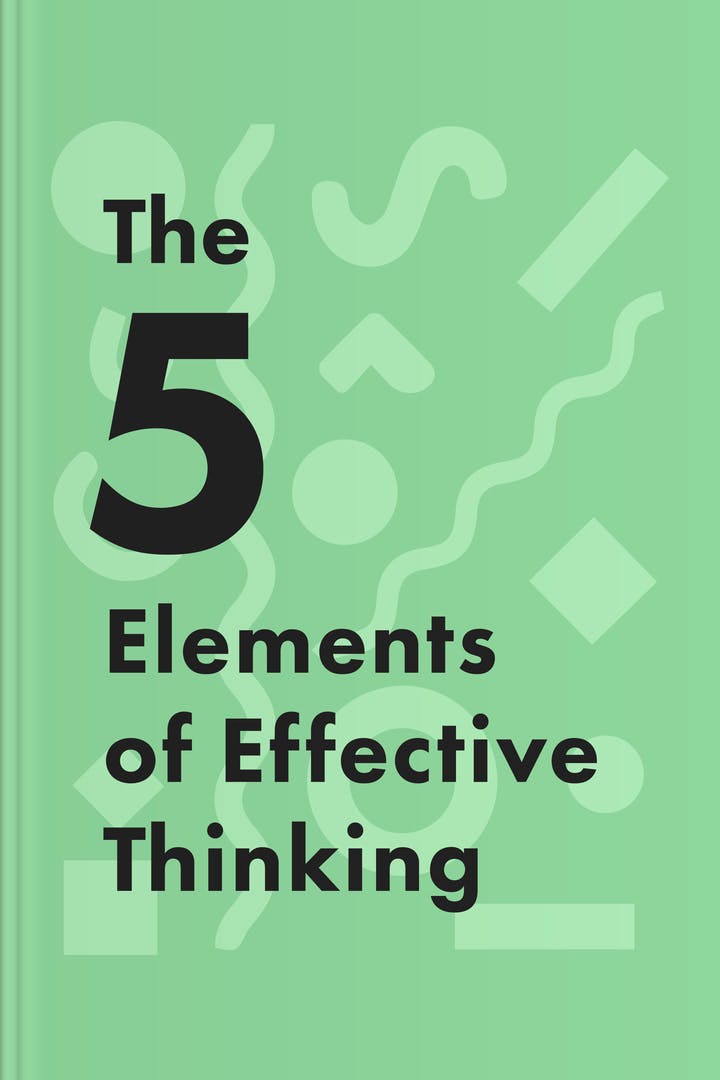
The 5 Elements of Effective Thinking
by Edward B. Burger, Michael Starbird
What is The 5 Elements of Effective Thinking about?
"The 5 Elements of Effective Thinking" offers readers a practical guide to enhance their thinking skills and become more effective problem solvers. Written by two renowned educators, this book explores five essential thinking strategies that can be applied to any situation. Through engaging examples and thought-provoking exercises, the authors empower readers to think more creatively, critically, and strategically, ultimately leading to improved decision-making and success in various aspects of life.
Who should read The 5 Elements of Effective Thinking
Students seeking to improve their critical thinking skills.
Professionals looking to enhance their problem-solving abilities.
Individuals interested in personal growth and self-improvement.
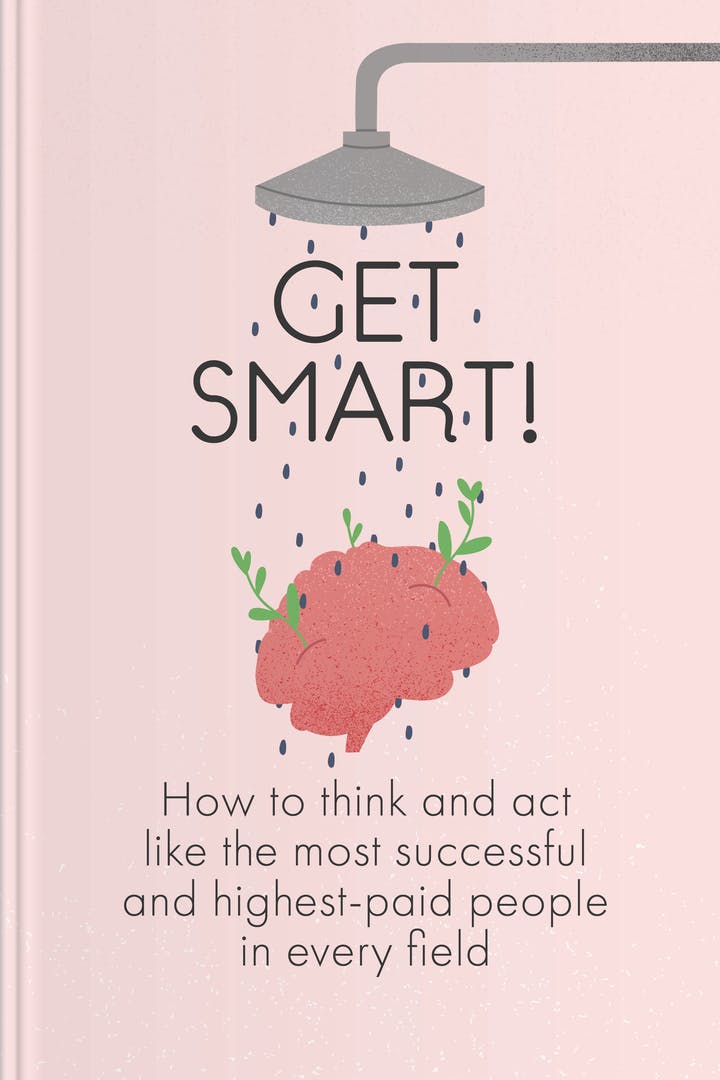
by Brian Tracy
What is Get Smart! about?
In this insightful guide, renowned author Brian Tracy shares the secrets to achieving success and financial abundance. Drawing from his extensive research and personal experiences, Tracy provides practical strategies and mindset shifts that can help individuals think and act like the most accomplished and well-compensated professionals in any industry. Packed with actionable advice, this book is a valuable resource for anyone looking to unlock their full potential and achieve their goals.
Who should read Get Smart!
Aspiring professionals seeking to unlock the secrets of success.
Individuals looking to enhance their productivity and achieve financial abundance.
Ambitious individuals striving to reach the top of their respective fields.
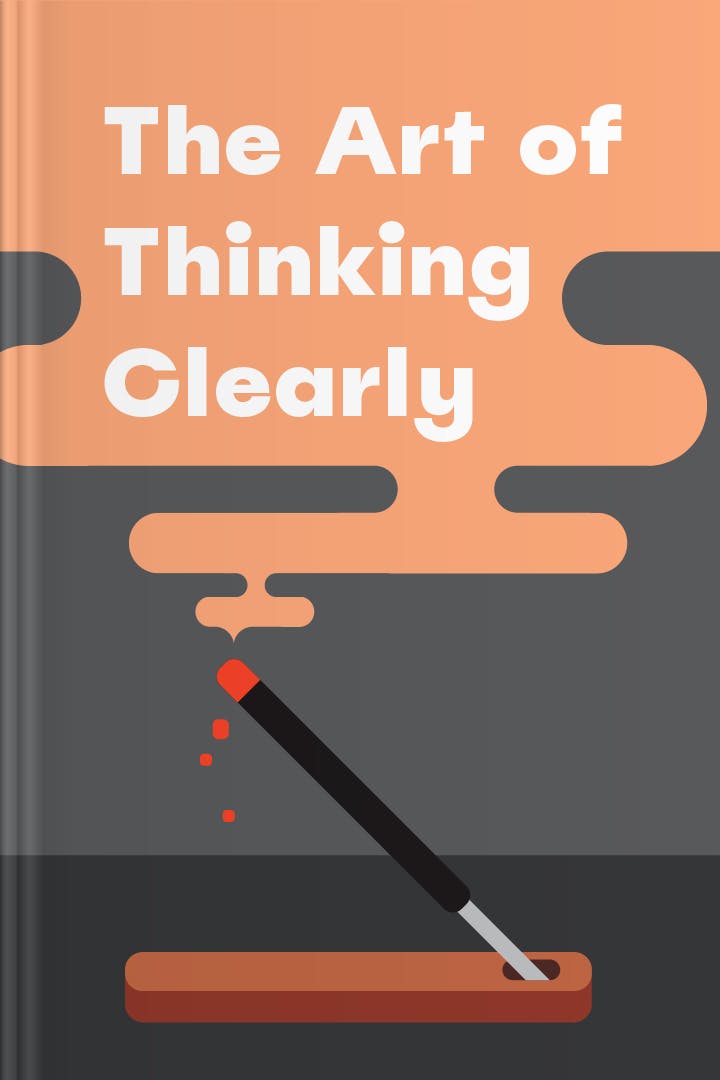
The Art of Thinking Clearly
by Rolf Dobelli
What is The Art of Thinking Clearly about?
"The Art of Thinking Clearly" is a thought-provoking book that explores the common cognitive biases and logical fallacies that often cloud our decision-making process. Written by an acclaimed author, this book offers practical insights and strategies to help readers identify and overcome these mental traps. With a blend of psychology, philosophy, and real-life examples, it provides a valuable guide to improving our critical thinking skills and making better choices in various aspects of life.
Who should read The Art of Thinking Clearly
Individuals seeking to improve their decision-making skills and critical thinking abilities.
Business professionals looking to enhance their problem-solving strategies and avoid cognitive biases.
Anyone interested in understanding common thinking errors and improving their judgment.
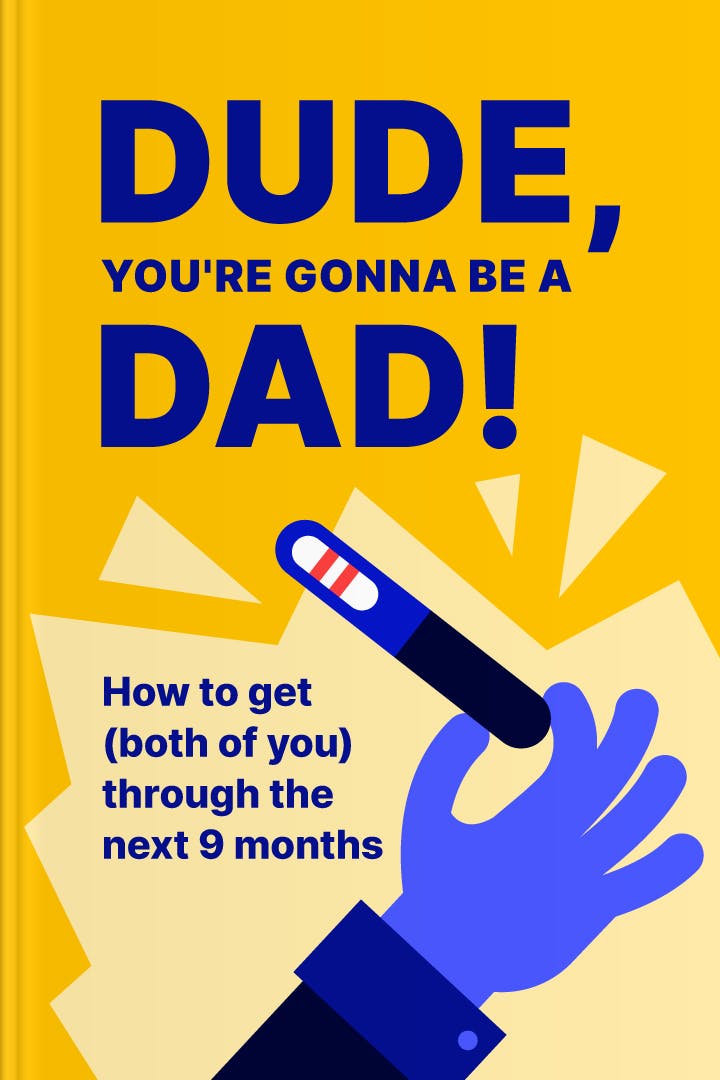
Dude, You're Gonna Be a Dad! How to Get (Both of You) Through the Next 9 months
by John Pfeiffer
What is Dude, You're Gonna Be a Dad! How to Get (Both of You) Through the Next 9 months about?
This informative guide offers practical advice and support for expectant fathers as they navigate the journey of pregnancy alongside their partners. From understanding the physical and emotional changes of pregnancy to preparing for childbirth and beyond, the author provides a humorous and relatable perspective on the challenges and joys of becoming a dad. With helpful tips and insights, this book is a must-read for any soon-to-be father.
Who should read Dude, You're Gonna Be a Dad! How to Get (Both of You) Through the Next 9 months
Expectant fathers seeking practical advice on navigating pregnancy with their partner.
Couples preparing for the journey of pregnancy and parenthood together.
Soon-to-be dads looking for a humorous and relatable guide.
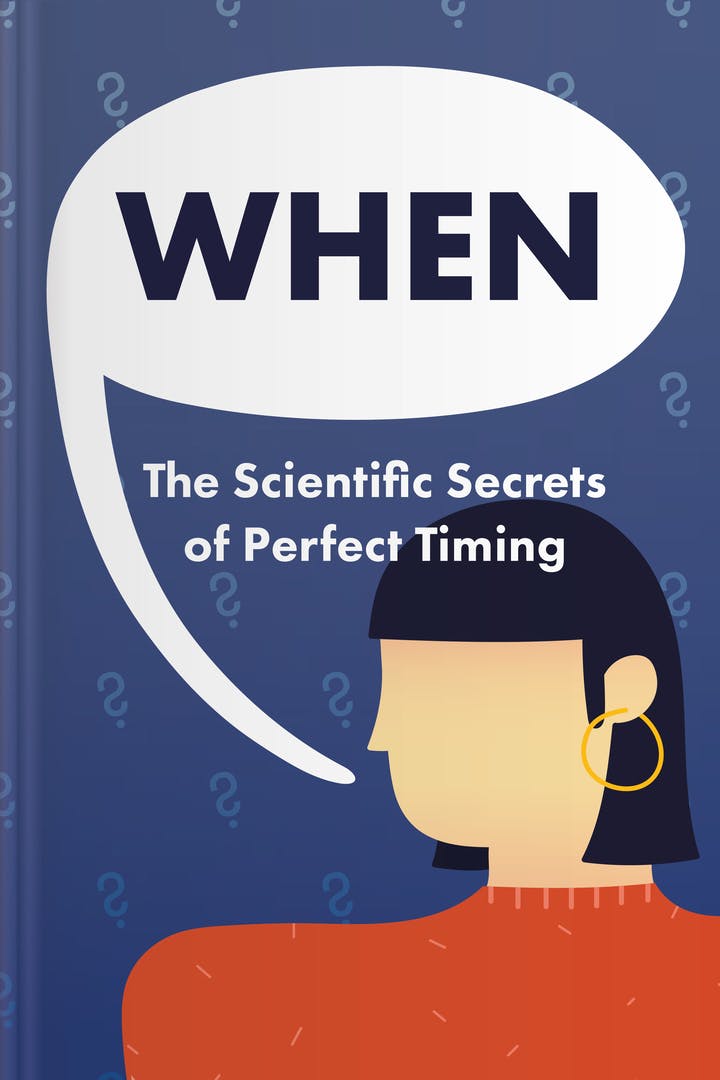
by Daniel H. Pink
What is When about?
In this insightful book, the author explores the hidden science behind timing and its impact on our daily lives. Drawing on a wide range of research, Pink reveals how our internal clocks affect our mood, decision-making, and productivity. From the best time to schedule a meeting to the ideal moment for a career change, this book offers practical advice on how to harness the power of timing to optimize our personal and professional lives.
Who should read When
Professionals seeking to optimize their productivity and time management skills.
Students looking to enhance their study habits and academic performance.
Individuals interested in understanding the impact of timing on personal and professional success.
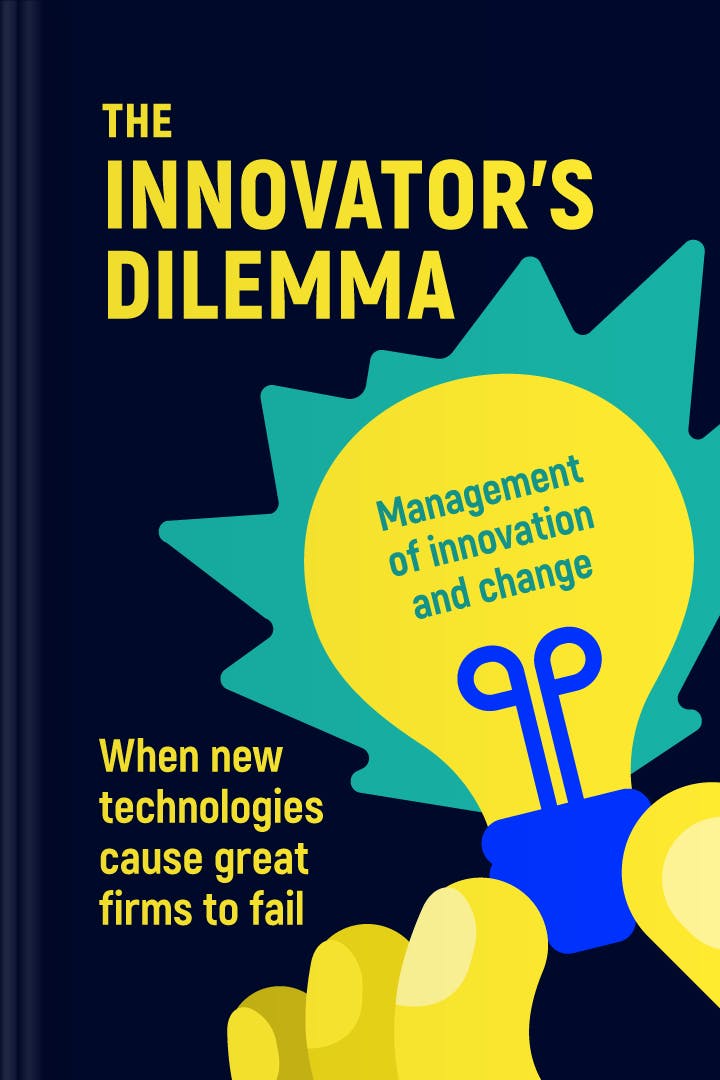
The Innovator's Dilemma
by Clayton M. Christensen
What is The Innovator's Dilemma about?
This book explores the challenges faced by successful companies when disruptive technologies emerge in the market. Clayton M. Christensen analyzes how established firms often fail to adapt to these new technologies due to their focus on sustaining innovations. Through case studies and research, the book offers insights into the "innovator's dilemma" and provides strategies for companies to navigate these disruptive changes and avoid failure.
Who should read The Innovator's Dilemma
Entrepreneurs and business leaders seeking insights on disruptive innovation.
Executives and managers in established companies facing technological disruptions.
Students and academics studying the challenges of innovation and industry dynamics.
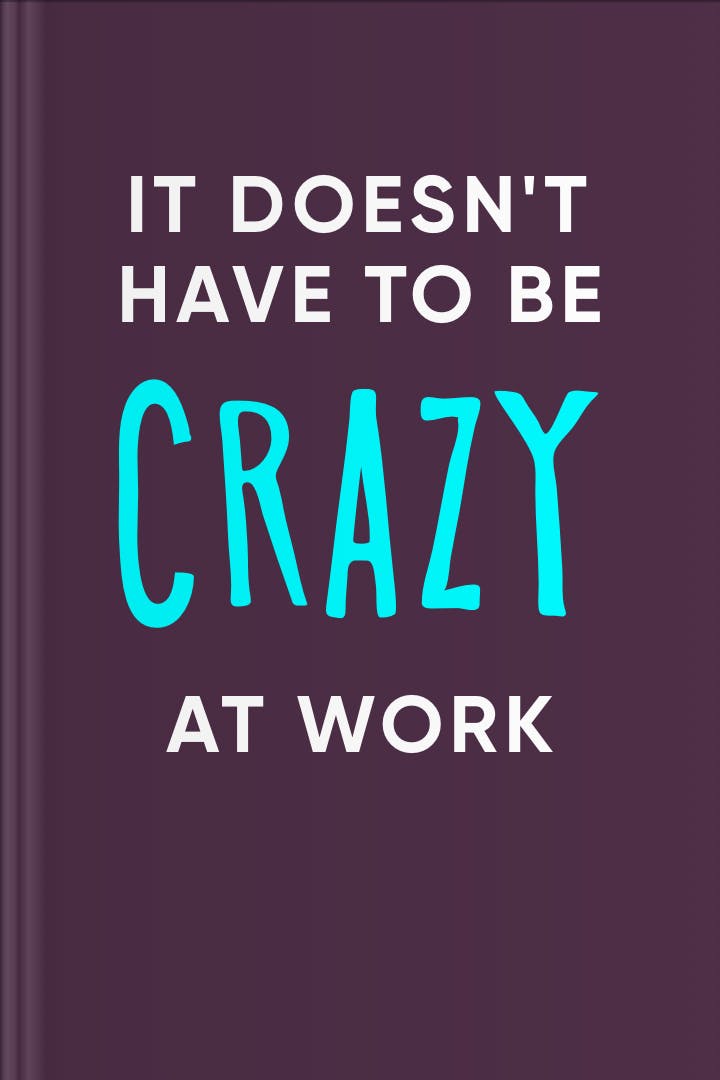
It Doesn't Have to Be Crazy at Work
by Jason Fried, David Heinemeier Hansson
What is It Doesn't Have to Be Crazy at Work about?
This book offers a refreshing perspective on work culture, challenging the notion that chaos and stress are inevitable in the workplace. The authors, drawing from their own experiences, provide practical advice and strategies for creating a calmer and more productive work environment. With a focus on prioritizing well-being and embracing simplicity, this book offers valuable insights for anyone seeking to transform their work life and foster a healthier work culture.
Who should read It Doesn't Have to Be Crazy at Work
Entrepreneurs and business owners seeking a more balanced work-life approach.
Managers and team leaders looking to create a healthier work environment.
Individuals interested in challenging traditional work culture and practices.
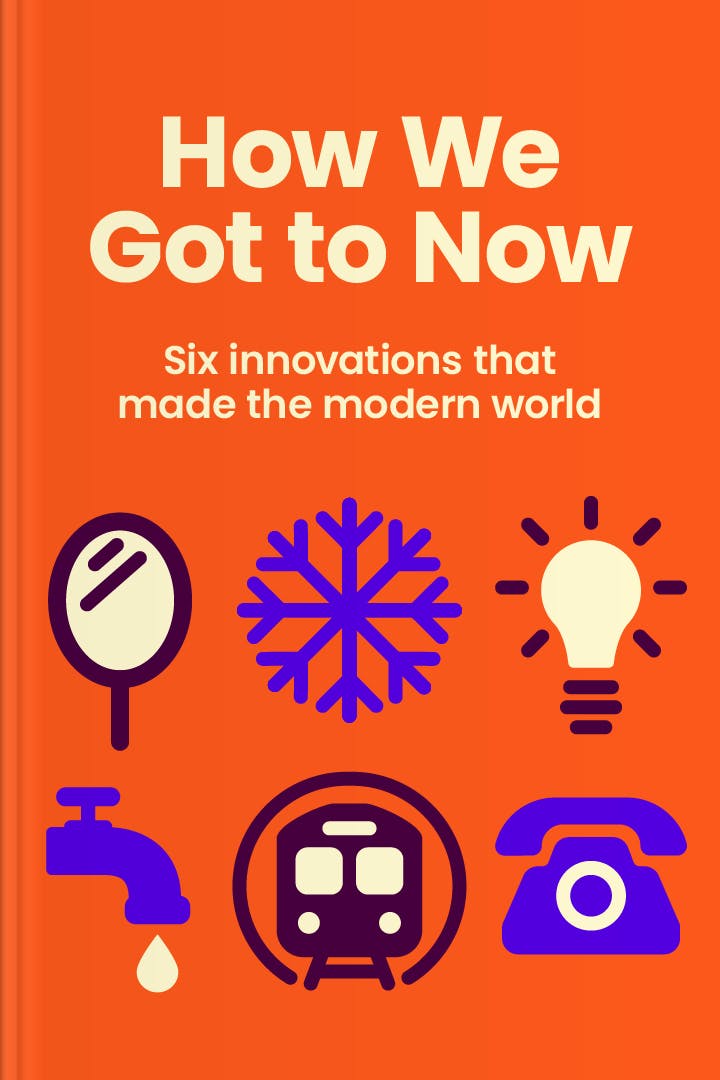
How We Got to Now
by Steven Johnson
What is How We Got to Now about?
In "How We Got to Now," the author explores six pivotal innovations that have shaped the modern world. From the discovery of glass to the development of refrigeration, Steven Johnson delves into the interconnectedness of these breakthroughs and their profound impact on society. Through captivating storytelling and insightful analysis, he reveals the unexpected origins and far-reaching consequences of these innovations, offering a fresh perspective on the history of human progress.
Who should read How We Got to Now
History enthusiasts seeking to understand the pivotal innovations shaping our world.
Science and technology enthusiasts eager to explore the origins of modern advancements.
Curious individuals interested in the interconnectedness of past and present innovations.
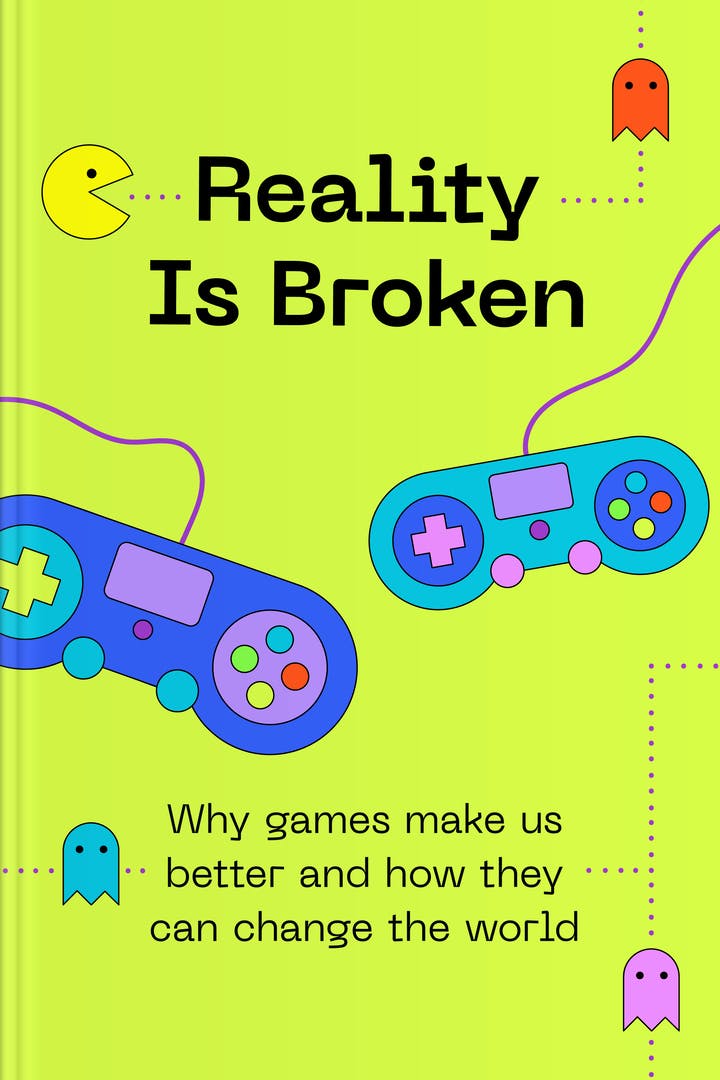
Reality Is Broken
by Jane McGonigal
What is Reality Is Broken about?
In this thought-provoking book, the author explores the power of games to transform our lives and society. Drawing on extensive research, Jane McGonigal argues that games have the potential to solve real-world problems and improve our well-being. She delves into the psychology behind gaming, highlighting how it can enhance our motivation, resilience, and social connections. With compelling examples and practical insights, McGonigal presents a compelling case for the transformative potential of games in shaping a better world.
Who should read Reality Is Broken
Gamers and game enthusiasts seeking to understand the positive impact of games on society.
Educators and parents interested in harnessing the power of games for learning and motivation.
Social activists and policymakers looking for innovative solutions to global challenges.
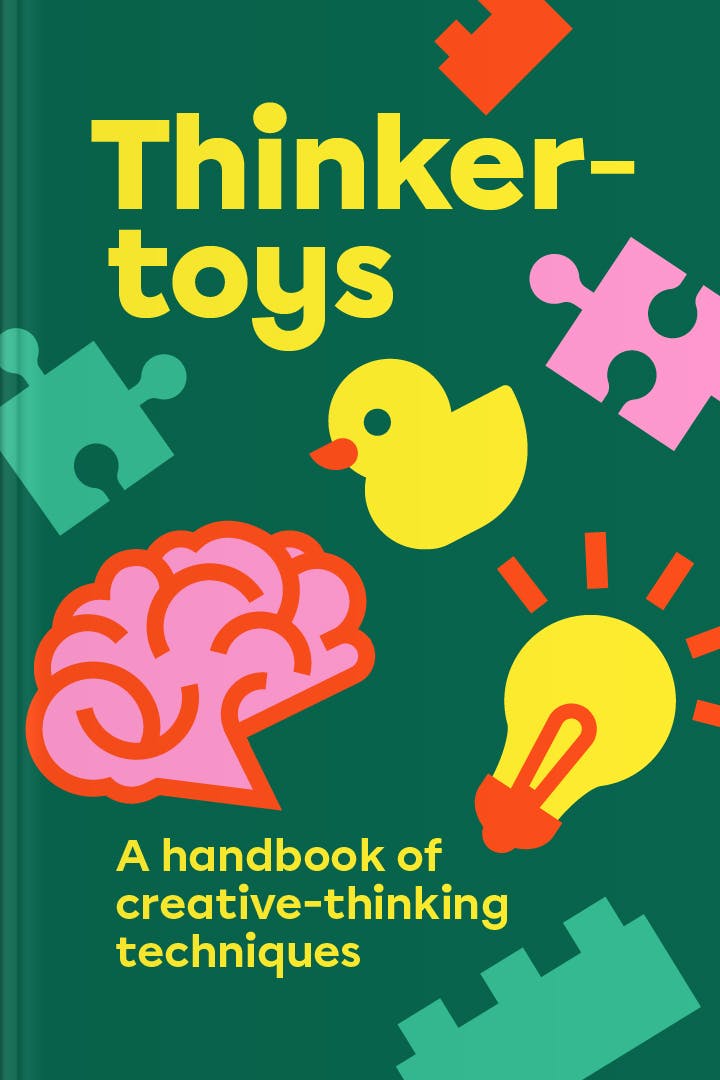
Thinkertoys
by Michael Michalko
What is Thinkertoys about?
"Thinkertoys" is a practical guide by Michael Michalko that offers a diverse collection of creative-thinking techniques. This handbook provides readers with a toolbox of strategies to enhance their problem-solving skills and stimulate innovative ideas. Through a combination of exercises, puzzles, and real-life examples, Michalko encourages readers to think outside the box and tap into their creative potential. Whether you're a student, professional, or simply seeking to expand your thinking abilities, this book is a valuable resource for unlocking your imagination.
Who should read Thinkertoys
Aspiring entrepreneurs seeking innovative strategies to boost their business.
Students and educators looking to enhance their problem-solving skills.
Professionals in creative fields aiming to unlock their creative potential.
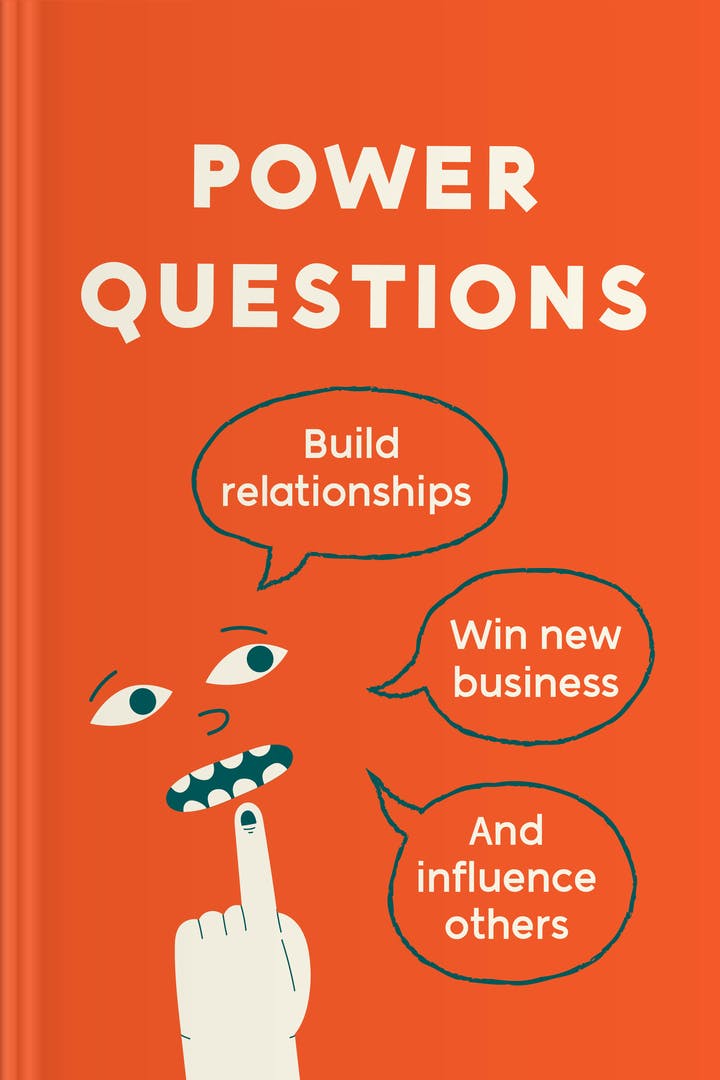
Power Questions
by Andrew Sobel, Jerold Panas
What is Power Questions about?
"Power Questions" is a practical guide that offers valuable insights on how to effectively build relationships, win new business, and influence others. Written by Andrew Sobel and Jerold Panas, this book provides a comprehensive collection of thought-provoking questions that can be used in various professional and personal settings. With a focus on enhancing communication skills and fostering meaningful connections, this book equips readers with the tools to achieve success in their interactions and achieve their goals.
Who should read Power Questions
Sales professionals looking to enhance their communication and persuasion skills.
Business leaders seeking to strengthen their relationship-building abilities.
Individuals interested in improving their influence and networking capabilities.
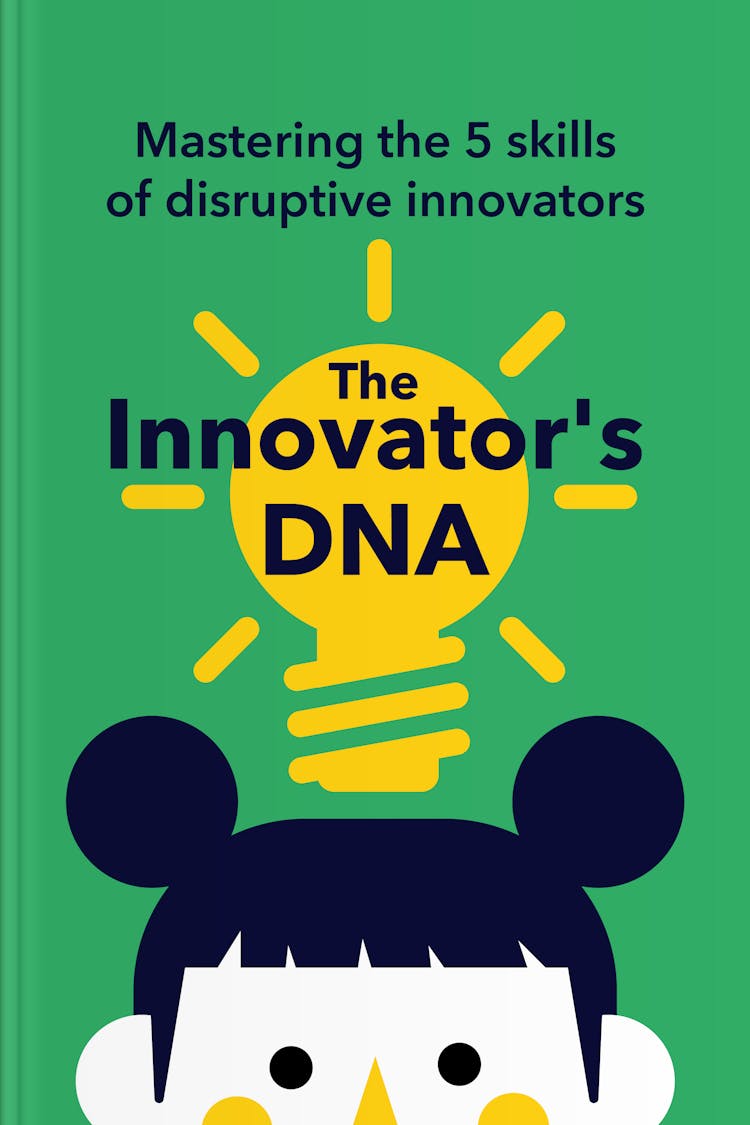
The Innovator's DNA
by Jeff H. Dyer, Hal B. Gregersen, Clayton M. Christensen
What is The Innovator's DNA about?
"The Innovator's DNA" explores the essential skills and traits possessed by disruptive innovators. Drawing on extensive research and interviews with successful entrepreneurs, the book identifies five key behaviors that drive innovation: associating, questioning, observing, networking, and experimenting. By mastering these skills, individuals can unlock their own potential for groundbreaking ideas and create lasting impact in their industries. With practical insights and real-world examples, this book serves as a guide for anyone looking to cultivate their innovative mindset and drive meaningful change.
Who should read The Innovator's DNA
Entrepreneurs and business leaders seeking to develop disruptive innovation skills.
Aspiring innovators looking to understand and cultivate their creative abilities.
Students and researchers interested in the field of disruptive innovation.
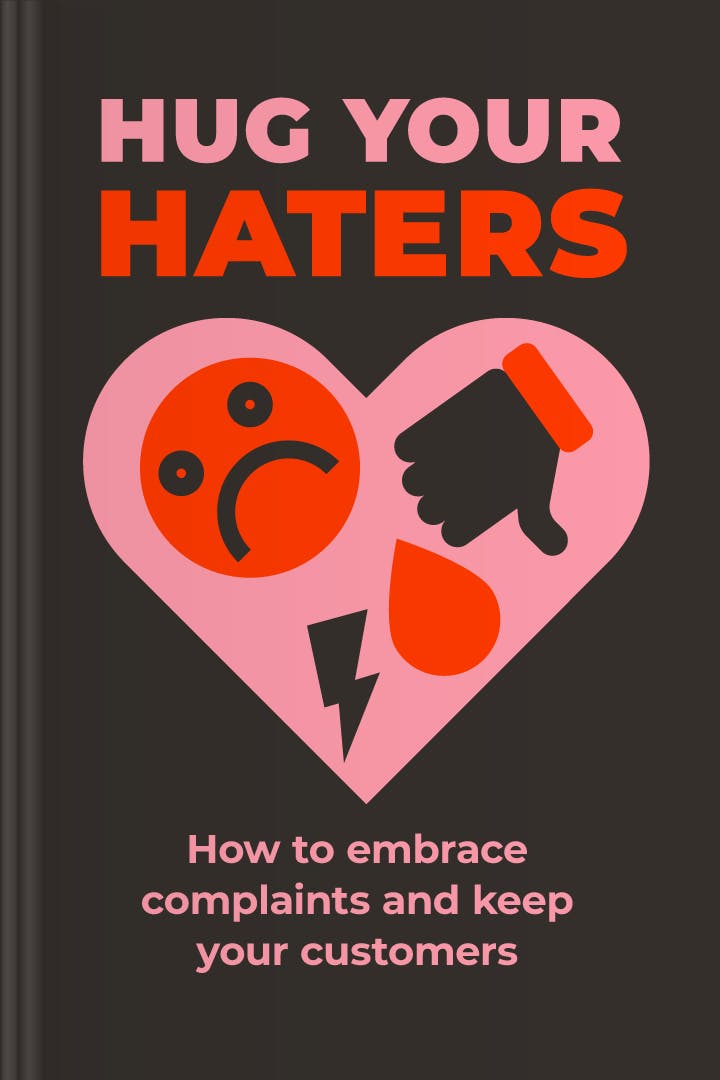
Hug Your Haters
by Jay Baer
What is Hug Your Haters about?
In this insightful book, the author explores the importance of embracing customer complaints and feedback. With real-life examples and practical advice, the book teaches businesses how to effectively handle and respond to customer complaints in the digital age. By understanding the power of customer feedback, businesses can improve their customer service, build stronger relationships, and ultimately, achieve long-term success.
Who should read Hug Your Haters
Business owners and managers seeking to improve customer service.
Customer service representatives looking to handle complaints effectively.
Entrepreneurs and marketers aiming to build strong customer relationships.
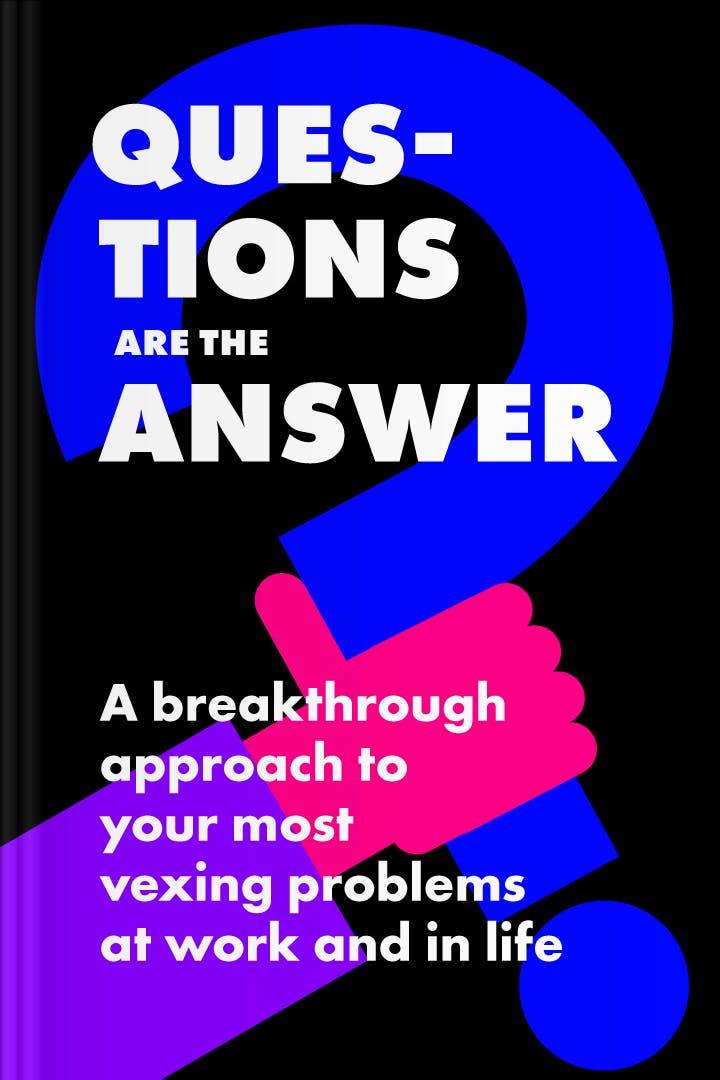
Questions Are the Answer
by Hal B. Gregersen
What is Questions Are the Answer about?
In this thought-provoking book, the author presents a groundbreaking approach to solving the most challenging problems we face in both our personal and professional lives. Through the power of asking the right questions, Hal B. Gregersen guides readers on a transformative journey, encouraging them to challenge assumptions, explore new perspectives, and unlock innovative solutions. Packed with real-life examples and practical strategies, this book offers a fresh perspective on problem-solving that will inspire readers to think differently and find answers they never thought possible.
Who should read Questions Are the Answer
Professionals seeking innovative problem-solving strategies for their work challenges.
Individuals looking to overcome personal obstacles and find solutions.
Leaders and managers aiming to foster a culture of curiosity and creativity.
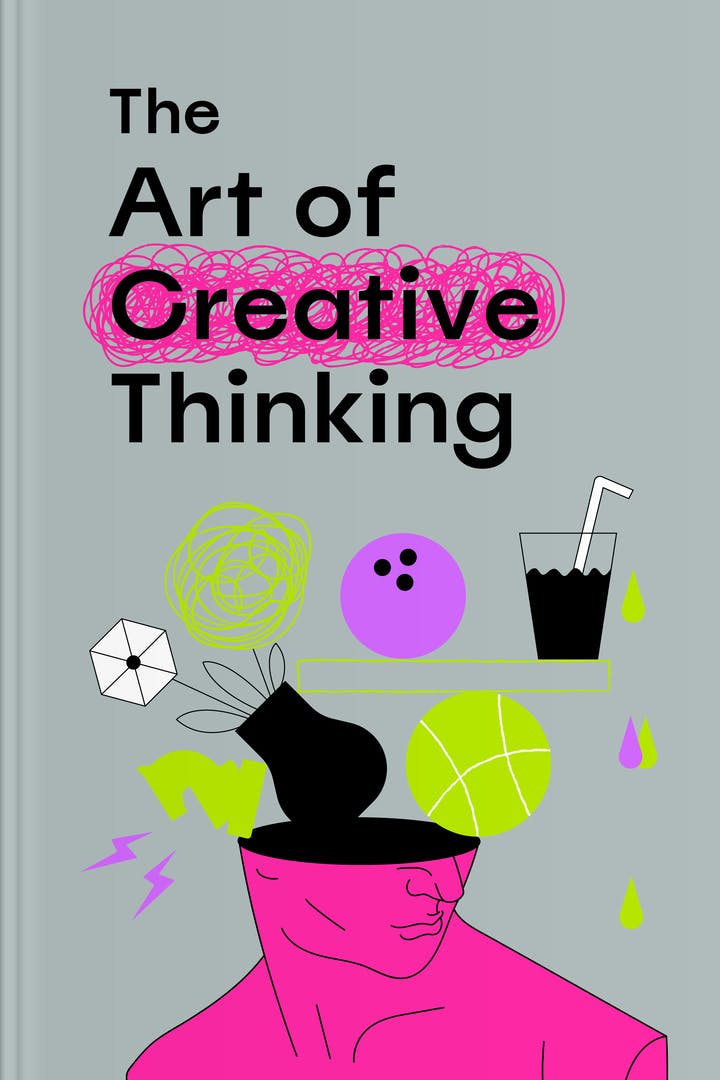
The Art of Creative Thinking
by John Adair
What is The Art of Creative Thinking about?
"The Art of Creative Thinking" by John Adair is a practical guide that explores the process of generating innovative ideas. Filled with insightful techniques and real-life examples, this book equips readers with the tools to enhance their creativity and develop great ideas. Adair delves into various aspects of creative thinking, including problem-solving, brainstorming, and fostering a creative environment. Whether you're an individual seeking personal growth or a team leader aiming to inspire innovation, this book offers valuable strategies for unlocking your creative potential.
Who should read The Art of Creative Thinking
Aspiring entrepreneurs seeking to unlock their creative potential.
Professionals in creative industries looking to enhance their innovative skills.
Students and educators interested in fostering creativity and idea generation.
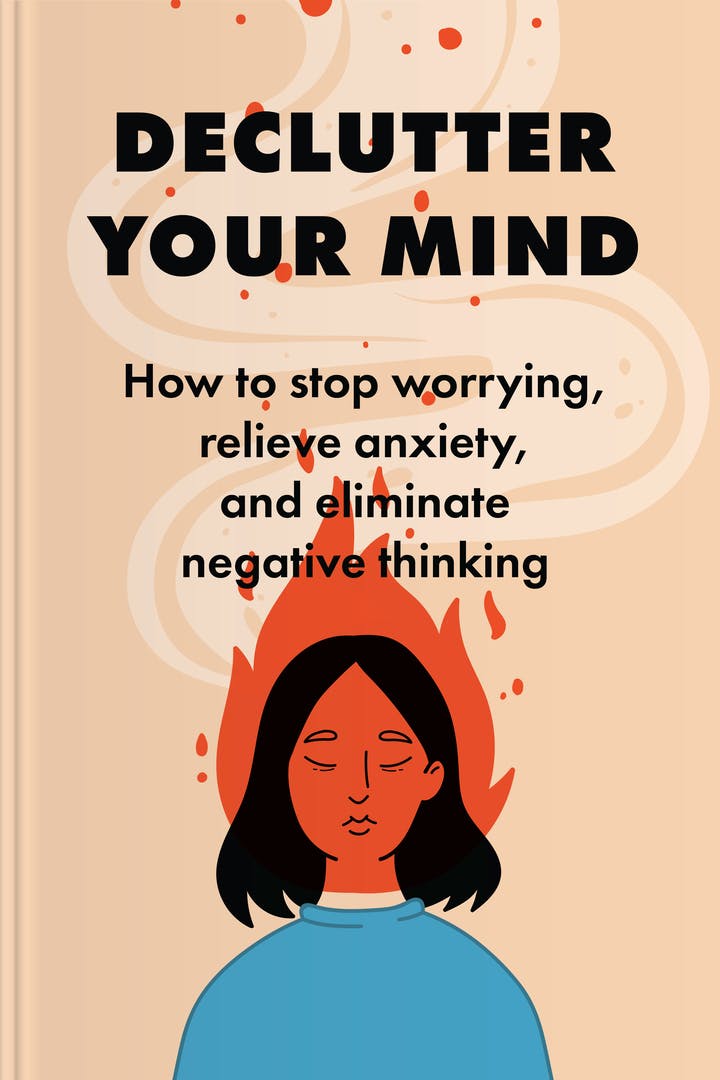

Declutter Your Mind
by S. J. Scott & Barrie Davenport
What is Declutter Your Mind about?
In this insightful guide, two experienced authors offer practical strategies to declutter your mind and find inner peace. They delve into the root causes of worry, anxiety, and negative thinking, providing step-by-step techniques to overcome these challenges. With a focus on mindfulness, self-reflection, and positive habits, this book empowers readers to regain control of their thoughts, reduce stress, and cultivate a more peaceful and fulfilling life.
Who should read Declutter Your Mind
Individuals struggling with anxiety and negative thinking patterns.
People seeking practical strategies to reduce worry and stress.
Anyone interested in improving their mental well-being and finding peace.
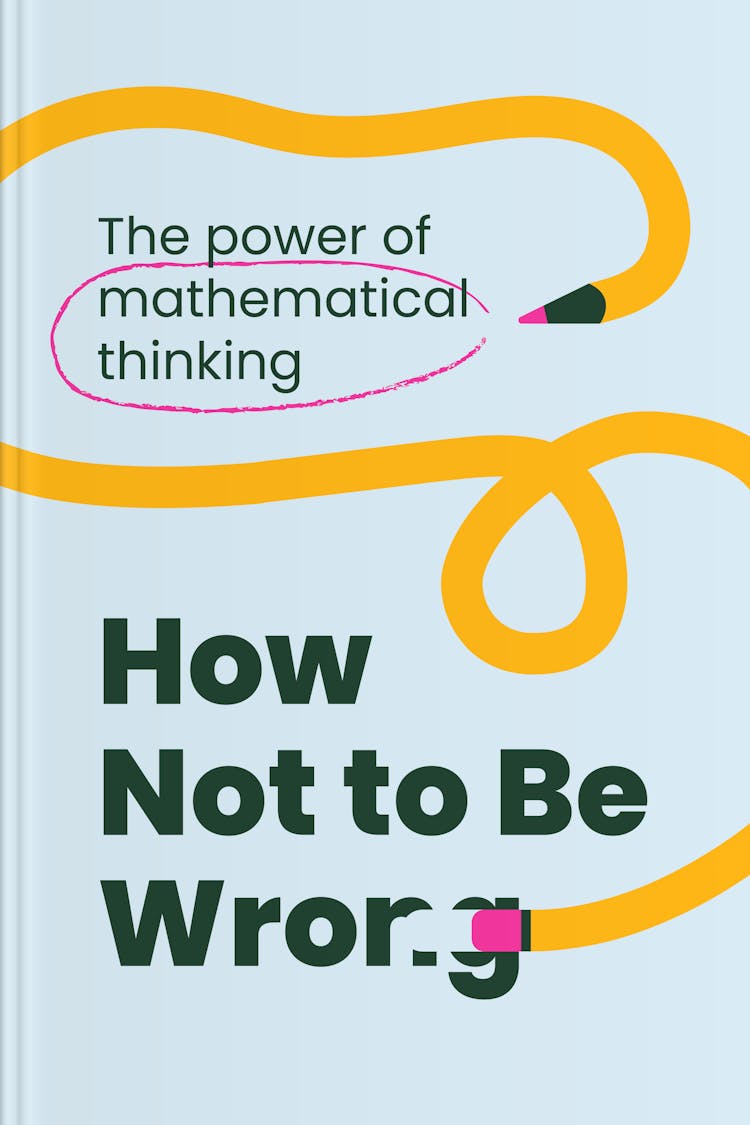
How Not to Be Wrong
by Jordan Ellenberg
What is How Not to Be Wrong about?
In this captivating book, the author explores the fascinating world of mathematics and its practical applications in everyday life. Through engaging anecdotes and thought-provoking examples, he reveals how mathematical thinking can help us make better decisions, solve complex problems, and avoid common pitfalls. With wit and clarity, the author demonstrates the power of mathematical reasoning, showing readers how to think critically and navigate the world with a sharper, more logical perspective.
Who should read How Not to Be Wrong
Students and educators seeking to enhance their mathematical reasoning skills.
Professionals in fields like finance
engineering
or data analysis.
Anyone interested in understanding the practical applications of mathematics.
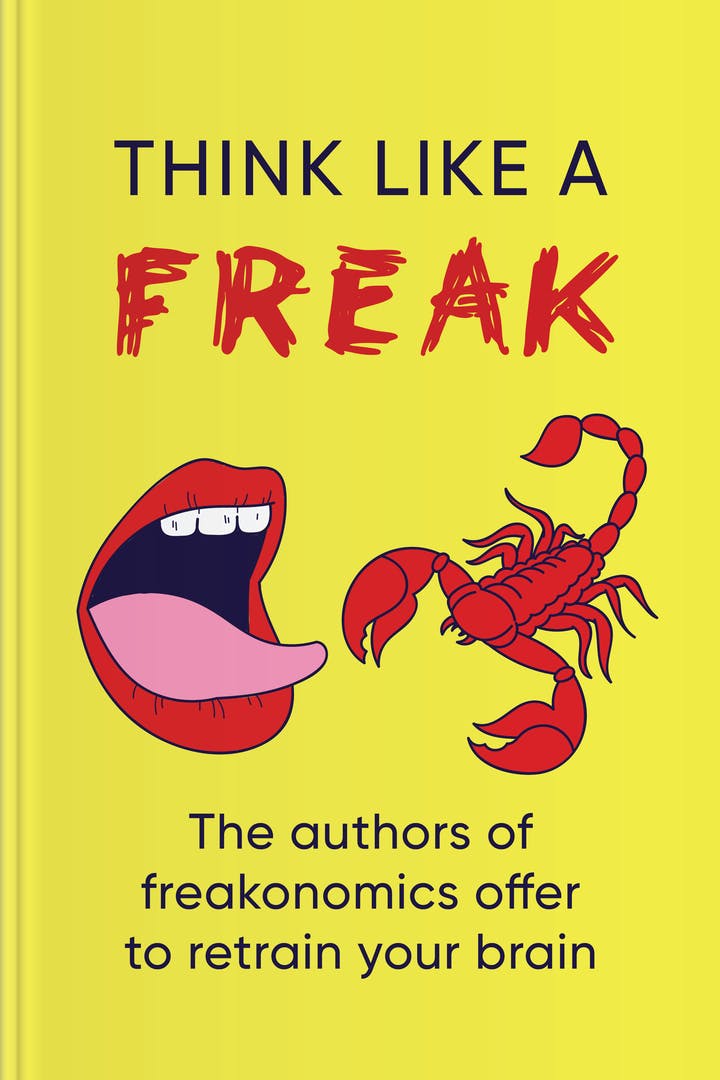
Think Like a Freak
by Steven D. Levitt, Stephen J. Dubner
What is Think Like a Freak about?
"Think Like a Freak" is a thought-provoking book that challenges conventional wisdom and encourages readers to approach problems with a fresh perspective. Written by the authors of Freakonomics, Steven D. Levitt and Stephen J. Dubner, this book offers practical advice on how to retrain your brain to think creatively, solve complex issues, and make better decisions. With engaging anecdotes and real-life examples, it provides a fascinating exploration of the power of unconventional thinking.
Who should read Think Like a Freak
Individuals seeking unconventional approaches to problem-solving and decision-making.
Business professionals looking to enhance their critical thinking skills.
Fans of the Freakonomics series eager to explore new perspectives.
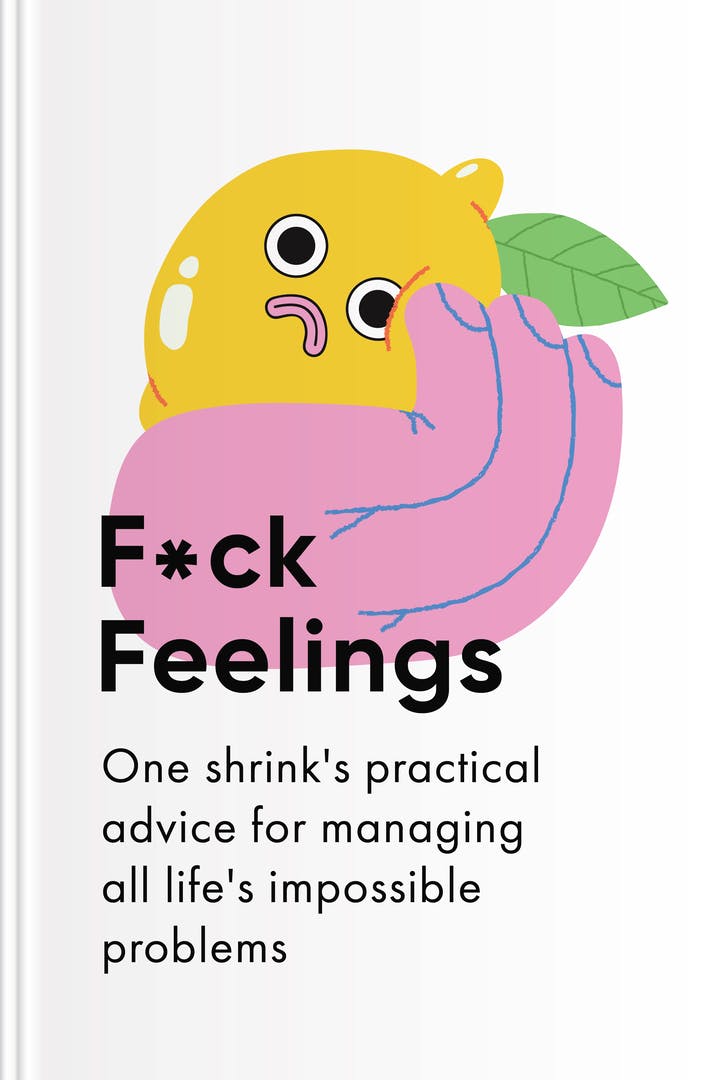
F*ck Feelings
by Michael Bennett, MD, Sarah Bennett
What is F*ck Feelings about?
This book offers practical advice for navigating life's most challenging problems. Written by a psychiatrist and his comedy writer daughter, it provides a refreshing and irreverent take on self-help. With a no-nonsense approach, it guides readers on how to accept and manage their emotions, while offering strategies to overcome life's inevitable obstacles. Filled with humor and wisdom, this book is a valuable resource for anyone seeking practical solutions to life's impossible problems.
Who should read F*ck Feelings
Individuals seeking practical advice for managing life's challenges.
Those interested in a no-nonsense approach to problem-solving.
People looking for a fresh perspective on emotional well-being.
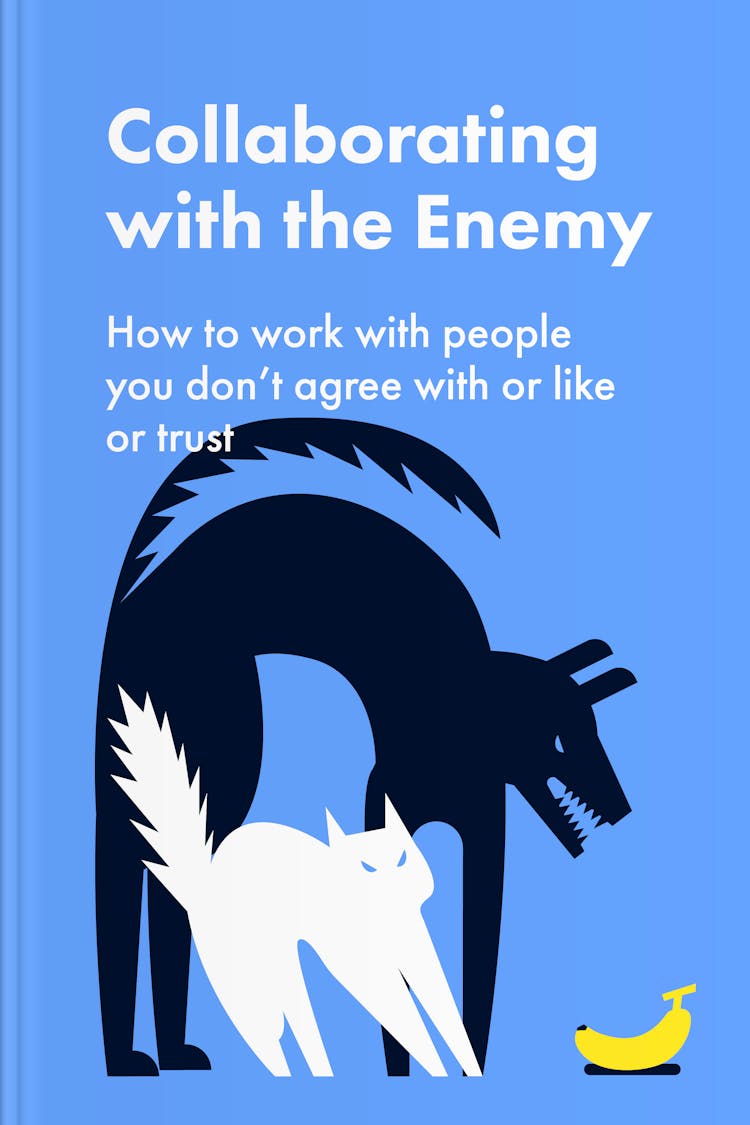
Collaborating with the Enemy
by Adam Kahane
What is Collaborating with the Enemy about?
In this insightful book, Adam Kahane explores the art of collaboration in the face of disagreement, dislike, and lack of trust. Drawing from his extensive experience as a mediator and facilitator, Kahane offers practical strategies and tools to navigate complex and polarized situations. Through compelling stories and real-life examples, he demonstrates how collaboration can lead to innovative solutions and transformative change, even when working with seemingly impossible adversaries. A must-read for anyone seeking to bridge divides and find common ground in today's challenging world.
Who should read Collaborating with the Enemy
Professionals seeking strategies to navigate challenging work relationships effectively.
Leaders aiming to foster collaboration in diverse and conflicting teams.
Individuals interested in improving their ability to resolve conflicts peacefully.
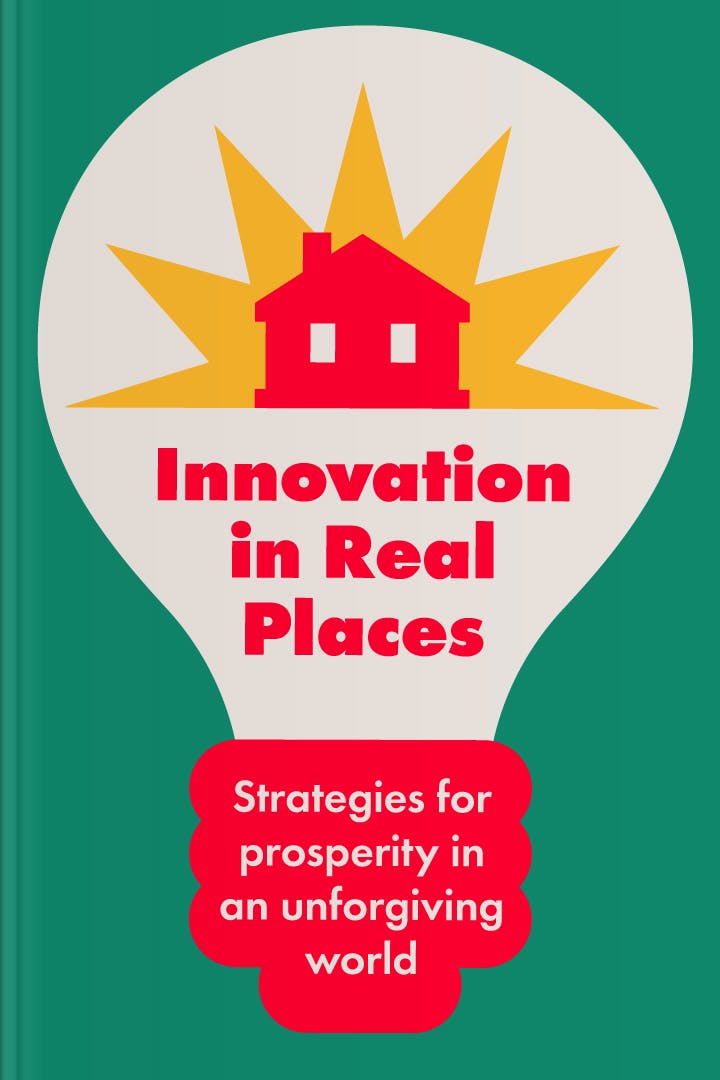
Innovation in Real Places
by Dan Breznitz
What is Innovation in Real Places about?
"Innovation in Real Places" by Dan Breznitz explores strategies for achieving prosperity in a challenging global landscape. The book delves into the importance of innovation in driving economic growth and offers insights into how different regions can foster innovation to thrive in an unforgiving world. Breznitz provides a comprehensive analysis of successful innovation ecosystems, highlighting the key factors that contribute to their success. This thought-provoking book offers practical guidance for policymakers, entrepreneurs, and anyone interested in understanding the dynamics of innovation in real-world contexts.
Who should read Innovation in Real Places
Entrepreneurs and business leaders seeking strategies for success in challenging environments.
Urban planners and policymakers interested in fostering innovation and economic growth.
Researchers and academics studying the dynamics of innovation in real-world settings.
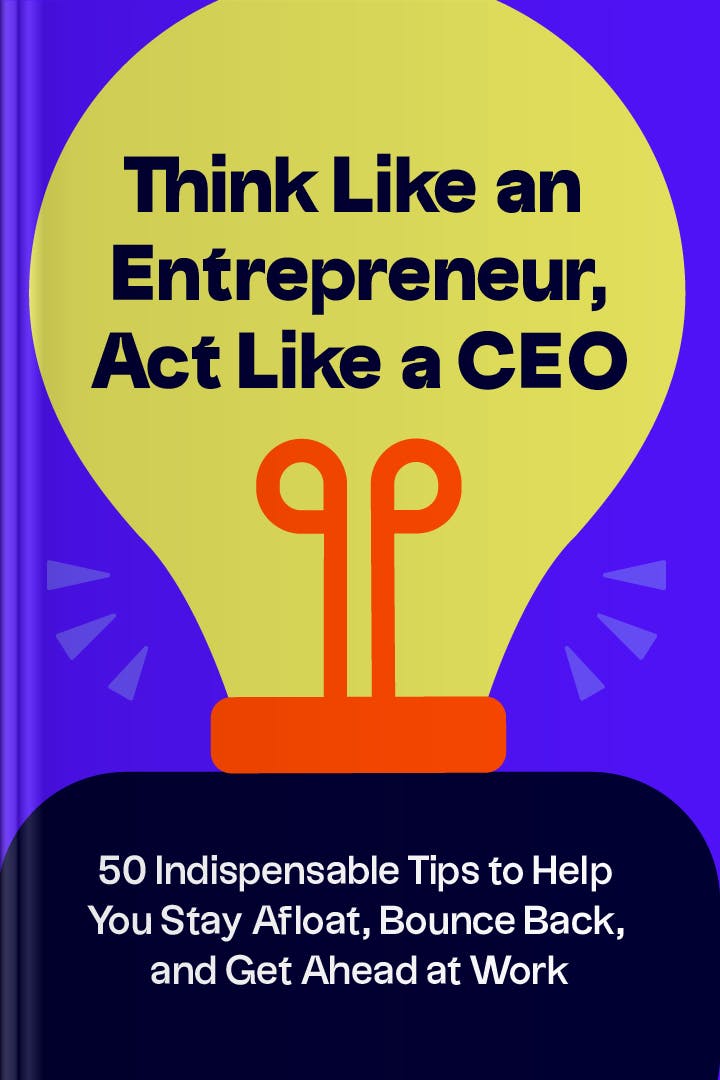
Think Like an Entrepreneur, Act Like a CEO
by Beverly E. Jones
What is Think Like an Entrepreneur, Act Like a CEO about?
This book offers 50 essential tips to help individuals thrive in their professional lives. It combines the mindset of an entrepreneur with the strategic actions of a CEO, providing practical advice on how to navigate challenges, adapt to change, and achieve success in the workplace. With insights from various industries and real-life examples, this guide equips readers with the tools they need to stay afloat, bounce back from setbacks, and excel in their careers.
Who should read Think Like an Entrepreneur, Act Like a CEO
Aspiring entrepreneurs seeking practical advice for success in business.
Professionals looking to enhance their leadership skills and mindset.
Individuals facing career challenges and seeking strategies for advancement.
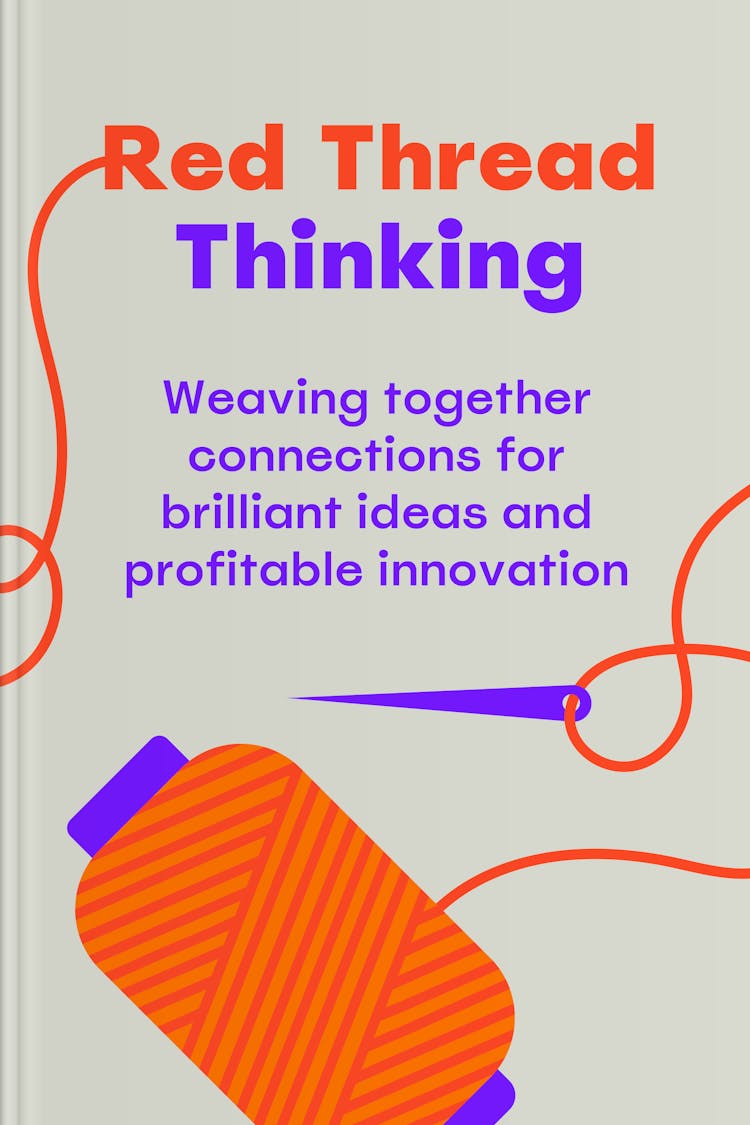
Red Thread Thinking
by Debra Kaye with Karen Kelly
What is Red Thread Thinking about?
"Red Thread Thinking" explores the power of making connections to generate innovative ideas and drive profitable innovation. Written by Debra Kaye with Karen Kelly, this book delves into the concept of the "red thread," a metaphor for the invisible link that connects seemingly unrelated ideas, people, and experiences. Through real-life examples and practical strategies, the authors guide readers on how to cultivate this mindset and apply it to their own creative processes, ultimately leading to breakthrough ideas and business success.
Who should read Red Thread Thinking
Creative thinkers looking to enhance their problem-solving skills.
Individuals interested in understanding the power of connections in innovation.
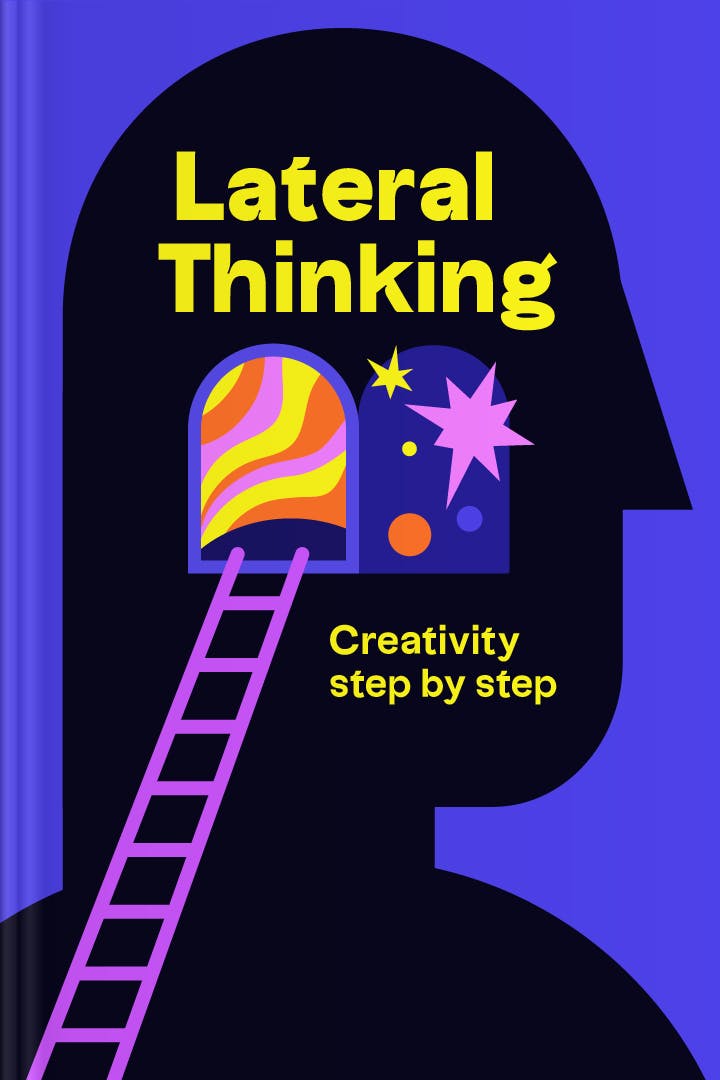
Lateral Thinking
by Edward de Bono, Dr.
What is Lateral Thinking about?
In this insightful guide, the author explores the concept of lateral thinking and provides practical techniques to enhance creativity. Edward de Bono encourages readers to break free from traditional thought patterns and embrace a more innovative approach to problem-solving. With step-by-step instructions and engaging examples, this book offers valuable tools to unlock one's creative potential and think outside the box. A must-read for those seeking to cultivate their creativity and find fresh solutions to challenges.
Who should read Lateral Thinking
Aspiring artists and designers seeking to enhance their creative process.
Business professionals looking to develop innovative problem-solving skills.
Educators and trainers interested in fostering critical thinking abilities.
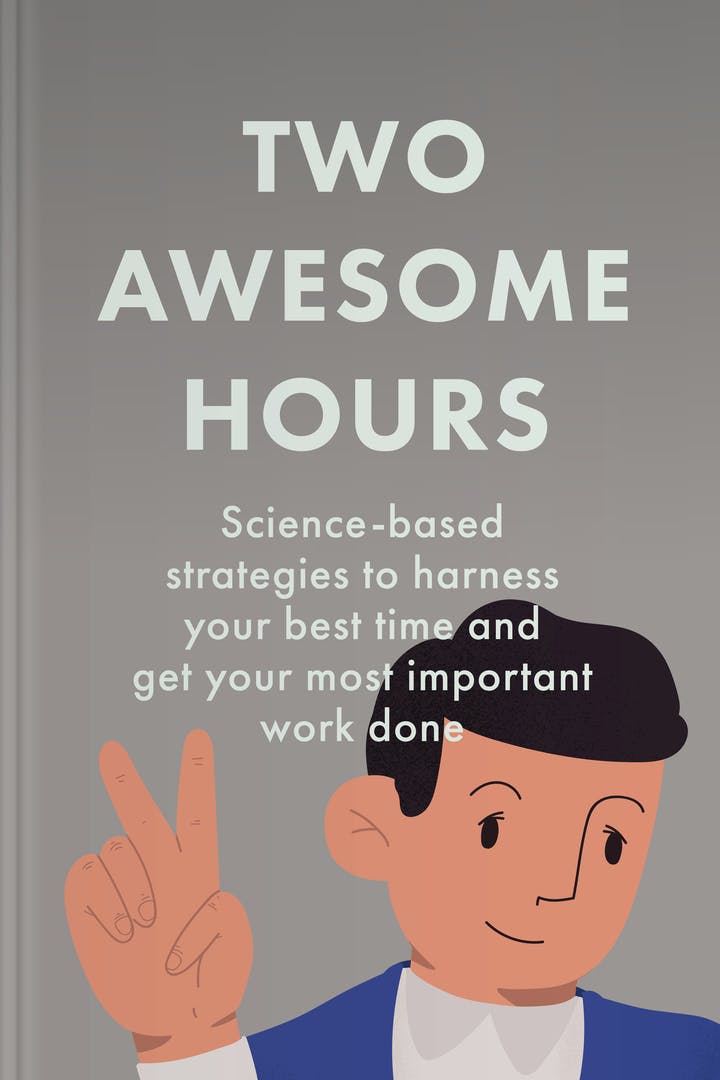
Two Awesome Hours
by Josh Davis
What is Two Awesome Hours about?
In this insightful book, the author shares science-backed techniques to help readers optimize their productivity and achieve their goals. By understanding the brain's natural rhythms and learning how to manage distractions, readers will discover how to make the most of their two most productive hours each day. With practical strategies and actionable advice, this book empowers individuals to harness their best time and accomplish their most important work.
Who should read Two Awesome Hours
Busy professionals seeking science-backed techniques to maximize productivity.
Students looking for effective strategies to improve focus and study.
Individuals struggling with time management and seeking practical solutions.
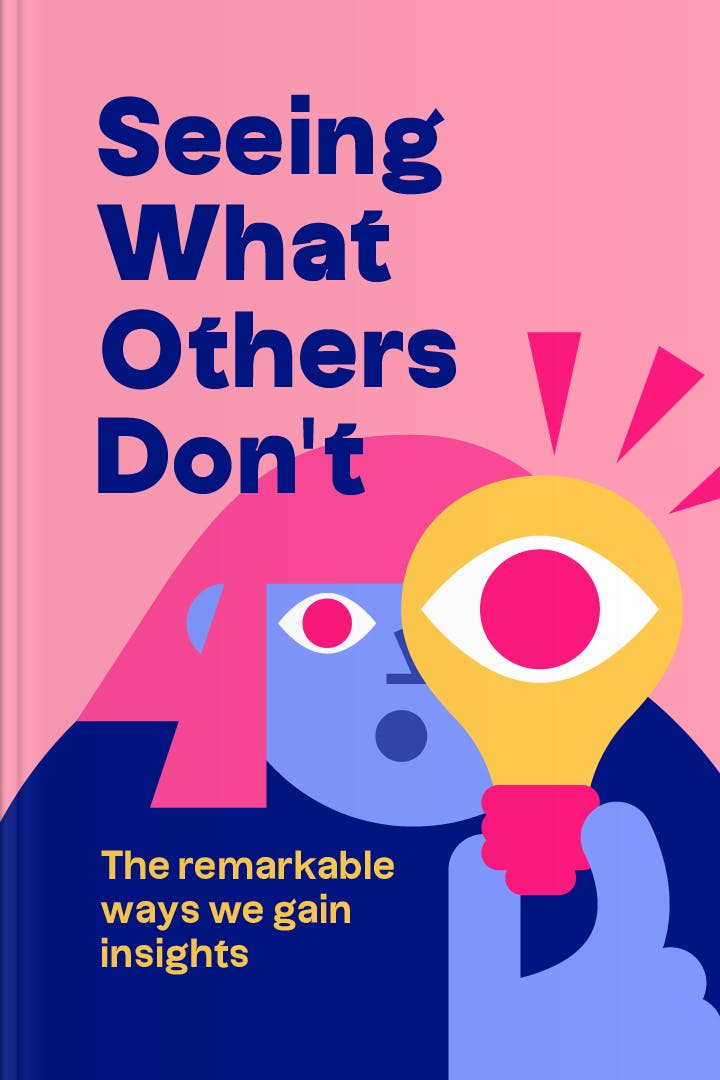
Seeing What Others Don’t
by Dr. Gary Klein
What is Seeing What Others Don’t about?
In "Seeing What Others Don't," Dr. Gary Klein explores the fascinating world of insights and how they are formed. Through captivating stories and research, he delves into the minds of experts from various fields to uncover the hidden processes behind their remarkable ability to gain insights. This thought-provoking book offers valuable insights into how we can enhance our own ability to see what others often miss, ultimately leading to more innovative and creative thinking.
Who should read Seeing What Others Don’t
Business professionals seeking to enhance their problem-solving skills.
Researchers and psychologists interested in the science of insight.
Individuals looking to unlock their creative potential and gain new perspectives.
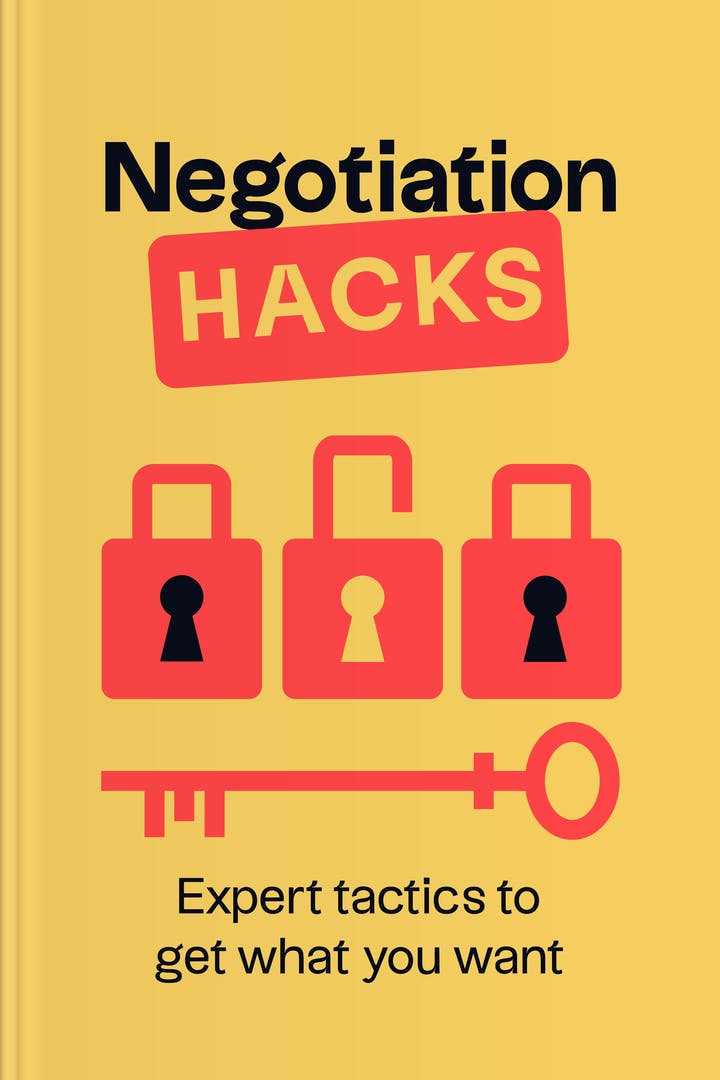
Negotiation Hacks
by Simon Rycraft
What is Negotiation Hacks about?
"Negotiation Hacks: Expert Tactics To Get What You Want" by Simon Rycraft is a comprehensive guide that equips readers with powerful strategies to master the art of negotiation. Drawing from years of experience, the author shares practical tips and techniques to help readers navigate any negotiation successfully. From understanding the psychology behind negotiations to leveraging effective communication skills, this book provides invaluable insights to empower individuals to achieve their desired outcomes in any negotiation scenario.
Who should read Negotiation Hacks
Professionals seeking to enhance their negotiation skills and strategies.
Entrepreneurs looking to gain a competitive edge in business negotiations.
Individuals wanting to improve their personal and professional relationships.
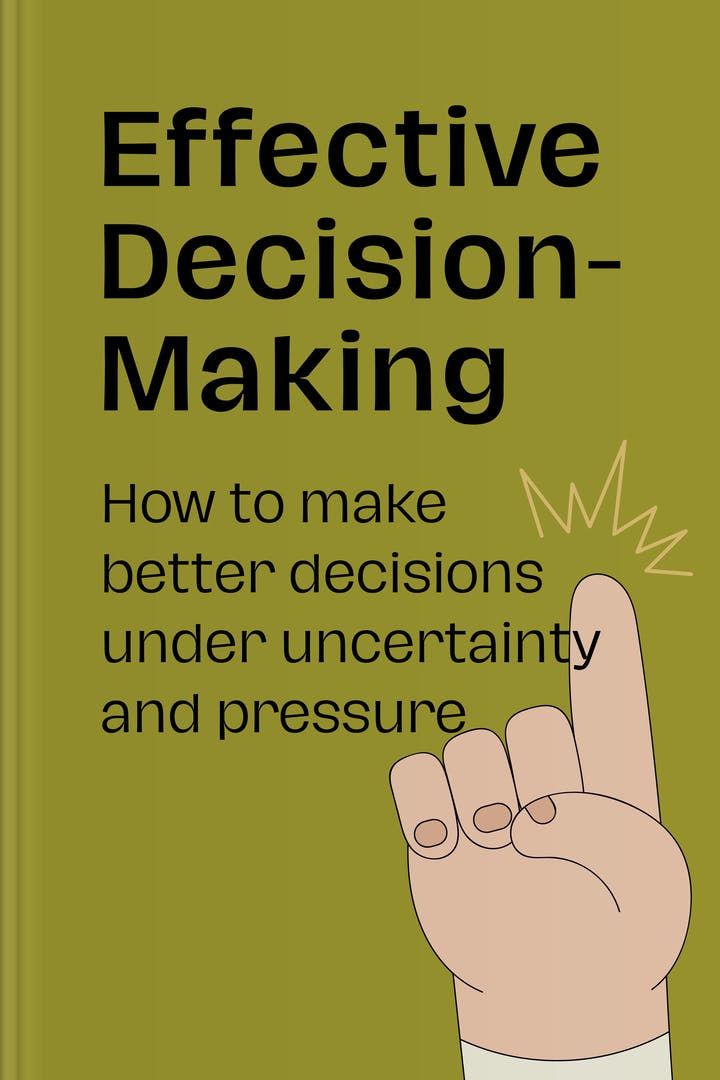
Effective Decision-Making
by Edoardo Binda Zane
What is Effective Decision-Making about?
In this insightful guide, the author explores the art of effective decision-making in challenging situations. With a focus on navigating uncertainty and pressure, the book offers practical strategies and techniques to enhance decision-making skills. Drawing from real-life examples and research, readers will gain valuable insights into analyzing risks, managing emotions, and optimizing outcomes. Whether in personal or professional life, this book equips individuals with the tools to make better decisions and thrive in uncertain environments.
Who should read Effective Decision-Making
Professionals seeking to improve their decision-making skills in high-pressure environments.
Students studying decision-making processes and strategies in uncertain situations.
Individuals looking to enhance their ability to make informed choices.
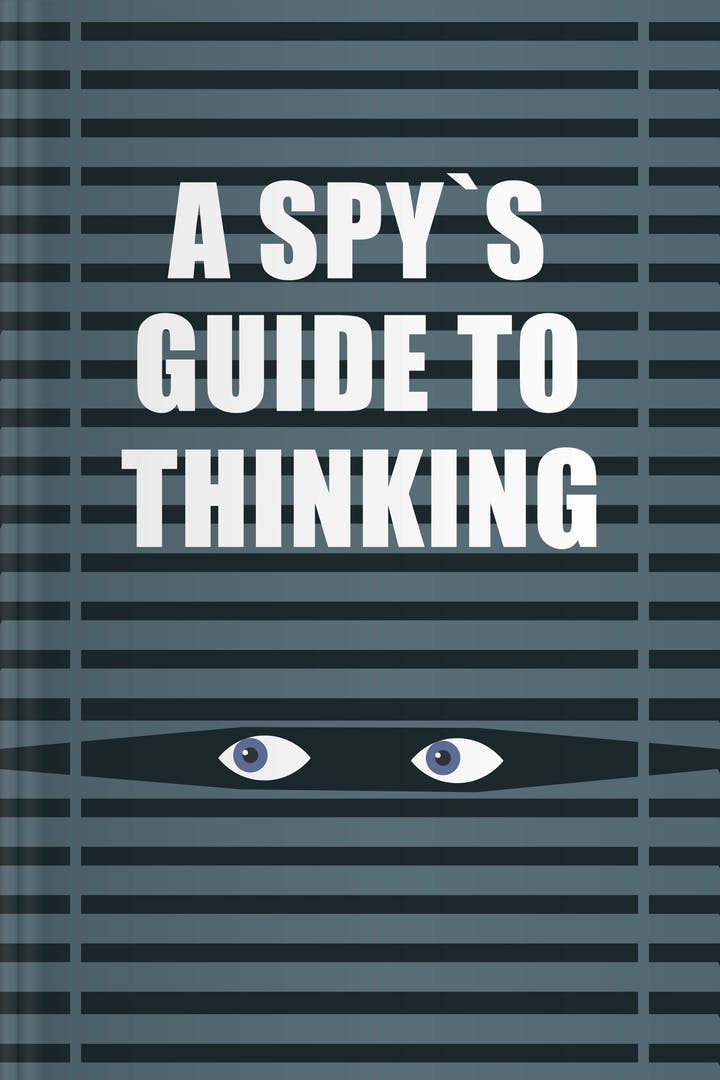
A Spy’s Guide to Thinking
by John Braddock
What is A Spy’s Guide to Thinking about?
In this insightful guide, the author, a former intelligence officer, shares his expertise on critical thinking and decision-making. Drawing from his experiences in the field, he reveals practical strategies and techniques used by spies to analyze information, assess risks, and make sound judgments. With a focus on enhancing mental agility and avoiding cognitive biases, this book equips readers with the tools to navigate complex situations and think like a spy in their everyday lives.
Who should read A Spy’s Guide to Thinking
Aspiring spies seeking to enhance their critical thinking skills.
Professionals in intelligence and espionage looking to sharpen their mental acuity.
Anyone interested in learning strategic thinking from a spy's perspective.
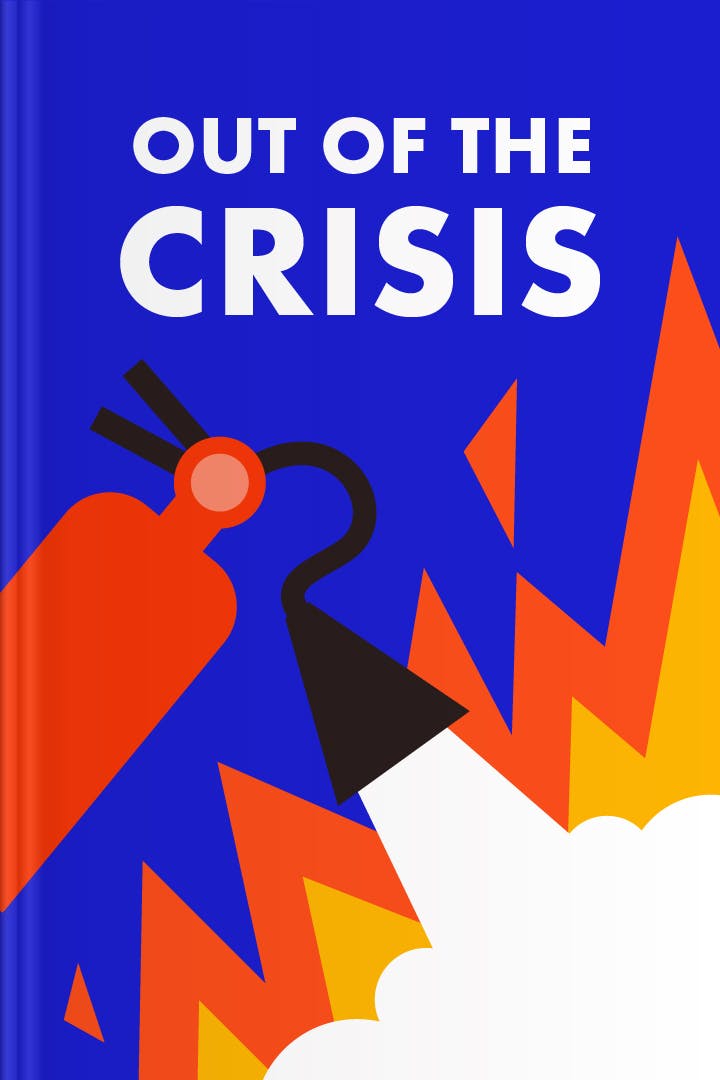
Out of the Crisis
by W. Edwards Deming
What is Out of the Crisis about?
"Out of the Crisis" is a groundbreaking book that offers a comprehensive analysis of the challenges faced by organizations and provides practical solutions to overcome them. Written by a renowned management expert, this book delves into the root causes of crises and presents a systematic approach to improve quality, productivity, and overall performance. With insightful examples and actionable strategies, it empowers leaders to transform their organizations and thrive in a rapidly changing business landscape.
Who should read Out of the Crisis
Business leaders seeking to improve organizational efficiency and productivity.
Quality control professionals aiming to implement effective management strategies.
Individuals interested in understanding the principles of continuous improvement.
Keep Reading
Start your fun and easy growth with key insights from world's bestsellers.
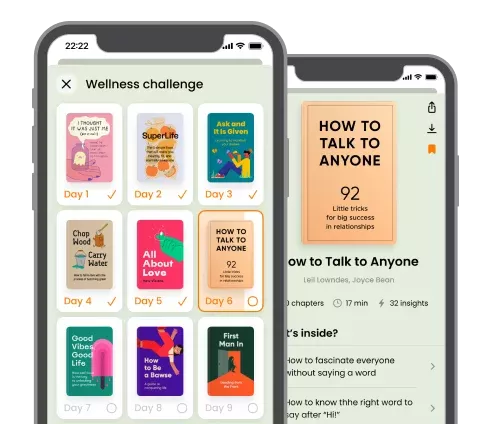

Hemingway's Books and Records
Discover Best Problem Solving Books: 20 Key Titles, 2024 Updated
Are you ready to enhance your problem-solving skills and expand your mindset? Look no further than this curated list of the 20 best books about problem solving. Whether you’re seeking practical strategies for overcoming obstacles or simply want to dive into the psychology of effective decision-making, these books have got you covered. From timeless classics to modern bestsellers, each book on problem solving offers valuable insights and actionable advice to help you navigate life’s challenges with confidence and creativity.
- 1 20 Best Books About Problem Solving
- 2 Thinking, Fast and Slow
- 3 The Lean Startup
- 4 Designing Your Life
- 5 Nudge: Improving Decisions About Health, Wealth, and Happiness
- 6 The Innovator’s Dilemma
- 7 Predictably Irrational
- 8 The Art of Thinking Clearly
- 9 Sprint: How to Solve Big Problems and Test New Ideas in Just Five Days
- 10 Crucial Conversations: Tools for Talking When Stakes Are High
- 11 The Power of Habit
- 12 Influence: The Psychology of Persuasion
- 13 The Checklist Manifesto
- 14 Originals: How Non-Conformists Move the World
- 15 The 7 Habits of Highly Effective People
- 16 Deep Work: Rules for Focused Success in a Distracted World
- 17 The Obstacle Is the Way: The Timeless Art of Turning Trials into Triumph
- 18 Thinking in Systems: A Primer
- 19 The Upside of Stress: Why Stress Is Good for You, and How to Get Good at It
- 20 The Four Steps to the Epiphany
- 21 Think Like a Programmer: An Introduction to Creative Problem Solving
- 22 Conclusion
20 Best Books About Problem Solving

See Best Deals
Thinking, Fast and Slow
By daniel kahneman.
Thinking, Fast and Slow by Daniel Kahneman is a captivating exploration of the human mind and decision-making processes. This thought-provoking book delves into the two systems that drive the way we think: the fast, intuitive, and emotional system, and the slow, deliberate, and logical system. With engaging anecdotes and groundbreaking research, Kahneman reveals the cognitive biases and errors that affect our judgment and decision making. Through this illuminating journey, readers gain a deeper understanding of how we make choices and the mental shortcuts we often rely on. This is not just a book about problem solving; it’s a profound exploration of the complexities of the human mind and offers valuable insights for decision-makers, leaders, and anyone interested in understanding the intricacies of human cognition.
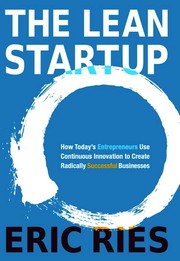
The Lean Startup
By eric ries.
The Lean Startup by Eric Ries is a groundbreaking book on problem solving for entrepreneurs and innovators. Ries introduces the concept of the lean startup, which focuses on creating a sustainable business by continuously testing and iterating ideas to find the most effective solution to a problem. This book provides a practical framework for building successful startups by emphasizing the importance of validating ideas through experimentation and customer feedback. Ries shares actionable insights and real-life examples to help readers understand how to apply lean principles to their own ventures. Whether you’re a startup founder or a corporate innovator, this problem solving book offers valuable strategies for building and growing a business in a rapidly changing world.
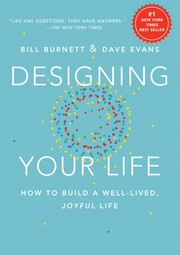
Designing Your Life
By bill burnett and dave evans.
Designing Your Life by Bill Burnett and Dave Evans is a book on problem solving that offers a fresh approach to finding fulfillment and purpose in life. The authors, both design experts, apply design thinking principles to help readers create a life that is meaningful and fulfilling. With practical exercises and tools, they guide readers through the process of exploring different career paths, identifying core values, and designing a life that aligns with their passions and strengths. This problem solving book encourages readers to adopt a mindset of curiosity, experimentation, and iteration as they navigate life’s challenges and opportunities. Whether you are feeling stuck in your career or seeking more meaning in your life, this book about problem solving provides a roadmap for designing a life that is both personally and professionally rewarding.
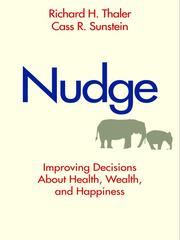
Nudge: Improving Decisions About Health, Wealth, and Happiness
By richard h. thaler and cass r. sunstein.
Nudge: Improving Decisions About Health, Wealth, and Happiness is a groundbreaking book about problem solving by Richard H. Thaler and Cass R. Sunstein. The authors explore how small changes, or “nudges,” can have a big impact on the decisions people make in their everyday lives. Drawing on insights from behavioral economics, psychology, and neuroscience, the book offers practical strategies for improving decision-making in areas such as personal finance, health, and public policy. Thaler and Sunstein argue that by understanding human behavior and designing choice architecture accordingly, individuals and organizations can nudge people towards making better choices without restricting their freedom. With its engaging writing style and thought-provoking ideas, Nudge is a must-read for anyone interested in understanding and improving decision-making.

The Innovator’s Dilemma
By clayton m. christensen.
The Innovator’s Dilemma by Clayton M. Christensen is a thought-provoking book on problem solving that delves into the challenges faced by established companies when disruptive technologies emerge. Christensen argues that successful companies can actually fail by listening to their customers too much and not innovating enough. He introduces the concept of “disruptive innovation,” where smaller companies with limited resources can outmaneuver larger, more established companies by targeting overlooked markets. The book offers valuable insights into how companies can navigate the delicate balance between sustaining their current business and fostering innovation for future success. With its compelling case studies and actionable strategies, this problem solving book is a must-read for anyone interested in understanding the dynamics of innovation and staying ahead of the competition.

Predictably Irrational
By dan ariely.
Predictably Irrational by Dan Ariely is a captivating and enlightening book about the fascinating ways our minds work when making decisions. Through engaging storytelling and insightful research, Ariely explores the hidden forces that shape our behavior and decision-making processes. This thought-provoking book delves into the world of behavioral economics, revealing how our irrational tendencies influence our choices, from everyday purchases to major life decisions. With a keen focus on understanding the irrationality in human decision-making, Predictably Irrational offers valuable insights for anyone seeking to comprehend the complexities of human behavior. This book on problem solving challenges readers to reevaluate their perceptions and thought processes, providing a fresh perspective on the intricacies of decision-making. Whether you’re a psychology enthusiast or simply curious about the quirks of human nature, this problem-solving book is a must-read for those eager to unravel the mysteries of our minds.
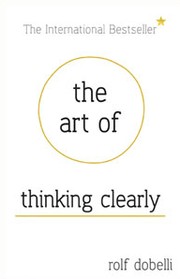
The Art of Thinking Clearly
By rolf dobelli.
The Art of Thinking Clearly by Rolf Dobelli is a insightful book on problem solving that delves into the common cognitive biases and errors that affect our decision-making process. Dobelli presents 99 short chapters, each focusing on a specific thinking error, such as the confirmation bias and the sunk cost fallacy. Through engaging examples and clear explanations, the book offers practical strategies for identifying and overcoming these mental pitfalls, enabling readers to make better decisions in both their personal and professional lives. Whether you’re a seasoned problem solver or just looking to improve your critical thinking skills, this problem solving book provides valuable insights that can help you navigate the complexities of everyday decision making.
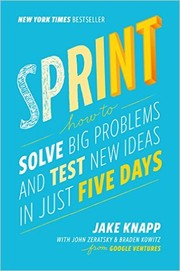
Sprint: How to Solve Big Problems and Test New Ideas in Just Five Days
By jake knapp, john zeratsky, and braden kowitz.
Sprint: How to Solve Big Problems and Test New Ideas in Just Five Days is a game-changing book on problem solving that introduces the concept of the sprint—a five-day process for answering crucial business questions through design, prototyping, and testing ideas with customers. Written by Jake Knapp, John Zeratsky, and Braden Kowitz, this book about problem solving presents a practical guide to tackling tough challenges and making significant progress in a short amount of time. With real-world examples and actionable insights, the authors demonstrate how sprints can help teams to streamline decision-making, save time, and avoid the endless cycle of debate and discussion. Whether you’re a startup founder, product manager, or business leader, this problem-solving book offers a refreshing approach to innovation and problem-solving that can transform the way you work.
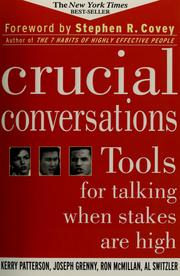
Crucial Conversations: Tools for Talking When Stakes Are High
By kerry patterson, joseph grenny, ron mcmillan, and al switzler.
Crucial Conversations: Tools for Talking When Stakes Are High is a book about problem solving that offers practical strategies for handling high-stakes conversations. Authors Kerry Patterson, Joseph Grenny, Ron McMillan, and Al Switzler provide readers with the tools to navigate difficult discussions in a variety of settings, from the workplace to personal relationships. The book emphasizes the importance of open dialogue and teaches readers how to communicate effectively when faced with tough decisions or conflicts. With real-life examples and actionable advice, Crucial Conversations is a valuable resource for anyone looking to improve their problem-solving skills and build stronger connections through meaningful conversations.

The Power of Habit
By charles duhigg.
The Power of Habit by Charles Duhigg is a captivating exploration of the science behind habits and how they can be changed. Duhigg delves into the neurological processes that drive habits and the impact they have on our lives, both personally and professionally. The book provides real-life examples and case studies to illustrate how habits can be transformed, offering valuable insights into the power of habit formation and change. This book is a valuable resource for anyone seeking to understand the psychology of behavior and how to break free from negative patterns. Whether you’re looking for a book about problem solving, or simply want to gain a deeper understanding of human behavior, The Power of Habit offers practical strategies and compelling stories that will inspire personal growth and transformation.
Recommended for you:

Influence: The Psychology of Persuasion
By robert b. cialdini.
Influence: The Psychology of Persuasion by Robert B. Cialdini is a captivating book on problem solving that delves into the art of influence and the psychology behind persuasion. Cialdini explores the six universal principles of influence, including reciprocity, commitment, social proof, authority, liking, and scarcity. Through engaging storytelling and real-life examples, he uncovers the powerful techniques used by marketers, salespeople, and con artists to sway our decisions and behavior. This insightful book about problem solving sheds light on how we can become more aware of these tactics and make better choices in our personal and professional lives. Whether you’re a business professional, marketer, or simply curious about human behavior, Influence offers valuable insights into the science of persuasion and problem solving book.
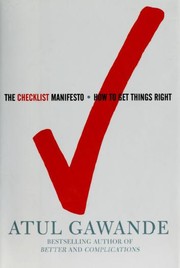
The Checklist Manifesto
By atul gawande.
The Checklist Manifesto by Atul Gawande is a compelling book on problem solving that explores the power of using simple checklists to tackle complex tasks. Gawande, a prominent surgeon and writer, shares gripping stories from various industries, from aviation to construction, to illustrate how checklists can prevent failures and improve performance. He argues that in our increasingly complex world, checklists provide a practical and effective tool for managing the intricacies of modern life. By breaking down tasks into manageable steps, checklists help individuals and organizations to avoid costly mistakes and achieve better outcomes. This problem solving book is a thought-provoking and engaging read that challenges the notion of expertise and highlights the value of a structured approach in tackling challenges.

Originals: How Non-Conformists Move the World
By adam grant.
Originals: How Non-Conformists Move the World by Adam Grant is a captivating book about problem solving that challenges the status quo and encourages readers to think differently. Grant explores the traits and habits of original thinkers and innovators, shedding light on how they navigate challenges and bring about change in the world. Through engaging storytelling and insightful research, the book offers valuable lessons on creativity, risk-taking, and resilience, inspiring readers to embrace their own unique ideas and make a positive impact. Originals is a thought-provoking problem-solving book that provides practical strategies for breaking free from conventional thinking and finding innovative solutions to complex problems. Whether you’re an entrepreneur, a leader, or simply someone looking to make a difference, this book will empower you to unleash your creativity and drive positive change.

The 7 Habits of Highly Effective People
By stephen r. covey.
The 7 Habits of Highly Effective People by Stephen R. Covey is a renowned book about problem solving and personal development. Covey presents a holistic approach to problem solving, focusing on the principles that govern human effectiveness. The book outlines seven habits that can transform one’s life, from being proactive and taking responsibility for one’s actions to prioritizing and seeking to understand others before being understood. Covey’s timeless wisdom has helped millions of people improve their personal and professional lives by shifting their mindset and behavior. Through real-life examples and practical advice, this problem solving book offers a roadmap for personal growth and success. Whether you’re looking to enhance your problem-solving skills, build better relationships, or achieve your goals, The 7 Habits of Highly Effective People provides valuable insights and strategies for becoming more effective in every aspect of life.
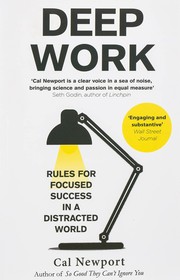
Deep Work: Rules for Focused Success in a Distracted World
By cal newport.
Deep Work: Rules for Focused Success in a Distracted World by Cal Newport is a captivating book on problem solving that explores the concept of deep work, which refers to the ability to focus without distraction on a cognitively demanding task. Newport argues that in today’s hyper-connected world, the ability to perform deep work is becoming increasingly rare yet increasingly valuable. He presents a set of rules and strategies to help readers cultivate deep work habits and achieve concentrated success in their professional and personal lives. Through compelling examples and actionable advice, Newport demonstrates how deep work can lead to profound productivity, intellectual fulfillment, and a competitive edge in the modern workplace. This problem solving book is a must-read for anyone seeking to regain control of their attention and achieve meaningful results in a world filled with distractions.
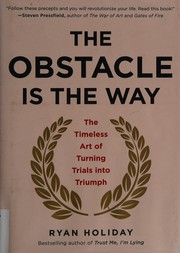
The Obstacle Is the Way: The Timeless Art of Turning Trials into Triumph
By ryan holiday.
The Obstacle Is the Way by Ryan Holiday is a powerful book on problem solving that draws inspiration from the ancient philosophy of Stoicism. Holiday presents a timeless approach to turning trials into triumph by embracing obstacles and using them to our advantage. Through engaging storytelling and insightful analysis of historical figures, he illustrates how individuals throughout history have used adversity as a catalyst for growth and success. The book about problem solving provides practical strategies for overcoming challenges, reframing obstacles as opportunities, and developing resilience in the face of adversity. It offers a fresh perspective on problem solving and empowers readers to adopt a mindset that transforms obstacles into stepping stones for personal and professional growth. The Obstacle Is the Way is a must-read for anyone seeking to develop a more effective approach to problem solving and navigate life’s challenges with strength and wisdom.
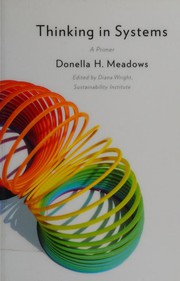
Thinking in Systems: A Primer
By donella h. meadows.
Thinking in Systems: A Primer by Donella H. Meadows is a groundbreaking book about problem solving that introduces readers to the world of systems thinking. Meadows provides an accessible introduction to the concepts and tools of systems thinking, offering a fresh perspective on how to analyze and solve complex problems. Through real-world examples and engaging storytelling, she demonstrates how systems thinking can be applied to a wide range of issues, from environmental sustainability to business management. This problem-solving book encourages readers to consider the interconnectedness of systems and the unintended consequences of our actions, empowering them to navigate the complexities of the modern world with clarity and insight. Thinking in Systems is an essential read for anyone seeking to enhance their problem-solving skills and make a positive impact in their personal and professional lives.

The Upside of Stress: Why Stress Is Good for You, and How to Get Good at It
By kelly mcgonigal.
The Upside of Stress by Kelly McGonigal is a groundbreaking book about problem solving that challenges the traditional view of stress as purely negative. McGonigal argues that stress can be beneficial and even necessary for growth and resilience. Drawing on cutting-edge research, she explores how stress can enhance performance, strengthen relationships, and promote personal development. The book provides practical strategies for harnessing the power of stress, including mindset shifts, self-care practices, and social support. Through compelling stories and scientific evidence, McGonigal shows readers how to embrace stress as a tool for problem solving and personal growth, rather than something to be avoided at all costs. This book about problem solving will change the way you think about stress and empower you to navigate life’s challenges with confidence and resilience.
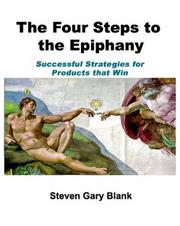
The Four Steps to the Epiphany
By steve blank.
The Four Steps to the Epiphany by Steve Blank is a groundbreaking book on problem solving for entrepreneurs. Blank introduces a customer development process that helps startups and new businesses avoid common pitfalls by focusing on discovering and solving customer problems. This problem solving book provides a step-by-step guide to understanding customer needs, developing a scalable business model, and effectively bringing a product to market. Blank’s approach emphasizes the importance of customer feedback and iteration, providing a framework for entrepreneurs to test and validate their business ideas. The Four Steps to the Epiphany is a must-read for anyone looking to build a successful, customer-centric business and is a valuable resource for anyone seeking to understand the intricacies of launching a new venture.
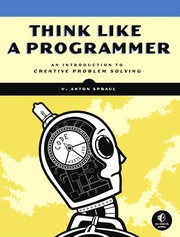
Think Like a Programmer: An Introduction to Creative Problem Solving
By v. anton spraul.
Think Like a Programmer: An Introduction to Creative Problem Solving by V. Anton Spraul is a captivating book on problem solving that teaches readers how to approach complex programming challenges with a creative mindset. Through practical examples and exercises, the author guides readers through the process of breaking down problems, analyzing requirements, and designing efficient solutions. With a focus on developing problem-solving skills, this problem solving book equips readers with the tools and techniques needed to tackle real-world programming problems. Whether you’re a beginner or an experienced programmer looking to enhance your problem-solving abilities, this book provides valuable insights and strategies to help you think like a programmer and master the art of creative problem solving.
Problem Solving is an essential skill in both personal and professional life. The 20 best books about problem solving provide valuable insights and practical strategies for overcoming challenges and finding innovative solutions. Whether you’re looking to enhance your critical thinking abilities or improve your decision-making skills, these books offer valuable guidance and inspiration. By delving into the pages of these books, you’ll gain a deeper understanding of problem solving and equip yourself with the tools to tackle any obstacle that comes your way.
Which Problem Solving book is best?
The best book on Problem Solving can vary with personal preference, but three widely recommended titles are:
- Thinking, Fast and Slow by Daniel Kahneman ,
- The Lean Startup by Eric Ries ,
- Designing Your Life by Bill Burnett and Dave Evans .
Each offers valuable insights and could be a great starting point.
What are the best books to learn about Problem Solving?
For those looking to learn about Problem Solving, there is a wealth of literature that can provide a comprehensive understanding of the subject. Some of the most highly recommended books include:
- Designing Your Life by Bill Burnett and Dave Evans ,
- Nudge: Improving Decisions About Health, Wealth, and Happiness by Richard H. Thaler and Cass R. Sunstein ,
- The Innovator’s Dilemma by Clayton M. Christensen ,
- Predictably Irrational by Dan Ariely ,
- The Art of Thinking Clearly by Rolf Dobelli ,
- Sprint: How to Solve Big Problems and Test New Ideas in Just Five Days by Jake Knapp, John Zeratsky, and Braden Kowitz ,
- Crucial Conversations: Tools for Talking When Stakes Are High by Kerry Patterson, Joseph Grenny, Ron McMillan, and Al Switzler ,
- The Power of Habit by Charles Duhigg
These books offer a range of perspectives on Problem Solving, covering various aspects and approaches to the subject.
What are the best books on Problem Solving?
The best books on Problem Solving include:
- Influence: The Psychology of Persuasion by Robert B. Cialdini ,
- The Checklist Manifesto by Atul Gawande ,
- Predictably Irrational by Dan Ariely .
Each offers unique insights into the subject. While these books on the topic of Problem Solving are highly regarded, it’s important to note that any list of ‘best’ books is subjective and reflects a range of opinions.
What are the best Problem Solving books of all time?
Choosing the best Problem Solving books of all time can vary depending on who you ask, but seven titles that are often celebrated include
- The Power of Habit by Charles Duhigg ,
- and Influence: The Psychology of Persuasion by Robert B. Cialdini .
Each of these books has made a significant impact in the field of Problem Solving and continues to be influential today.
Related posts:

The 5 Best Books on Problem Solving (in 2024)

If you are looking for the best books on problem-solving, you’ve come to the right place.
In this article, we will cover the top 5 books on problem-solving that you can use to help you solve problems faster, easier, and better. I have personally read each one and recommend them.
The 5 Best Books on Problem-Solving
1. stop guessing: the 9 behaviors of great problem solvers by nat greene.

Stop Guessing teaches 9 main actions you need to take when solving problems. It doesn’t teach a problem-solving “method”, but steps you need to take to be able to solve the right problem and solve it well.
The 9 behaviors/actions are:
- Stop guessing
- Smell the problem
- Embrace your ignorance
- Know what problem you’re solving
- Dig into the fundamentals
- Don’t rely on experts
- Believe in a simple solution
- Make fact-based decisions
- Stay on target
I personally enjoyed this book and found it very informative. If you aren’t necessarily looking for a method but the steps you need to take to solve problems more effectively, this book is for you.
You can get it on Amazon here .
(Note: The links for Amazon are affiliate links. Thanks!)
Read More: The 5 Best Books on Decision Making
2. Think Smarter: Critical Thinking to Improve Problem-Solving and Decision-Making Skills by Michael Kallet

As the title says, Think Smarter is about using critical thinking to improve your problem-solving and decision-making .
What sometimes hurts us in our problem-solving is that we don’t really take the time to think critically. Kallet gives 3 main steps for solving problems and making a decision:
- Conclusions
If you want to learn more about critical thinking when it comes to problem-solving and steps to take to really clarify your problem and come to better conclusions, and ultimately decisions, this is a good book for you.
3. Problem Solving 101: A Simple Book for Smart People by Ken Watanabe

Problem Solving 101 is a neat little book on problem-solving. It was originally meant for a younger audience, but it has taken widespread appeal to all ages for people who want to solve problems better.
In the book, through some simple examples, Watanabe teaches how to find the root cause, how to set and test hypotheses, how to make better choices, how to use a logic tree, and more.
If you want a simple, easy book on problem-solving for yourself and/or your kids, this one is for you.
4. The Thinker’s Toolkit: 14 Powerful Techniques for Problem-Solving by Morgan D. Jones

In The Thinkers Toolkit , the author gives detailed information on methods you can use to solve problems better and make better decisions.
Too often we use “trial and error” to try to solve problems, and that is incredibly ineffective. Jones teaches about the errors we often have when solving problems, how our brain sometimes works against us, and 14 techniques we can use to solve our problems better.
If you want a detailed guide on how we often do it wrong and the different methods you can use to solve problems better, this book is for you.
You can get it on Amazon here.
5. Systematic Problem-Solving and Decision-Making by Sandy Pokras

Systematic Problem-Solving and Decision-Making is an old book (published in 1989); however, it is still chock full of great information.
In the book, Pokras goes over, step by step, the steps you can take in your organization to solve problems.
She discusses not only the steps to do it but how to do it together as a group so that everyone is on board with what the problem is and how to solve it.
There are 6 main steps she recommends that she dives into:
- Step 1: Problem recognition
- Step 2: Problem Labeling
- Step 3: Problem-Cause Analysis
- Step 4: Optional Solutions
- Step 5: Decision Making
- Step 6: Action Planning
If you are looking for a step-by-step guide on how to solve problems within an organization (and even by yourself), this book is a great resource.
Why Not?: How to Use Everyday Ingenuity to Solve Problems Big And Small by Barry Nalebuff and Ian Ayres

Why Not? is, as the title suggests, how to use everyday ingenuity to solve problems.
The authors dive into different methods and tools you can use to help solve problems, including:
- Asking what Croesus would do
- Feeling others pain
- Looking where else it would work
- And flipping it
You can get the book here on Amazon .
Which decision-making book will you choose?
We’ve covered 5…err..6 books on problem-solving. I personally have read each one and recommend them.
I’d also recommend checking out books on decision-making , as the topics are intertwined and related.
Now to you: What do you think? Have you read any of these? Are there any we are missing?
About The Author

Thomas R. Harris
Related posts, book summary: eat that frog by brian tracy.
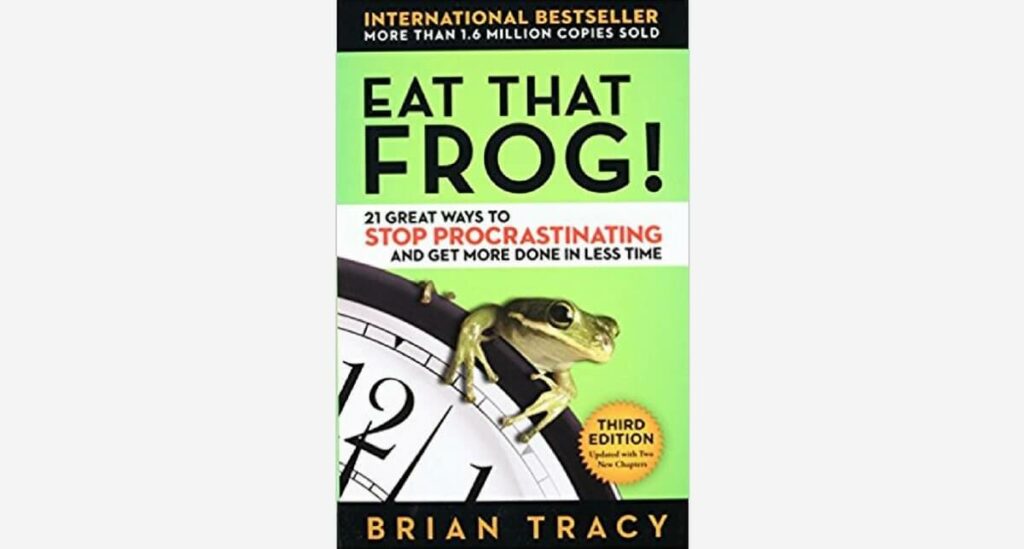
Book Summary: Time Management from the Inside Out by Julie Morgenstern

The 7 Best Time Management Books (In 2024)

Leave a Comment Cancel Reply
Your email address will not be published. Required fields are marked *
Save my name, email, and website in this browser for the next time I comment.
Quick Links
Listen on your favorite app:
Copyright © 2023 Radiant Hope, LLC | The Exceptional Skills
Start typing and press enter to search
The 11 Best Problem Solving Books
Adventurer, Tech Geek and Lover of Productivity Hacks.

Learn how you can improve your problem solving skills with this curated list of the 11 Best Problem Solving Books on the market.
Looking for new insights and best practices when it comes to coming up with proven, quality solutions to the problems we face both at home and in the workplace?
Fortunately, there are a variety of problem solving books out there that are filled from front to back with new and exciting ways to conquer the issues that we deal with on a daily basis.
Whether we like to admit it or not, problem solving skills are high in demand these days whether it’s in the workplace or in the comforts of your own home.
One thing that is for sure is that life is definitely easier when you have the skills to solve problems with ease.
The best part is that problem solving is that it’s a skill that anyone can learn.
Below, you’ll find a list of the best problem solving books that should be helpful for those interested in really diving into the art of problem solving.
Table of Contents
Best problem solving books, sprint, how to solve big problems and test new ideas in just five days, the innovator’s dilemma, switch, how to change things when change is hard, problem solving 101, seeking wisdom: from darwin to munger.
- The Art of Thinking Clearly
Mastermind: How to Think Like Sherlock Holmes
How to solve it: a new aspect of mathematical method, what do you do with a problem.
- The Art and Craft of Problem Solving
The Back of the Napkin: Solving Problems and Selling Ideas with Pictures

Author Dr. Jason Selk and Tom Bartow
Sprint offers a transformative formula for testing ideas that work whether it is for yourself or for a large corporation. The ideas that Sprint provides you are already tested and successful ones therefore you have nothing to lose giving them a try. Whenever you are feeling stuck and don’t know how to solve an issue, check out these ideas and test them out to see which one works best in your favor.

Author Clayton M. Christensen
Named one of 100 Leadership & Success Books to Read in a Lifetime by Amazon Editors, The Innovator’s Dilemma offers a different approach to problem-solving. This book helps you look at your problem from an outsider point of view. Whenever you don’t know where to go next and how to solve an issue, the best thing is stepping out of the box and seeing whatever is that you are missing to identify in order to solve it.

Authors Chip Heath and Dan Heath
Psychologists have discovered that our minds are ruled by two different systems: the rational mind and the emotional mind that compete for control. The concept of this book is using our internal “switch” and learning when to use each type of mind. Mainly, allowing ourselves to have full control on when we decide to use the emotional side and the rational side. These factors will allow you to make decisions in a more concise manner and therefore have a smarter mentality when it comes to problem-solving.

Author Ken Watanabe
Originally written to help Japanese schoolchildren learn how to be better problem solvers, this book ended in every businessman’s desk as the information was just too valuable. This book is filled with simple-to-follow case studies to illustrate different solutions to problem-solving.

Author Peter Bevelin
This book covers everything from the exact moment we come up with an idea, to the point where we are stuck and don’t know how to move on past the issue. Through a psychological point of view, the author helps us understand the way our minds evolve. He essentially leads out a misjudgment point of view to one of a better and wiser thinker.

The Art of Thinking Clearly
Author Rolf Dobelli
The Art of Thinking Clearly isn’t just another one of the best problem-solving books, but it is a guide to living a more convenient life, where every step that we take has its own action and consequence. Understanding that problem-solving comes from having an organized mind is the first place to get started when we are capable of thinking clearly, the solutions come to us in a clear manner as well.

Author Maria Konnikova
Who wouldn’t want to have the mind and the skills of problem-solving that Sherlock Holmes has? Well with this book you are able to acquire some of those astounding skills to use into your daily life. Holmes is one of the world’s most proficient problem solvers and Konnikova highlights the key characteristics that make him so effective in order for the reader to apply them.

Author George Pólya
George Pólaya uses this mathematical method to help people to think straight. Through his brilliant method he has helped a lot of people tackle their problems only by changing the way that they think. Our mind is more powerful than we know, and therefore knowing how to work our way around it might help people deal with daily life struggles.

Author by Kobi Yamada
What Do You Do with a Problem? Especially one that you can’t get rid of and can’t find a way to fix? Kobi Yamada tackles this exact scenario and offers the reader multiple ideas to deal with that one problem that seems to not go away. The key in the book is to never avoid a problem, the more we avoid dealing with one issue, the bigger it will become.

The Art and Craft of Problem Solving
Author Paul Zeitz
This text offers unique skills and solutions to approach a problem. Not only it helps to identify how to fix the problem but also to understand the problem itself. Understanding how the problem developed and when it started to become a problem for us, is important in order to avoid future conflicts. Tackling the problem is one thing, learning how to stop problems for developing is another great quality.

Author Dan Roam
Herb Kelleher was brainstorming about the traditional method we deal with problem solving and it was in this exact moment where he grabbed a bar napkin and a pen and decided to scribble what problem solving would look like. He believed that people could understand something better by looking at it, and for that reason he decided to incorporate this lesson into his book.
Used properly, a simple drawing was more demonstrative than a simple PowerPoint, but it can help crystallize ideas, think outside the box.
Did you find this list of problem solving books to be helpful? If I missed one that you recommend, please leave a comment below.
You Might Also Enjoy: Top 25 Books About Productivity & The Top 25 Productivity Blogs for 2020
Pin this graphic below to Pinterest to save for later!

The 15 Best Time Management Books
How to Rapidly Achieve Your Goals and Exceed Expectations 100% of the Time
Leave a Comment Cancel reply

Zero to Skill is a blog that helps its readers level up their lives by providing actionable advice on Entrepreneurship , Personal Development , Productivity , Self Improvement and more.
© 2024 Scribe
Enter the characters you see below
Sorry, we just need to make sure you're not a robot. For best results, please make sure your browser is accepting cookies.
Type the characters you see in this image:

The 17 Best Books on Critical Thinking (to Read in 2024)
All products were independently selected by our editors and contributors. When you buy through links on our site, we may earn an affiliate commission.
The aim of improving your skill of critical thinking isn’t just to be able to reason and give logical arguments about a subject skillfully; your goal is to get to the right answer, to make the right decisions and choices for yourself and others.
Critical thinking helps you:
First , improve the quality of your decisions and judgments, and reevaluate your beliefs objectively.
The human mind is rarely objective. However, mastering the skill of critical thinking keeps your mind objective, at least about those things based on facts.
Take for example the beliefs you have about yourself; Some are based on facts, some on subjective (negative) opinions of others.
Second , become an independent thinker (learn to think for yourself); take ownership of your values, beliefs, judgments, and decisions.
Mastering critical thinking is essential , especially in our modern times, because you must:
- Make a tone of decisions every day;
- Think and come to the right conclusion fast;
- Solve (mostly alone) your problems and issues;
- Weigh carefully facts and information you receive from the dozens of sources you have at your disposal;
- Reevaluate your strategies, beliefs, and habits periodically.
Critical thinking is a skill that you must learn; you’re not born with it. To make your journey a little easier, we’ve gathered the best critical thinking books so you can learn from the masters. Get inspired to become a critical thinker in no time!
The best books on critical thinking:
Table of Contents
1. Critical Thinking: A Beginner’s Guide to Critical Thinking, Better Decision Making, and Problem Solving – Jennifer Wilson
2. wait, what: and life’s other essential questions- james e. ryan, 3. think smarter: critical thinking to improve problem-solving and decision-making skills – michael kallet, 4. brain power: learn to improve your thinking skills – karl albrecht, 5. the art of thinking clearly – rolf dobelli, 6. being logical: a guide to good thinking – d.q. mcinerny, 7. predictably irrational, revised and expanded edition: the hidden forces that shape our decisions – dr. dan ariely, 8. a more beautiful question: the power of inquiry to spark breakthrough ideas – warren berger, 9. a rulebook for arguments – anthony weston, 10. thinking, fast and slow – daniel kahneman, 11. the organized mind: thinking straight in the age of information overload – daniel j. levitin, 12. don’t believe everything you think: the 6 basic mistakes we make in thinking – thomas e. kida, 13. the decision book: 50 models for strategic thinking – mikael krogerus, roman tschäppeler, philip earnhart, jenny piening, 14. weaponized lies: how to think critically in the post-truth era – daniel j. levitin, 15. the demon-haunted world: science as a candle in the dark paperback – carl sagan, ann druyan, 16. how to think about weird things: critical thinking for a new age – theodore schick, lewis vaughn, 17. the 5 elements of effective thinking – edward b. burger, michael starbird.
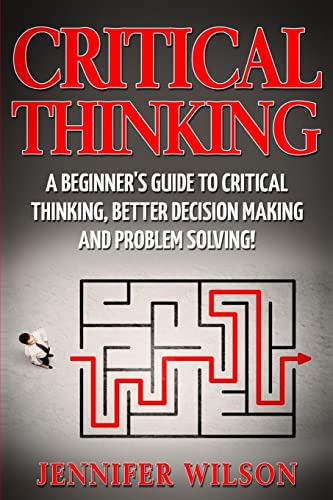
As the title says, this book introduces you to the art of critical thinking. You’ll discover in it:
- What is critical thinking in practice,
- The different thought processes of critical thinking,
- How will your life be better mastering critical thinking,
- The things your brain needs to enjoy exercising critical thinking,
- Techniques you can use for solving problems,
- How to become a better decision maker, Strategies to use in your critical thinking processes,
- Ways to make good decisions when more people (not just you) are involved,
- Tips to frame your questions in order to maximize the efficiency of your critical thinking.

Wisdom comes from observation, learning, practice, and asking the right questions.
Using examples from history, politics, and his own personal life, James e Ryan shows you the importance of knowing how to:
- Ask questions and gain a better understanding,
- Get to be more curious,
- Push yourself to take action,
- Make your relationship stronger,
- And stay focused on the important things in life.
Related: Critical Thinking Examples
The book starts with the five fundamental questions:
- Couldn’t we at least…?
- How can I help…?
- What truly matters….?
Knowing how to formulate, address, and deliver the right questions doesn’t leave room for misunderstandings, misinterpretations; asking the wrong questions will most probably give you a wrong answer.
This book (Wait, What?: And Life’s Other Essential Questions) will make you feel (more) courageous; after all, asking questions thanks courage. Asking yourself and others the right questions helps you make informed decisions and decisive action.

This book is a guide on how to train your brain to work even more for you. The author (Michael Kallet) is a critical thinking trainer and coach and gives you a practical set of tools and techniques for critical thinking in your day-to-day life and business.
If you want a clear, actionable step by step program to:
- Improve your critical thinking skills,
- A better understanding of complex problems and concepts,
- And how to put them in practice, then this book is for you.
Learn how to discover the real issues that need a solution, so you don’t waste your time in trying to solve imaginary problems. Increase your mental toughness, useful and productive thought.

In this book, Karl Albrecht shows you how to:
- Build your mental strength,
- Think more clearly logically and creative,
- Improve your memory,
- Solve problems,
- Make decisions more effectively.
Karl Albrecht talks in this book about the six functional abilities you need to have and become more adaptable and an innovative thinker.
The book is packed with practical exercises, fascinating illustrations, games, and puzzles to improve your mental capabilities.

The art of thinking Clearly by Rolf Dobelli is a window into human psychology and reasoning; how we:
- Make decisions;
- Evaluate choices and options;
- Develop cognitive biases.
This book helps you notice and recognize erroneous thinking and make better choices and decisions, change unwanted behaviors and habits.
It will change the way you think about yourself and life in general because you have in this book 99 short chapters with examples of the most common errors of judgment and how to rectify them.
If you wish to think more clearly, make better decisions and choices, reevaluate your biases, and feel better about yourself, this book is for you.

When you decide you want to study the field of logic more closely and improve your critical thinking, this book might be exactly what you need. It’s written clearly and concisely laying out for you the basic building blocks of logic and critical thinking.
The ancient civilizations understood better than us how important is to study logic and rhetoric. With the help of this book, you’ll bring back into your life these essential things that our modern society forgot and missed to teach you as a child.
Having increased logical thinking doesn’t mean to ignore your emotions. It means to start from your emotions and together, (emotions and logic) to take better decisions and see more clearly your choices to move forward in life.

“Predictably Irrational, The Hidden Forces That Shape Our Decisions” is a book packed with examples of how:
- Irrational are our choices;
- We make decisions on impulse;
- We fool ourselves with optimism- “that must work for me.”
The author presents you, in this book, a large number of mental traps and flawed tendencies which can make your life harder.
After reading this book, you’ll be better informed about a variety of human flaws and how to avoid being trapped by irrational thinking. You’ll be better prepared to make decisions and choices based more on facts rather than subjective personal opinions.

Knowing how to ask the right questions is determining your success about many things in your life:
- Influencing others,
- Getting out of tricky situations,
- Reevaluating your beliefs,
- Offering yourself and others compassion,
- Overcoming mistakes and fears.
Warren Berger shows you in this book examples of people who are successful (partially) because they are experts in asking questions and don’t have preconceived ideas about what the answers should be.
This book helps you avoid wasting your innovative and brilliant ideas by presenting them in the same way over and over and getting nowhere over and over.
Asking yourself (and others) the right questions gives you the opportunity to display your ideas in a way that those around you feel compelled to listen.

This book is impressive because, Anthony Weston gives you a lot of excellent and practical advice, ordered in a logical and clear manner.
The examples in this book are realistic and useful, ranging from deductive to oral arguments, from argumentative essays to arguments by analogy.
Once you read this book you’ll want to have it on hand to sort out all sorts of situations you’ll encounter in your day-to-day life.

Daniel Kahneman, the author of this book, is a renowned psychologist and winner of the Nobel Prize in economics.
In this book, you will discover where you can and cannot trust your intuition; how to use the two systems that drive the way you think.
The first system is fast, intuitive, and emotional; the second system is slower, based on facts, and more logical.
The author argues that knowing how to use these two systems can make a huge difference in how you:
- Design your strategies,
- Predict consequences,
- Avoid cognitive biases,
- (and even simple things like) choosing the colors for your home office.
If you want to improve your critical thinking, know when you should use logic (instead of using emotions), and become mentally stronger this book is definitely for you.

Critical thinking can’t be created in a cluttered mind. It’s like trying to prepare a gourmet meal for your loved ones in a cramped and dysfunctional kitchen.
As if is not enough all the information you store in your mind from what you personally experience every day, our modern times forcefully adds to that information a lot of junk.
The book “The Organized Mind: Thinking Straight in the Age of Information Overload” by Daniel J. Levitin will help you sort out and organized your thoughts with the help of the four components in the human attentional system:
- Mind wandering mode;
- Central executive mode;
- Attentional filter;
- Attentional switch.
The book is showing you how you can improve your critical thinking and make better decisions concerning many areas of your life.
This book can (really) change your life if you’re dealing with procrastination, multitasking, the inability to switch off and block the outside world.
All in all, you’ll be better prepared to think straight in the age of information overload.

Thomas E. Kida talks in this book very elegantly about the six basic mistakes your thinking can make.
- The first mistake is being mesmerized by stories and ignoring the facts or statistics.
- The second mistake is searching to confirm what we already know or believe.
- The third mistake is to discount the role that chance and coincidence play in our life.
- The fourth mistake is believing that what you see it’s always the reality.
- The fifth mistake is to oversimplify things.
- The sixth mistake is to believe (trust) faulty memories.
This book can be for you an eye-opener into critical thinking, accepting who you are as you are, and improving the way you choose and make decisions.

Did you know you have a strategy for everything you do? From brushing your teeth to making new friends? From choosing a career to dealing with difficult people?
Considering you have a strategy for everything you do, it’s only logical the try to improve every day the way you develop your strategies and don’t leave it to chance, habit, or convenience.
“The Decision Book: 50 Models for Strategic Thinking” can improve your critical thinking and help you make your life easier and more enjoyable.
This book is interactive and provokes you to think about some of the strategies that don’t bring you the results you want.
It contains 58 illustrations offering summaries for known strategies such as the Rubber Band Model, the Personal Performance Model, and the Black Swan Model.
This book is for you if you want to improve the flexibility of your thinking, accept challenges more comfortable, feel more in control of your decisions and choices.

From this book, by Daniel Levitin, you’ll learn how to think critically and avoid being manipulated by things like misleading statistics and graphics, extreme view, or fake news.
The book contains three main sections:
- Evaluating numbers – how to read statistics and data to find out what lurks underneath and make a more objective analysis
- Evaluating words – how to assess the information you receive from experts, understanding the difference between incidence and prevalence, risk perceptions, and probabilistic thinking
- Evaluating the world – how to interpret scientific methods for different types of reasoning (induction, deduction, abduction)
This book will help you improve your critical thinking providing you with a lot of food for thought.
You know how in a criminal trial they call two experts that have divergent opinions on the same facts? Depending on whose side they are? This book teaches you to see the truth.

Although written in the 1990s, this bestseller book is still relevant in today’s society.
With both intelligence and compassion, Carl Sagan lays out the importance of education, logic, and science. This book will show you a ton of practical skills for assessing arguments, recognizing logical fallacies, and applying the scientific method.
Sagan felt that reason and logic could make the world a better place.

This book contains invaluable instructions on logic and reason using critical thinking, without being dull or difficult to understand.
Schick and Vaughn effectively laid out the key elements on how to assess evidence, sort through reasons, and recognize when a claim is likely to be accurate, making this book an absolute must-read for all students.
If you want to be better at decision-making based on sound evidence and argument, then this book is for you.

If you ever found yourself stuck on a problem, or having trouble in forming new ideas, this book will guide you in finding creative solutions to life’s difficult challenges.
This book emphasizes the value of effective thinking, how it can be mastered, and how to integrate it into everyday life.
How useful was this post?
Click on a star to rate it!
As you found this post useful...
Share it on social media!
We are sorry that this post was not useful for you!
Let us improve this post!
Tell us how we can improve this post?

Carmen Jacob
- Career Advice
- Job Search & Interview
- Productivity
- Public Speaking and Presentation
- Social & Interpersonal Skills
- Professional Development
- Remote Work
Eggcellent Work
10 best books on critical thinking and problem solving.
Now that you know the importance of solving problems and thinking critically, it’s time to delve into the best books on critical thinking and problem solving. These books will give you a deeper understanding of both concepts and how to use them in all aspects of your life.
What Makes a Critical Thinking Book the “Best”?
The term “best” is so broad that it could mean different things in various situations. The best book on a certain subject is one that is highly relevant to the topic, expansive and comprehensive in its details, and popular with its readers.
All the books on this list share the above-mentioned qualities. They have four to five-star ratings and positive comments on review sites and forums like Quora and Reddit. Additionally, they offer vast discussions and instructions about how to implement the recommended practices.
- The Ultimate Guide To Critical Thinking
Is Critical Thinking A Soft Skill Or Hard Skill?
- 12 Critical Thinking Interview Questions and Scenarios With Sample Answers
- How To Improve Critical Thinking Skills At Work And Make Better Decisions
- 5 Creative and Critical Thinking Examples In Workplace
12 Common Barriers To Critical Thinking (And How To Overcome Them)
- How To Promote Critical Thinking In The Workplace
- What Is The Role Of Communication In Critical Thinking?
10 of the Best Books on Critical Thinking and Problem Solving
These are 10 of the best books to develop critical thinking and problem-solving skills. You can start your journey with any one of them and become a master at the evaluative and problem-resolution processes.
Two of the title names have been shortened. You can click on the links to see the full titles of all referenced books.
1. “Critical Thinking Skills For Dummies” by John Cohen

The “dummies” books are popular with people worldwide because of their humorous way of breaking down complex topics and putting them into laymen’s terms. This particular book has a 4.5-star rating from more than 500 readers.
The book pledges to teach readers how to:
- Assess their thinking skills
- Separate facts from opinions
- Understand a writer’s position
- Read between the lines
- Use the information they collect to create solid arguments
The writer takes a solid philosophical stance in his teachings and is said to mention his unbelief in spiritual matters and deity in the text. Thus, his work might be an excellent option for readers with a solid philosophical or psychology-based stance.
2. “Master Your Mind: Critical-Thinking Exercises and Activities to Boost Brain Power and Think Smarter” by Marcel Denesi PhD

This book is suitable for people who already have a background in psychology or philosophy but need a firmer grasp on deductive reasoning, critical thinking, problem-solving, and the like. It uses puzzles, case studies, and real-world scenarios to train readers to think more critically before drawing conclusions.
The reading material has an overall rating of 4.4 out of five stars from 47 readers. Most reviewers said that the book gave them a brain boost and helped them become better thinkers. You can consider it one of the best books on critical thinking and problem solving for intermediate thinkers who want to advance their skills.
3. “Critical Thinking: This book includes: Beginner’s guide and Critical Thinking Skills” by Carl Patterson

This set includes two books that can help readers become better critical thinkers and problem solvers. One book teaches the readers to draw conclusions using logical reasoning. The second book helps people who read the first book to use deep analysis and think of effective solutions to various challenges and problems.
The book only has a one-star rating thus far, but it’s a perfect five-star rating. It might be worth taking a chance on it, as it could be one of the best critical thinking books of all time.
4. “Critical Thinking: The Basics” by Stuart Hanscomb

The above-mentioned book is perhaps one of the best critical thinking books for beginners. It teaches readers about psychology, emotions, and persuasion and how those elements affect the choices they make. It also goes into argument evaluation once it covers the basics of critical thinking.
Users rated this book 4.7 out of five stars. Positive reviewers claimed that it gave them tools they could use in their personal and work lives.
5. “Critical Thinking & Dark Psychology Secrets 101” by Pamela Hughes

The book , as mentioned above, is a unique piece that takes readers onto the dark roads of psychological manipulation and social influence so that they can understand how to make more informed decisions. Sometimes, it’s necessary to learn how things work from the other side to gain an advantage over your thought processes. Therefore, the book teaches concepts such as:
- Myth and truth recognition
- How to read other people
- The best methods to avoid being manipulated
- Tips for creative problem-solving
This book does not have many comments, but it has a five-star rating. It may be an excellent read for someone who doesn’t mind taking the risk.
6. “Bulletproof Problem Solving: The One Skill That Changes Everything” by Charles Conn

This book is a straightforward guide to performing complex strategic problem-solving in the 21st century. It provides real-world business-related issues to help readers learn to tackle them effectively, and it’s one of the best sources for successfully navigating the modern workplace.
7. “The Art of Problem Solving 101:Improve Your Critical Thinking and Decision Making Skills and Learn How to Solve Problems” by Michael Sloan

Michael Sloan’s book teaches people that they are natural problem solvers who need to learn how to fine-tune their skills and bring the best out of them themselves. It not only uses a comprehensive method to teach people to problem-solve, but it instructs individuals who have difficulty facing adversity. It’s a perfect match for people who want to learn how to survive, endure hardships, and come out on top.
Readers rated the book 4.3 out of five stars. The most common positive comments about the book were that it is concise, informational, and extremely helpful. The author has many other books on the shelf with related topics.
8. “Think Out of The Box (Power-Up Your Brain)” by Som Bathla

This hardcover book is a heavy hitter when it comes to problem-solving and decision-making. Its readers rated it 4.3 stars out of five stars and deemed it an excellent book worth the time.
By the time a new reader finishes this book, he or she is expected to know how to think faster, smarter, and more creatively. Furthermore, the reader will develop the skills to boost creativity and activate left-brain thinking. It’s a solid option for beginners as well as intermediate thinkers.
9. “Critical Thinking and Analytical Mind: The Art of Making Decisions and Solving Problems. Think Clearly, Avoid Cognitive Biases and Fallacies in Systems. Improve Listening Skills. Be a Logical Thinker” by Marcus P. Dawson

This develop m ental guide explores analytical thinking and critical thinking from a self-improvement angle. It seeks to teach its readers how to:
- Improve critical thinking skills
- Identify and resolve hindrances and self-sabotaging obstacles
- Get involved in daily essential exercises for thinking
- Apply crucial thinking to employment decisions
- Help instill critical thinking principles in children
The book has 300 pages full of readworthy knowledge for you to explore. It’s a great pick if you have the time to dedicate yourself to your studies. Satisfied readers rated it four stars out of five, and the positive reviewers adored it because of its informative approach and usefulness.
10. “Think Smarter” by Micheal Kallet

The author describes this book as a comprehensive guide to training your brain to do much more for you. It has 25 useful tools readers can use to increase their critical thinking skills and activities.
Furthermore, the book offers instructions on using those tools in real-world situations. Anyone can take the information they read and use it better for their choices and actions in different aspects of life.
Users rated this book 4.6 out of five stars, which is way above average. Its most grateful readers described it as a “game-changer” and a true source of knowledge.
How To Choose the Best Books on Critical Thinking and Problem Solving
All readers have different preferences and styles. First, you have to think about which style of reading suits you. You’ll want to grab a short book if you’re someone who doesn’t enjoy reading very much. You can also choose to purchase a book that also has an audiobook version.
Audiobooks are great for people who have limited time or limited interest in sitting in the same place to read. You can listen to these audiobooks on your way to work or whenever you lie down in bed and absorb the knowledge that way.
Then there are writing styles to think about. Do you like flowery, long-winded writers or concise authors? Do you prefer to look at pictures while you read something? You must think about all those factors before you choose a book.
The books on this list are excellent selections, but they are only the tip of the iceberg. Sift through the description to see if they meet your price range and preferences, but don’t be afraid to continue searching if you don’t see a book that piques your interest. You can learn all about problem solving and critical thinking from the best authors in the industry if you dedicate a little time to finding a book that suits you.
- Critical Thinking vs Problem Solving: What’s the Difference?
- Is Critical Thinking Overrated? Disadvantages Of Critical Thinking
- 25 In-Demand Jobs That Require Critical Thinking and Problem-Solving Skills
- Brainstorming: Techniques Used To Boost Critical Thinking and Creativity
- 11 Principles Of Critical Thinking
- How to Set Long-Term Career Plans After a PhD: 13 Actionable Tips
Jenny Palmer
Founder of Eggcellentwork.com. With over 20 years of experience in HR and various roles in corporate world, Jenny shares tips and advice to help professionals advance in their careers. Her blog is a go-to resource for anyone looking to improve their skills, land their dream job, or make a career change.
Further Reading...

9 Most Sought-After Soft Skills In The Workplace

15 Examples of Confidence in the Workplace to Unlock Success

No Comments
Leave a reply cancel reply.
Save my name, email, and website in this browser for the next time I comment.
5 Creative and Critical Thinking Examples In Workplace
Future Grow Academy
9 Problem Solving Books To Read
Dr. Ankit Sharma, PhD
March 27, 2024

Problem-solving is the compass that leads you through life, whether you’re taking on difficult tasks in your profession or career, looking for creative answers to personal problems, or just trying to improve your cognitive talents. We’ll expose you to a carefully picked collection of the top Problem Solving Books in this article.
These publications are intended to provide you with the information, tactics, and understanding required to make sound decisions and come up with original solutions for both straightforward and challenging issues. As we delve into these thought-provoking books on issue solving and discover insights from the lives of exceptional thinkers, be ready to release your inner problem solver.
Table of Contents
Popular Problem Solving Books

1. Sprint: How to Solve Big Problems and Test New Ideas in Just Five Days by Jake Knapp, John Zeratsky and Braden Kowitz
Sprint is one of the useful Problem Solving Books that exposes readers to the design sprint, a novel approach to issue resolution. Through a five-day approach, the authors—who are seasoned design partners at Google Ventures—demonstrate how to take on difficult problems and evaluate concepts.
This book is a vital tool for innovators, product managers, and entrepreneurs who want to quickly test and develop new ideas because it provides a methodical way to lead time-boxed, intense problem-solving sessions.
Every day, leaders and entrepreneurs must decide where to concentrate their efforts most effectively and how to begin. How will your concept seem in practice? How many talks and meetings are necessary before you are certain that you have the best answer?
Now there’s a tried-and-true method for answering these crucial questions: Jake Knapp at Google invented Design Sprint. By using this technique, which is similar to travelling into the future, you may see how consumers respond before devoting all of your time and resources to developing a new product, service, or marketing initiative.
Available on: Amazon, WorldCat.
- Audiobook: Free with Audible Premium.
- Kindle Edition: $14.99.
- Paperback: $18.75.
- Hardcover: $16.59.
2. Problem Solving 101: A Simple Book for Smart People by Ken Watanabe
This one of the Best Problem Solving Books provides a clear and understandable introduction to the practice of problem-solving. In this book, Watanabe simplifies difficult ideas into practical methods that work in a variety of contexts. Aimed at a wide readership, the book highlights rational analysis, unambiguous decision-making, and practical thinking.
This book is a great resource for professionals, students, and anybody looking to improve their problem-solving abilities since it provides realistic explanations and real-life examples that urge readers to improve their problem-solving abilities.
Problem Solving 101 was first written by Ken Watanabe with Japanese students in mind. With the use of some of the strategies he had picked up during his tenure as a top-tier McKinsey consultant, he hoped to assist in moving the emphasis in Japanese education from memories to critical thinking.
He was astounded to learn that people were eager to read his entertaining and simple manual on decision-making and problem-solving. After six months, the book unexpectedly became a Japanese bestseller, selling over 370,000 copies. It may now be used by American businessmen to acquire certain strong talents.
Available on: Amazon, AbeBooks.
- Hardcover: $14.59.
3. Bulletproof Problem Solving: The One Skill That Changes Everything by Charles Conn and Robert McLean
The writers provide a sound framework for addressing problems that include thoroughly analyzing the issue, coming up with original ideas, and putting those answers into practice. They do this by drawing on their extensive expertise as seasoned management consultants.
The book is a wonderful resource for anybody wishing to improve their critical thinking and decision-making skills so they can confidently handle complicated challenges because of its practical insights and case studies.
In the present world, addressing complex problems is the most important talent for job advancement. However, there are shortcomings in the way problem-solving is taught in our colleges, universities, corporations, and organizations.
You’ll discover the seven-step methodical approach to creative problem solving used by top consulting firms in Bulletproof Problem Solving: The One Skill That Changes Everything. This approach can be applied to any field or industry and will make you a highly sought-after bulletproof problem solver who can take on tasks that others find difficult.
- Kindle Edition: $19.
- Paperback: $28.82.
- Audio CD: $38.86.
4. Cracked it!: How to solve big problems and sell solutions like top strategy consultants by Bernard Garrette, Corey Phelps, and Olivier Sibony
For those who are interested in the field of strategy consulting and issue solving, this is an engaging read. The writers provide customers with intimate knowledge of strategies and tactics used by elite consulting companies to tackle challenging issues.
Readers learn how to approach, organize, and present ideas that can be persuasively marketed to stakeholders via a combination of real-life case studies and helpful guidance. For ambitious consultants, company executives, and entrepreneurs who want to become experts in handling high-impact challenges, this book is a great resource.
Success in both the individual and the organization depends on the ability to market answers to complicated challenges. However, most of us haven’t been taught how to do it properly, so it doesn’t come easily to us.
Research reveals a variety of traps that trip us up when we attempt: We tend to assume we know what’s going on and leap to a bad conclusion. We disregard contradicting facts in favour of confirming our theories. We see problems through the same frames we are familiar with, rather than seeing them through new eyes. Furthermore, we neglect to mention that our audience may not understand our advice when we convey them.
Experienced strategy academics and consultants Bernard Garrette, Corey Phelps, and Olivier Sibony provide a methodical and useful four-step process to get beyond these obstacles in their book Cracked It!
- Kindle Edition: $16.19.
- Paperback: $32.99.
- Hardcover: $27.66.
5. Solve It! The Mindset and Tools of Smart Problem Solvers by Dietmar Sternad
Solve It! is an all-encompassing investigation of problem-solving, including the mentality and resources required to efficiently tackle obstacles. Sternad gives readers a variety of situation-specific problem-solving skills in addition to outlining the significance of developing a growth-oriented attitude.
This one of the famous Problem Solving Books places a strong emphasis on the need for creativity, flexibility, and ongoing development for effective problem resolution.
What is the commonality among Elon Musk, Sherlock Holmes, Albert Einstein, and Mahatma Gandhi? They are all experts in clever problem-solving, which is a highly sought-after ability that you can acquire as well.
- Kindle Edition: $7.99.
- Paperback: $9.99.
6. Critical Thinking & Problem Solving: [5 in 1] The Definitive Guide to Decision-Making Secrets, Logic, Systematic Problem-Solving and Better Thinking with Insider Techniques to Spot Logical Failures by Jack Wilbur
The subjects covered in this collection span widely, from sophisticated problem-solving strategies to the fundamentals of critical thinking. The tactics for sound thinking, logic, and innovative problem-solving will all be examined by readers. The varied material in the book accommodates readers of all skill levels. Anyone looking to hone and improve their critical thinking and problem-solving skills will find it to be a useful resource.
Decision-making, critical thinking, and problem-solving skills are necessary for success in any industry. They help us recognize and assess issues, create and weigh our alternatives, and arrive at wise conclusions. These abilities are essential in the fast-paced, ever-changing world of today, when the capacity to adjust and make wise choices may spell the difference between success and failure.
Available on: Amazon.
- Kindle Edition: Free with Kindle Unlimited (or $9.99).
- Paperback: $27.97.
7. The Thinker’s Toolkit: 14 Powerful Techniques for Problem-Solving by Morgan D. Jones
The author provides comprehensive information on techniques to help you solve issues and make better choices in The Thinkers Toolkit. We attempt to solve issues by “trial and error” much too often, which is a really poor strategy.
Jones explains the many mistakes we make while trying to solve issues, how our brain may often work against us, and 14 methods we can use to improve our problem-solving skills. This book will provide you with a thorough understanding of how we often make mistakes and the many approaches you may take to improve problem-solving techniques.
- Paperback: $19.
8. Fixed: How to Perfect the Fine Art of Problem Solving by Amy E Herman
One of the Best Problem Solving Books is Fixed. The book offers a framework for more creative thinking and challenges readers to go beyond the first instinctive and apparent solutions. This book demonstrates the part that creativity and the arts play in issue-solving, even though most people conceive of problem-solving in terms of reason, logic, and academic subjects like math and science.
To teach readers how to take a more creative approach to critical thinking, Amy Herman draws on her experience as a leadership training consultant for Silicon Valley businesses and military institutions. Solving issues is essential for peace, prosperity, and productivity. However, our complex, technologically-dependent environment has rendered our problem-solving abilities obsolete.
- Kindle Edition: $23.99.
- Hardcover: $19.59.
- Audio CD: $27.29.
9. Upstream: The Quest to Solve Problems Before They Happen by Dan Heath
Upstream approaches issue solutions proactively. The book exhorts readers to work on preventing barriers from arising in addition to being receptive to difficulties that arise. The first section of the book explores “problem blindness” and the psychological causes of people’s lack of awareness of difficulties. It also serves as a reminder that many problems are more manageable and preventable than previously thought.
To optimize the system and avoid big issues, leaders may refer to the pages that follow, which include questions like “How Will You Unite the Right People?” and “How Will You Avoid Doing Harm?” Upstream is replete with real-world instances of tiny adjustments producing significant outcomes and enabling businesses to avoid huge roadblocks.
- Paperback: $19.10.
- Hardcover: $15.75.
Final Thoughts
Solving problems is one of the most important abilities of the contemporary workplace. The corporate world is changing at a dizzying rate these days, and professionals have to deal with a constant stream of innovations. It is difficult to continue doing things the same way for years at a time, and it is almost a given that employees at all levels will have problems that arise at some point in their careers.
Professionals may anticipate, avoid, and resolve problems as well as identify more workable and long-lasting solutions with the use of Problem Solving Books .
These manuals provide strategies for surviving in a fiercely competitive corporate environment in addition to talents. These texts demonstrate to employees that they are more competent than they may first seem and that, on occasion, apparently insurmountable challenges can be overcome with the right approach, innovation, and cooperation.
Q: What are books that solve problems?
A: Books on problem solving provide techniques for resolution as well as critical thinking abilities. These publications aim to assist professionals in adopting more strategic and innovative approaches to issue resolution.
Q: Why is it vital to solve problems?
A: People utilize problem solving to address issues in both their personal and professional lives, which makes it vital. Companies are looking for problem solvers and innovative thinkers. For workers to be successful in their roles, they must be able to solve problems. Employees with problem-solving abilities collaborate with others more successfully.
Q: What is the purpose of fixing problems?
A: Reaching a resolution is the aim of issue solving. It entails recognizing and comprehending an issue, investigating potential fixes, assessing each one’s efficacy, and choosing the best one. Critical thinking, analysis, and decision-making abilities are necessary for problem resolution.

Leave a Comment Cancel reply
Save my name, email, and website in this browser for the next time I comment.
most recent
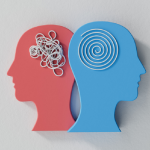
8 Ways To Reprogram Your Subconscious Mind

Relationship
8 ways to build closer relationships.

8 Benefits of Walking Backwards – Future Grow Academy

9 Personal Loan Mistakes To Avoid Before Taking Loan

9 Signs of Low Self-Esteem – Future Grow Academy

9 Reasons Why Buying A House is Better Than Renting
PH +919560722598
2/134, Sector 105, Gurgaon, Haryana - 122001, India
© 2024 futuregrowacademy
8 Best Problem Solving Books of All Time
Our goal : Find the best Problem Solving books according to the internet (not just one random person's opinion).
- Type "best problem solving books" into our search engine and study the top 5+ pages.
- Add only the books mentioned 2+ times.
- Rank the results neatly for you here! 😊 (It was a lot of work. But hey! That's why we're here, right?)
(Updated 2024)
As an Amazon Associate, we earn money from purchases made through links in this page.
Last Updated: Monday 1 Jan, 2024
- Best Problem Solving Books

Problem Solving 101
A simple book for smart people.
Ken Watanabe

Seeking Wisdom
From darwin to munger.
Peter Bevelin

How to Solve Big Problems and Test New Ideas in Just Five Days

The Art of Thinking Clearly
Rolf Dobelli

Think Smarter
Critical thinking to improve problem-solving and decision-making skills.
Michael Kallet

How to Think Like Sherlock Holmes
Maria Konnikova

Cracked It!
How to solve big problems and sell solutions like top strategy consultants.
Bernard Garrette

Bulletproof Problem Solving
The one skill that changes everything.
Charles Conn
- The 5 Best Books on Problem Solving (in 2022) - TES www.theexceptionalskills.com
- Our Top 5 Books On Problem Solving — 42courses.com blog.42courses.com
- The 11 Best Problem Solving Books For 2021 www.zerotoskill.com
- 9 Problem-Solving Books Every Entrepreneur Should Read | SUCCESS www.success.com
- 12 Best Problem Solving Books to Read in 2022 teambuilding.com
What To Read Next

Explore other lists
Share this page
Email us if you have any feedback

Cheat Sheet: Read Books to Hone Problem Solving Skills
When was the last time you tackled a problem at work, so large that others took notice? Or, are you someone who plays it safe, never doing anything that could get you in trouble? Being BOLD wins you the promotion. You can read books to hone problem solving skills.
But there is a caveat – you have to apply what you learn from the books
Life is about growing and evolving into the person you might become. And that often involves changing your mind and doing things differently.
For your personal library, here are some books on problem solving that you need. I own some, and plan to purchase all.

Initial Thoughts on Read Books to Hone Problem Solving Skills
Years ago, I created a template for reviewing and summarizing books. It was very detailed, but very cumbersome and difficult to use, so I didn’t always use it. It’s a good tool though. There are sections in the template that will accelerate your professional development, if you consistently answer those questions while reading.
Although the template was overwhelming, that didn’t stop me from reviewing and summarizing books. But one thing I noticed, is that for the best reviews and summaries I wrote, there were certain components of the template that I always include.
And on top of that, those reviews/summaries are pinned very frequently on Pinterest. In moments like these, you realize that you may be on to something, that you may be able to fill a need, creating work that matters to others.
Read Books to Hone Problem Solving Skills: Original Book Review/Summary Template

As you can notice from the template, there are some sections that you would not include when summarizing non-fiction. After working with the template for years now, there are two sections that I really like and use a lot: Body, 5 Great Ideas and Summary.
Read Books to Hone Problem Solving Skills: Book Summary Template – Body
- Breakthroughs
Read Books to Hone Problem Solving Skills: 5 Great Ideas from Books
- Key Takeaways
Read Books to Hone Problem Solving Skills: Book Summary
- Ideas/insights/takeaways to increase the value of your products and services.
- Ideas/insights/takeaways to make you become more valuable to yourself and to others, such as your employer.
Read Books to Hone Problem Solving Skills: Deconstructing Book Summary Template
Yes, the sections of the template that deal with the author's knowledge and the job he has done writing a good book are important. But if you spend enough time vetting the books before you decide to summarize them, then these sections become less important in your summary. You can take them for granted.
You must be wondering where I am going with this post, and bear with me for a second. Let's say that there is a problem that is impacting the way you perform your job. You realize that if you can solve the problem, that means increased revenues for the organization, and possibly a promotion for you. This is a compelling reason for you to solve the problem, even though it will not be easy to do
So where do you begin?
The process is involved and will take time. But think of it as investing time in your professional development. You are investing the time it takes to become more valuable to you. Even if the organization you work for doesn't award you for solving the problem, the skills you develop in the process are portable, so remember that.

How to Read to Solve a Problem
- Simply, clearly and not too broadly or narrowly, describe the problem you are having in your organization.
- Are the underlying causes internal or external to the organization?
- Are the underlying causes solvable?
- Look at problems in many different ways, and find new perspectives that no one else has taken.
- On a blank sheet of paper, do a brain dump for 15 minutes, writing down as many answers and solutions to the problem. If necessary, go back to Step 1 and redefine the problem.
- Do a search on the problem to see the results. Has someone solved that exact problem? Gather as much information as you can.
- Ask colleagues for book recommendations.
- Ask subject matter experts for recommendations.
- Check the bibliography of scholarly journals and books on the topic.
- Ask a librarian at a good reference library to find titles.
- Include titles of books you discover during your internet search.
- Whittle down the number of titles on the list.
- Get a cursory understanding of the topic/situation.
- Determine which books say anything important about the topic of interest.
- Develop questions you are trying to answer or issues to resolve.
- Clarify the information that you are seeking. Distinguish between ‘must know’ and ‘nice to know.’ What information will derive the most benefit?
- Write down the elements of what you require
- How will you know when you have found the answers?
- Find the most relevant passages and record page numbers.
- By authors, use the Problem Solver Matrix to record your answers.
- Distill the information germane to the problem.
- Compare and contrast the answers to each question.
- Reorganize the information in many ways. Combine, and recombine, ideas, and thoughts into different combinations no matter how incongruent or unusual.
- Draw conclusions and identify possible solutions (Do not limit yourself to what has been done before, but be open to new and better alternative solutions).
- Which option best serves the organization?
- Is the option consistent with the mission, goals and objectives of the organization.
- Select the best option.
- Implement the solution.
- Evaluate the solution.
- If the solution does not work, repeat Step 10.3 and 10.4. If you feel comfortable enough, bring others into the process to get another perspective. This is also another opportunity to talk to the subject matter experts, letting them know what you have uncovered from reading the top books and analyzing the information.
The Problem Solver Matrix: Read Books to Hone Problem Solving Skills

When answering the question in the Problem Solver Matrix, use your own words, including your thoughts and insights. Make sure that you include information that answer the questions in the Body and Great Ideas section of the Book Summary template. A critical step in the process is to complete the Problem Solver Matrix. When you have information in the matrix, it makes it easier for you to analyze.
Additionally, you are quickly able to spot gaps that you have to fill. This year, we are also participating in The Invisible Mentor Read the World Extreme Reading Challenge, where we are reading a book each week. At the end of each month, we are connecting the ideas from each of the five books.
So if you are reading to solve a problem, follow the steps above, reading only the books that will enable you to solve the problem you are facing within the organization. An additional step to the problem solving process is to interview a couple of subject matter experts to get their take on the problem. Integrate this information into all the other information you have gathered.
Related Posts :
How to Interview: What I Learned after 20 Years of Interviewing
Summary of A Technique for Producing Great Ideas by James Webb Young
If you cannot view the SlideShare presentation, view it here .

About the Author Avil Beckford
Hello there! I am Avil Beckford, the founder of The Invisible Mentor. I am also a published author, writer, expert interviewer host of The One Problem Podcast and MoreReads Success Blueprint, a movement to help participants learn in-demand skills for future jobs. Sign-up for MoreReads: Blueprint to Change the World today! In the meantime, Please support me by buying my e-books Visit My Shop , and thank you for connecting with me on LinkedIn , Facebook , Twitter and Pinterest !
Enjoyed this article?
Find more great content here:
Little Bets by Peter Sims, 7 Lessons and Summary
Transform your learning: my journey with the 30 books in 30 days challenge, ebooks vs print books vs audio books: which one is right for you – a comparative analysis.
- Trending Now
- Foundational Courses
- Data Science
- Practice Problem
- Machine Learning
- System Design
- DevOps Tutorial
10 Programming Books That Every Programmer Must Read Once in 2024
If we find a person with a rare intellect, we should ask him about the books he reads. A book can define a person’s nature and intelligence. If you are a coder, you should be also a good reader because it develops the mind and the mind is your weapon. You have to train it daily. Before finding any solution to a problem – reading and understanding the problems is the most important if you are a coder or any problem solver. Without good reading and comprehension skills, a person takes more time to understand the problems before solving them.
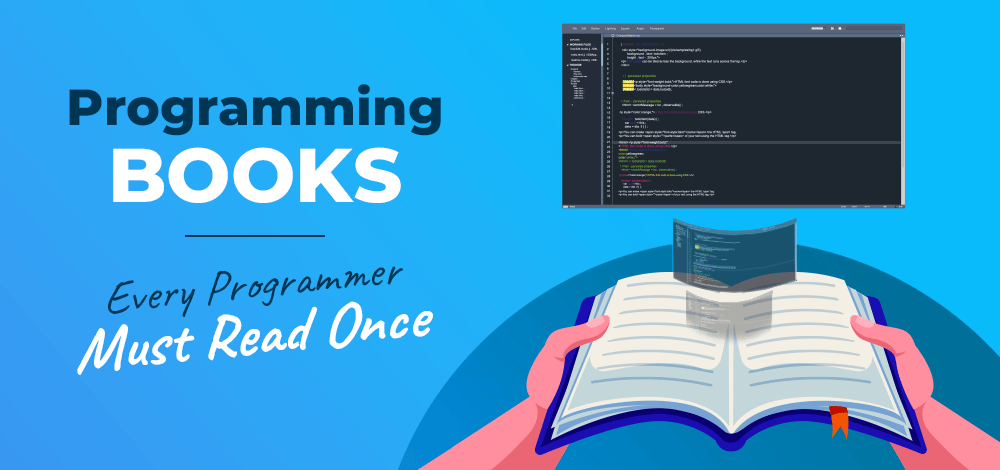
Below there is the list of the top 10 books every programmer should read. These books not only teach the syntax and semantics of programming languages but also help you to think, organize, and become a good problem solver, which is indeed the most important lesson for a coder. These books are not only for mastering a particular programming language like C++ , Java, or Python but will help you to become a Better Programmer.
Best Programming Books You Must Read:
Let’s get started with the list:
1. Clean Code: By Robert C. Martin
This is one of the best classic books for beginners and will teach you all tricks and patterns of writing good and clean code. Every code which runs is not a clean code. Most beginner programmer done this mistake, they just try to solve the problem and hence forgets these factors to write clean and perfect professional code. A Clean Code should be properly readable, and well structured so that it could be reused and debugged easily.
Ideas Presented:
- How to properly name a variable?
- How to write a better method?
- How to structure your code better?
- What is the code smell?
- Why another approach is better than this one?
2. The Mythical Man-month: By Frederick Brooks
According to many software developers in the world, this book is literally a Bible to them. This book will help you build a proper concept about software development, estimates, project management, and troubles in software development. The main theme of this book is “Brooks’ Law ” which says “adding manpower to a late software project makes it later”.
- The mythical man-month: measuring useful work in man-months is a myth,
- Essence and Accidents of Software Engineering,
- When working on a second system, you should keep in mind that you shouldn’t over-engineer it,
- Any attempt to fix an error can lead to many new errors.
3. The Pragmatic Programmer: Your Journey to Mastery
This is book is by Andrew Hunt and David Thomas, about programming and software engineering. The unique feature of this book is it teaches us in a pragmatic way with a collection of tips to improve the programming and development process rather than the theoretical way. This book will help you to become a pragmatic programmer, an early adopter, to have fast adaptation, inquisitiveness, critical thinking, realism, and a jack-of-all-trades. The book presents development methodologies and caveats, analogies, and short stories too, for example, the broken windows theory, the story of the stone soup, or the boiling frog.
Ideas presented:
- Present development methodologies and processes using many analogies and short stories. e.g, the stone soup, or the story of the boiling frog
- Many concepts were named which get popular in this book, such as code katas,
- More use of methods for making and preserving codes highly adjustable,
- Useful recommendations for estimates of time and expense
- Introduces you to methods of work that you may not yet have considered.
4. Code Complete (2 Edition): By Steve McConnell
If you want to be a great software engineer you should read this book once. This book provides the most useful practical guides to programming and helping developers write better software for more than a decade. This book has a rare blend of classic and fully updated with revised leading-edge coding concepts and examples. With these proper concepts, you can easily understand the art and science of software construction.
Ideas Represented:
- Software craftsmanship, e.g, layout, style, character, themes, and self-documentation
- Coding, debugging, integration, and testing for software development,
- Other important software development aspects such as requirements and documentation,
- The techniques of creating high-quality code, code improvements, and system considerations.
5. The Art of Computer Programming
This is another classic book written by the famous computer scientist Professor Donald Knuth. This book is very popular and highly praised by many of the top programmers in the world for its combined mathematical exactness with outstanding humor throughout the chapters. Through his well-known book series art of computer programming, for his major contributions to the analysis of algorithms, Knuth was awarded the Turing Award in 1974. The book begins with basic programming concepts and techniques, explores various programming algorithms and describes their analysis efficiently, and then focuses particularly on the representation of information inside a computer(information structure).
Ideas Presented:
- How to deal with the structural relationships between data elements efficiently,
- How to solve problems effectively using the basic concepts of fundamental Algorithms,
- Semi-numerical Algorithms and Combinatorial Algorithms
- Minimum-Comparison Sorting or Optimum Sorting
6. Programming Pearls
This book is slightly different from the other classics books on the list but this book is one of the most influential books to help a person think like a programmer. Every concept is properly covered with practical problems and various effective and efficient solutions. This is pleasant to read because the writing style is simply great.
This book may not a usual book of new programming concepts but it is the best practical programming book to practice and follow with clear-cut examples. The book challenges your understanding of the core concepts in memory, CPU, and algorithms and gradually increments the difficulties rather than giving you the answer right away because the main motto of this book is to help you become a better problem solver. This book is the best place to practice problems of data structure and algorithms, especially searching, sorting, heaps, etc. It is really a masterpiece created by Jon Bentley fully justifying the name “Programming Pearls”.
7. Code: Charles Petzold
This book introduces us to “The Hidden Language of Computer Hardware and Software” in an outstanding way for anyone who’s ever wondered about the magic and secret inner life of computers and how the working of these complex systems and other smart machines.
Nowadays the low-level details get masked due to the level of abstractions but if you go through this book you can understand those awesome older technologies like Morse code, Braille, and Boolean logic, to understand vacuum tubes, transistors, and integrated circuits. Sometimes to solve a very complicated bug you have to drive deeper to the dead ends of the electronic, binary computer with a von Neumann architecture to reach a scalable solution. It also easily explained many recent developments topics, like floating-point arithmetic, operating systems, packet-based communication protocols, and GUIs.
8. Introduction to Algorithms
This is the single famous book widely used as the textbook for understanding and using an algorithm by Thomas H. Cormen , Charles E. Leiserson, Ronald L. Rivest, and Clifford Stein. With over 10, 000 citations documented on CiteSeerX, this book is commonly cited as a reference for algorithms in published papers. The book was also a bestseller programming book with half a million sold copies during its first 20 years. Each chapter in this book covers a broad range of algorithms, their design techniques, and areas of application in depth. Instead of a specific programming language, programming examples are written using pseudo code with rigor and comprehensiveness.
9. Refactoring: Improving the Design of Existing Code
This book written by Martin Fowler is an essential book for software developers which offers start-to-finish strategies for working more effectively with large software and improving the design of existing code.
Refactoring is the process of rewriting codes, without changing the functionality, to improve the readability, testability, or maintainability of your code. If you are interested in improving and maintaining the quality of your code this book is for you it contains step-by-step instructions for the implementation of more than 40 proven refactorings examples illustrating with details when and why to use the refactoring. In the second edition of this classic book, it switched from Java to JavaScript for most of the examples but the ideas can be applied to any Object-oriented programming language. The book is well-written and provides samples, examples, diagrams, steps to follow, side notes, commentary, and basically everything you would need to fully understand a refactoring method.
10. Design Patterns: Elements of Reusable Object-Oriented Software
This is hailed as one of the greatest software development books ever written, describing in great detail the many different design patterns. It has been influential to the field of software engineering and was written by Erich Gamma, Richard Helm, Ralph Johnson, and John Vlissides, with a foreword by Grady Booch.
This book is a must-read for a budding architect or designer of a complex system. You will most likely be required to read this book to avoid and handle common problems that the industry faces. This book contains an in-detail description of the many different design patterns and is regarded as an important source for object-oriented design theory and practice that have been developed over the years to help software engineers.
The authors discuss various things like the tension between inheritance and encapsulation, parameterized types, Supporting Multiple Look-And-Feel Standards, Embellishing the User Interface, Supporting Multiple Window Systems, etc.
Bonus – Coders At Work
This book offers 15 amazing and interesting interviews of renowned coders or computer programmers who are highly acclaimed in their particular fields. The book focuses on how these programmers achieved so much in their lives and the struggles they did in order to get success. It will help you to learn from their struggles and provide you with the proper step to complete your coding journey. The writer of the book Peter Seibel focused on how these people have tackled their day-to-day programming while revealing many important things and the interesting problems they have solved.
So these are a few books that you must read once in your lifetime in order to gain knowledge about becoming a better programmer. These books will increase your intelligence and help you use your unique mind to become a better programmer.
Please Login to comment...
Similar reads.
- Write From Home
- OpenAI o1 AI Model Launched: Explore o1-Preview, o1-Mini, Pricing & Comparison
- How to Merge Cells in Google Sheets: Step by Step Guide
- How to Lock Cells in Google Sheets : Step by Step Guide
- PS5 Pro Launched: Controller, Price, Specs & Features, How to Pre-Order, and More
- #geekstreak2024 – 21 Days POTD Challenge Powered By Deutsche Bank
Improve your Coding Skills with Practice
What kind of Experience do you want to share?
15 Best Books for Programmers You Should Read
As software developers we constantly need to learn new concepts, programming languages and technologies to stay up to date.
One of my preferred methods for learning is by reading books, and there is no shortage of great books on software development.
The problem is, there are so many books that it can be difficult to find the ones that are worth your time.
That is why in this article I have covered some of the best books I have found over the years that are worth reading.
These books can be read at any level, but some of them are quite advanced, so I would recommend you have at least a couple of years experience already to get the most out of these books.
1. Developer Hegemony - Eric Dietrich #
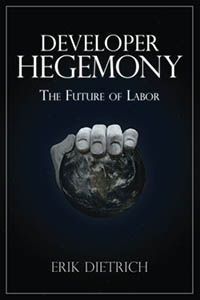
For anyone who has read any of my other articles on books , you will know I love books that are thought-provoking and motivational.
A quick warning before reading this book. It will make you want to quit your job and become a consultant.
Software Developers hold an enormous amount of power. We are the ones who are producing the assets for the companies we work for. Often, if it wasn’t for the software developers, the company wouldn’t make any money.
So, why is it that we end up in subordinate positions, being dictated what to work on as well as how and where to work.
Developer Hegemony looks at the past, present, and future of corporations and what it means for software developers.
This is a great book that will make you realise your potential as a software developer and can help you find ways to gain more respect and freedom from your coding skills.
2. The Pragmatic Programmer - David Thomas & Andrew Hunt #
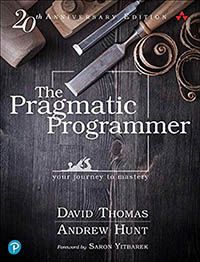
It is no accident that the cover of this book has woodworking tools instead of a keyboard and mouse.
This book encourages you to see programming as a craft and not just a data input job. Although written 20 years ago, this book is still relevant today and covers various tips to help you can become a better programmer.
If you are keen to learn how to write flexible, adaptable code that is easy to maintain, then this book is a must-read.
3. Clean Code - Robert C. Martin #
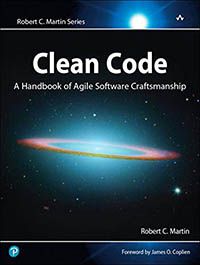
What programming book list would be complete without mentioning Clean Code by Robert C. Martin?
There is a good reason why this book appears on every developer's reading list. It is the bible for learning to write clean code, and practically, everything written on the topic originates from this book.
I think most of us are familiar with the damage that messy code can do to an application. On a personal level, you want to avoid being known as the person who writes bad code, either.
If you want to be known as the person who writes elegant code rather than other developers cursing your name under their breaths, then you need to read this book.
4. Design Patterns: Elements of Reusable Object-Oriented Software - Erich Gamma #
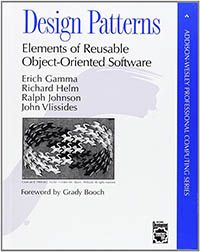
Design patterns are mentioned in a lot of software development books. They are really the key to writing clean, maintainable code that other developers can work on easily.
When everyone is “singing from the same hymn sheet”, it makes developing code as a team a lot easier. One way to do this is by using reusable design patterns that other developers will recognise.
If you can become familiar with the main design patterns, it also makes writing code easier as well as you don’t have to solve the same common programming problems yourself.
Although this book was written nearly 30 years ago, the design patterns are still relevant today, and it is worth having this book on your desk to reference.
5. Data Structures and Algorithms Made Easy - Narasimha Karumanchi #
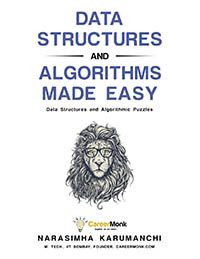
Beginners always tend to get a bit stuck when it comes to data structures and algorithms, but like anything they become easier with practise.
This book will give you a good introduction to the topic, but also provides many puzzles and examples to see how data structures and algorithms can be used.
If you are preparing for an interview and are expecting plenty of questions on data structures and algorithms, then it is worth giving this book a read beforehand.
6. Refactoring - Martin Fowler #
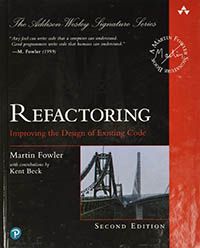
Anyone who has been a programmer for a little will have come across Martin Fowler. He writes numerous useful articles on his website, I especially like his posts about microservices.
This book is just as useful as his website and covers how to refactor your code to improve the maintainability of your applications.
Everyone is familiar with refactoring now, but it wasn’t as common when this book was released, and it has become the goto reference on the subject.
If refactoring isn’t your strong point, or you just want to find some more techniques you can use daily then it is worth giving this book a read.
7. The Mythical Man-Month - Frederick Brooks Jr. #
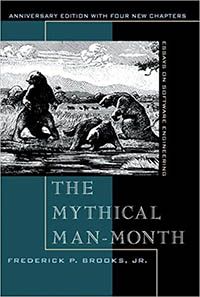
Another classic software development book, although some concepts are a little bit dated now.
Instead of covering programming, this book is more about the more project management side of developing software.
It is the book you wish your project manager had read.
The book covers the author's experience as a project manager at IBM, where he was responsible for some massive software projects.
It has some great advice which some of us know but would be worth passing on to your PM. For example, how adding more engineers to an already late project isn’t going to help.
8. Coders at Work - Peter Seibel #
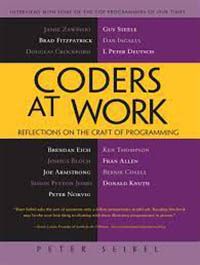
This book isn’t like the other books on this list. It is a collection of 15 interviews by renowned programmers.
The book covers interviews with people like Brenden Eich (Inventor of JavaScript), Joe Armstrong (Inventor of Erlang) and Peter Norvig (Director of Research at Google and author of THE text on AI).
There are not many books that give us an insight into the minds of some of the best programmers of our time. The book is packed full of advice and inspiration that is useful, no matter where you are in your career.
9. Test Driven Development: By Example - Kent Beck #
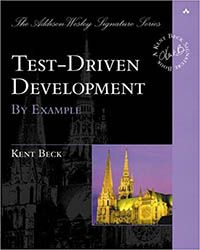
Everyone has heard of Test Driven Development (TDD) but few people do it.
If you want to write maintainable, robust code, then you need to test it before you write it. Building up your application one test at a time helps you think through how your application is going to work before you waste lots of time writing code.
This is the goto book on Test Driven Development and is packed with examples, so you can see how to do it in practice.
If you want to get started with TDD, then it is worth reading this book first.
10. Pragmatic Thinking and Learning - Andy Hunt #
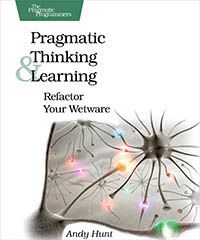
From one of the authors of The Pragmatic Engineer (#2), this book's subtitle is “Refactor Your Wetware” and refers to your brain and how we think about solving problems.
This book is full of tips on ways to improve your thinking, learn faster and remember what you learn.
Software development is more about problem solving than writing code, so it is important to improve your brain along with your coding skills.
11. Code Complete - Steve McConnell #
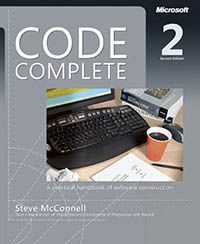
Another classic which should be on every developers' bookshelf.
Although some concepts are a little outdated now (waterfall anyone) this book is still packed with a practical tips on how to write better code.
This book covers everything from design, testing, naming conventions as well refactoring. Everything in this book is backed with data and real-world scenarios, so it isn’t just “fluff” that you see in plenty of other books.
12. Cracking the Coding Interview - Gayle Laakmann McDowell #
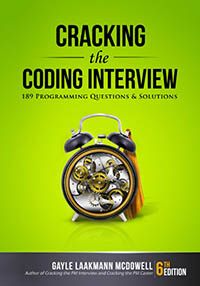
Software developer interviews can be pretty daunting. Whether it is being asked to code with an audience or redesign the companies' architecture on a whiteboard, they can cause anyone's palms to sweat.
Before going to an interview, it is worth reading this book. Gayle is a former software developer and hiring manager and this book covers everything including problem-solving, data structures, and algorithms.
It is packed full of 189 interview questions that are most commonly asked in interviews, as well as giving us a behind-the-scenes look at how big companies such as Facebook and Google hire developers.
This book is a must-read for anyone considering applying for a software development job.
13. Code - Charles Petzold #
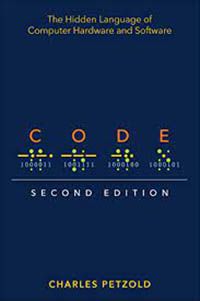
Many of us understand how to write code, but don’t understand the inner workings of the very computers the code is running on.
This book covers topics such as the binary system and logic gates that many developers don’t understand.
Even though the subject is quite complex, Petzold does an impressive job of breaking down the concepts and making them accessible for a wider audience.
If you want to get a better understanding of the software hardware interface and how your computer actually works “under the hood” then I would recommend reading this book.
14. The Art of Computer Programming - Donald Knuth #
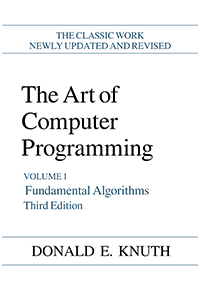
This is a 5 books set covering everything from the fundamentals as well as algorithms and the mathematical foundations of computer science.
If you are serious about being a software developer, then this book set is a worthwhile investment. It is definitely an investment given the price of this set compared to the other books on this list.
If you are looking for a comprehensive resource on programming that you can reference throughout your career, then these books are worth getting.
15. The Effective Engineer - Edmund Lau #
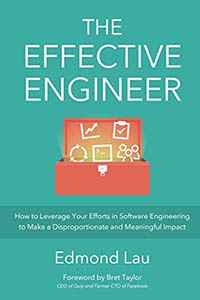
There is a key word in the subtitle of this book, “How to Leverage Your Efforts In Software Engineering to Make a Disproportionate and Meaningful Impact”.
Leverage. One of the greatest things about being a software developer is that you can impact so many people with your code. Once written, your code can scale indefinitely.
This book, written by the former CTO of Facebook, aims to help developers be more effective at their jobs by showing us how to focus on the most impactful project and tasks.
You have probably heard of the 10X engineer. These engineers are not a thing of myth and legend, they really can have a 10X impact compared to others; however, they don’t achieve this by working 10 times the hours.
If you want to find out how to be a more effective engineer and reap the success that comes with it, then it is worth reading this book.
Will technology ever make our lives easier?
but I do tend to write every day, just not for the eyes of others. A quick look at morning pages and whether they could benefit you too. Article - 15 Best Books for Programmers You Should Read . There are a lot of books for software developers, but it can be difficult finding ones that are
- Published 2023-01-19
- Tags #studying #programming #books
Each month, I spend many hours making my content available to everyone for free while remaining ad-free. If you have enjoyed my work, please consider supporting my independent writing with a one-time or loyal donation. Your support makes all the difference.
The Curious Engineer is my weekly newsletter when I share my thoughts on software development, careers, productivity, self-hosting, and entrepreneurship.
Or subscribe via Buttondown
- Trending Stocks
- Ola Electric INE0LXG01040, OLAELEC, 544225
- Tata Motors INE155A01022, TATAMOTORS, 500570
- Suzlon Energy INE040H01021, SUZLON, 532667
- Reliance INE002A01018, RELIANCE, 500325
- Varun Beverages INE200M01021, VBL, 540180

- Mutual Funds
- Commodities
- Futures & Options
- Cryptocurrency
- My Portfolio
- My Watchlist
- FREE Credit Score ₹100 Cash Reward
- Fixed Deposits
- My Messages
- Price Alerts
- Chat with Us
- Download App
Follow us on:
Sulabh Engineers & Services' board meeting on November 13, 2017
Intimation of meeting of the board of directors of the company on 13th november, 2017, to consider and approve the unaudited financial results (stand alone) for the quarter and half year ended on 30 september 2017..
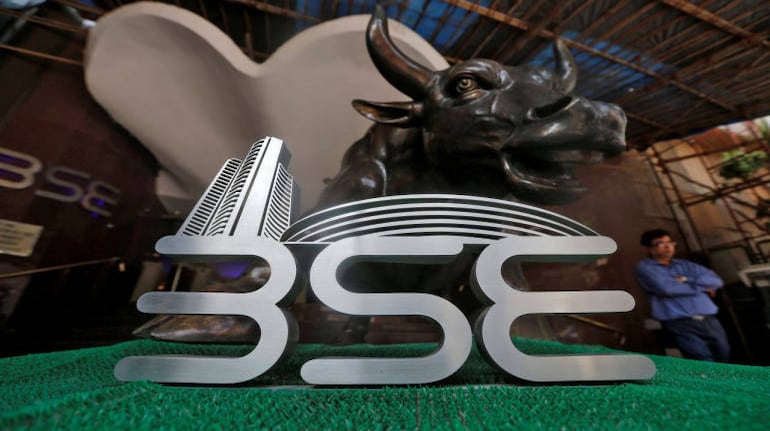
- Ad-Free Experience
- Actionable Insights
- MC Research
- Economic Calendar

You are already a Moneycontrol Pro user.
USER CONSENT
We at moneycontrol use cookies and other tracking technologies to assist you with navigation and determine your location. We also capture cookies to obtain your feedback, analyse your use of our products and services and provide content from third parties. By clicking on 'I Accept', you agree to the usage of cookies and other tracking technologies. For more details you can refer to our cookie policy.
* We collect cookies for the functioning of our website and to give you the best experience. This includes some essential cookies.
Cookies from third parties which may be used for personalization and determining your location. By clicking 'I Accept', you agree to the usage of cookies to enhance your personalized experience on our site. For more details you can refer to our cookie policy
* I agree to the updated privacy policy and I warrant that I am above 16 years of age
I agree to the processing of my personal data for the purpose of personalised recommendations on financial and similar products offered by MoneyControl
I agree personalized advertisements and any kind of remarketing/retargeting on other third party websites
I agree to receive direct marketing communications via Emails and SMS
Please select (*) all mandatory conditions to continue.

IMAGES
VIDEO
COMMENTS
9. Think Like a Programmer: An Introduction to Creative Problem Solving by by V. Anton Spraul. Think Like a Programmer is one of the top problem solving books for programmers. The guide lays out methods for finding and fixing bugs and creating clean, workable code.
This book empowers readers to strive for equity and fulfillment in their professional lives. Get it on Amazon. #6. "The Art of Problem Solving 101: Improve Your Critical Thinking and Decision Making Skills and Learn How to Solve Problems Creatively". By: Michael Sloan.
72 Best Books for Effective Problem Solving. Problem-solving is a crucial skill that is essential for success in both personal and professional life. It involves the ability to identify, analyze, and solve complex problems efficiently. Our curated list of the top problem-solving books offers valuable insights, strategies, and techniques to ...
It offers a fresh perspective on problem solving and empowers readers to adopt a mindset that transforms obstacles into stepping stones for personal and professional growth. The Obstacle Is the Way is a must-read for anyone seeking to develop a more effective approach to problem solving and navigate life's challenges with strength and wisdom.
3. Problem Solving 101: A Simple Book for Smart People by Ken Watanabe. Problem Solving 101 is a neat little book on problem-solving. It was originally meant for a younger audience, but it has taken widespread appeal to all ages for people who want to solve problems better.
Best Problem Solving Books. Sprint, How to Solve Big Problems and Test New Ideas in Just Five Days. The Innovator's Dilemma. Switch, How to Change Things When Change Is Hard. Problem Solving 101. Seeking Wisdom: From Darwin to Munger. The Art of Thinking Clearly. Mastermind: How to Think Like Sherlock Holmes.
Problem Solving Books to read in 2024 to broaden your knowledge in Personal Development. User verified book suggestions such as 'The Most Magnificent Thing' and 'The Art and Craft of Problem Solving' by top notch authors like Ashley Spires and Paul Zeitz.
I love the way it combines techniques for getting the mind 'match fit ' for tackling problems alongside practical and logical tools for solving perennial problems we all face once and for all! " ~Jonathan Borrett, Head of Profession for Problem Solving, Devon and Cornwall Police, Exeter, UK "While many experts often focus on just the ...
Get ready to unleash your inner problem solver, as we explore the pages of these thought-provoking books about problem solving and learn from the experiences of remarkable thinkers. 1. Sprint: How to Solve Big Problems and Test New Ideas in Just Five Days. by Jake Knapp, John Zeratsky, and Braden Kowitz.
Critical Thinking and Problem Solving Books to read in 2024 to broaden your knowledge in Career and Success. User verified book suggestions such as 'The Great Mental Models' and 'How to Have Impossible Conversations ' by top notch authors like Shane Parrish and Rhiannon Beaubien and Peter Boghossian and James A. Lindsay.
Creating Great Choices is a field guide to integrative thinking. The book includes fresh stories of successful integrative thinkers that will demystify the process of creative problem solving, as well as practical tools and exercises to help readers engage with the ideas. Preview. Amazon.
1. Critical Thinking: A Beginner's Guide to Critical Thinking, Better Decision Making, and Problem Solving - Jennifer Wilson. $16.19. Buy on Amazon. 09/09/2024 07:45 am GMT. As the title says, this book introduces you to the art of critical thinking. You'll discover in it:
The author has many other books on the shelf with related topics. 8. "Think Out of The Box (Power-Up Your Brain)" by Som Bathla. This hardcover book is a heavy hitter when it comes to problem-solving and decision-making. Its readers rated it 4.3 stars out of five stars and deemed it an excellent book worth the time.
1. Sprint: How to Solve Big Problems and Test New Ideas in Just Five Days by Jake Knapp, John Zeratsky and Braden Kowitz. Sprint is one of the useful Problem Solving Books that exposes readers to the design sprint, a novel approach to issue resolution. Through a five-day approach, the authors—who are seasoned design partners at Google Ventures—demonstrate how to take on difficult problems ...
A list of 20 new problem solving books you should read in 2024, such as Problem-Solving 101 and Thinking as a Winner. Categories Experts Newsletter Subscribe to Lior's ... " This guide is a must-have for anyone seeking cognitive enhancement and professional excellence. ...
Are you ready to elevate your problem-solving skills and tackle challenges like never before? In this video, we're diving into five essential books that ever...
Problem Solving Books of All Time. Our goal: Find the best Problem Solving books according to the internet (not just one random person's opinion).. Here's what we did:; Type "best problem solving books" into our search engine and study the top 5+ pages.; Add only the books mentioned 2+ times.; Rank the results neatly for you here! 😊 (It was a lot of work. But hey!
Read Books to Hone Problem Solving Skills: Original Book Review/Summary Template As you can notice from the template, there are some sections that you would not include when summarizing non-fiction. After working with the template for years now, there are two sections that I really like and use a lot: Body, 5 Great Ideas and Summary.
Discover a comprehensive list of essential reads for improving your problem-solving skills. From strategies for decision making to creative thinking, these b...
2. The Mythical Man-month: By Frederick Brooks. According to many software developers in the world, this book is literally a Bible to them. This book will help you build a proper concept about software development, estimates, project management, and troubles in software development.
The problem is, there are so many books that it can be difficult to find the ones that are worth your time. ... then this book is a must-read. 3. Clean Code - Robert C. Martin # ... Gayle is a former software developer and hiring manager and this book covers everything including problem-solving, data structures, and algorithms. ...
Here are 10 must-read books to help you ace the RRB NTPC exam in 2024: Image: Canva. ... A brief and straightforward book that emphasizes shortcut methods and problem-solving tips.